Success Accelerator – Workshop 1 (Culture Success)

The Appleton Greene Corporate Training Program (CTP) for Success Accelerator is provided by Mr. Stolz Certified Learning Provider (CLP). Program Specifications: Monthly cost USD$2,500.00; Monthly Workshops 6 hours; Monthly Support 4 hours; Program Duration 12 months; Program orders subject to ongoing availability.
If you would like to view the Client Information Hub (CIH) for this program, please Click Here
Learning Provider Profile

Mr. Stolz is an approved Senior Consultant at Appleton Greene and he has experience in management, finance, operations, and marketing. He has achieved a Master of Business Administration, an MS in Engineering Management, and a BA in Accounting and Finance. He has industry experience within the following B2B sectors: Automotive; Construction; Consultancy; Distribution, Engineering, Financial Services, Industrial Automation, Industrial Services, Machinery + Equipment Manufacturing, Medical Instruments and Supplies, Software Development, Steel Fabrication + Steel Processing, and Energy Services. He has had commercial experience within the following countries: United States of America and Germany, or more specifically within the following cities: Houston / Texas; Dallas / Texas, Chicago / Illinois, Atlanta / Georgia, and Munich / Germany. His personal achievements include turnaround & corporate restructuring; revitalizing companies, cash flow improvement programs; profit acceleration programs; aggressive growth planning & execution, and leadership coaching & mentoring.
MOST Analysis
Mission Statement
The basis of any successful company is its culture. Before you plan to construct a building, you need to select a solid and sturdy ground on which your Real Estate Investment will be built. If you select soft ground, your building may not stand up for long. The opposite is also true: a solid terrain with a firm and solid underground will provide your structure strength and will stand up against any assault and demise. That is exactly what your Company Culture is all about: a solid ground on which everything else stands. One of the easy measurements of a great organization is: are your people excited to come to work every morning? Emphasize your cultural basis on collaboration, innovation, transparency, engagement, productivity, and team results. Forget about Rules and Regulations. Replace those with a brief list of guidelines that everyone can easily remember.
An organization’s culture consists of four components, all manifested in how people in the organization interact each day with each other and with customers and other stakeholders.
There are four critical components to a great Company Culture:
1. MISSION / Why are you in existence? What is the purpose of your organization?
2. VISION / Where are you heading? Do you have a clear picture?
3. CORE BELIEFS / Customer-Centric Organization / Love Your People
4. YOUR PEOPLE. Love Your People.
Organizational culture is an important deciding factor for whether a business can succeed, or it may fail. A healthy culture has more engaged employees, higher profits, faster growth, increased productivity, greater innovation, and lower employee turnover.
Great cultures exist and persist because they are sailing in a watertight boat with all instruments working properly and a skilled crew at the helm. Organizations without great cultures have leaks and/or the instruments do not provide the necessary insight. The key here is to have a focused and systematic approach if that culture is going to be intentionally created and well-maintained.
Objectives
01. Mission Statement: departmental SWOT analysis; strategy research & development. Time Allocated: 1 Month
02. Vision Statement: departmental SWOT analysis; strategy research & development. Time Allocated: 1 Month
03. Strong Leadership: departmental SWOT analysis; strategy research & development. Time Allocated: 1 Month
04. Employee Empowerment: departmental SWOT analysis; strategy research & development. Time Allocated: 1 Month
05. Open Communication: departmental SWOT analysis; strategy research & development. Time Allocated: 1 Month
06. Trust And Respect: departmental SWOT analysis; strategy research & development. Time Allocated: 1 Month
07. Continuous Learning And Development: departmental SWOT analysis; strategy research & development. 1 Month
08. Work-Life Balance: departmental SWOT analysis; strategy research & development. Time Allocated: 1 Month
09. Diversity And Inclusion: departmental SWOT analysis; strategy research & development. Time Allocated: 1 Month
10. Recognition And Rewards: departmental SWOT analysis; strategy research & development. Time Allocated: 1 Month
11. Collaboration And Teamwork: departmental SWOT analysis; strategy research & development. Time Allocated: 1 Month
12. Ethical And Social Responsibility: departmental SWOT analysis; strategy research & development. Time Allocated: 1 Month
Strategies
01. Mission Statement: Each individual department head to undertake departmental SWOT analysis; strategy research & development.
02. Vision Statement: Each individual department head to undertake departmental SWOT analysis; strategy research & development.
03. Strong Leadership: Each individual department head to undertake departmental SWOT analysis; strategy research & development.
04. Employee Empowerment: Each individual department head to undertake departmental SWOT analysis; strategy research & development.
05. Open Communication: Each individual department head to undertake departmental SWOT analysis; strategy research & development.
06. Trust And Respect: Each individual department head to undertake departmental SWOT analysis; strategy research & development.
07. Continuous Learning And Development: Each individual department head to undertake departmental SWOT analysis; strategy research & development.
08. Work-Life Balance: Each individual department head to undertake departmental SWOT analysis; strategy research & development.
09. Diversity And Inclusion: Each individual department head to undertake departmental SWOT analysis; strategy research & development.
10. Recognition And Rewards: Each individual department head to undertake departmental SWOT analysis; strategy research & development.
11. Collaboration And Teamwork: Each individual department head to undertake departmental SWOT analysis; strategy research & development.
12. Ethical And Social Responsibility: Each individual department head to undertake departmental SWOT analysis; strategy research & development.
Tasks
01. Create a task on your calendar, to be completed within the next month, to analyze Mission Statement.
02. Create a task on your calendar, to be completed within the next month, to analyze Vision Statement.
03. Create a task on your calendar, to be completed within the next month, to analyze Strong Leadership.
04. Create a task on your calendar, to be completed within the next month, to analyze Employee Empowerment.
05. Create a task on your calendar, to be completed within the next month, to analyze Open Communication.
06. Create a task on your calendar, to be completed within the next month, to analyze Trust And Respect.
07. Create a task on your calendar, to be completed within the next month, to analyze Continuous Learning And Development.
08. Create a task on your calendar, to be completed within the next month, to analyze Work-Life Balance.
09. Create a task on your calendar, to be completed within the next month, to analyze Diversity And Inclusion.
10. Create a task on your calendar, to be completed within the next month, to analyze Recognition And Rewards.
11. Create a task on your calendar, to be completed within the next month, to analyze Collaboration And Teamwork.
12. Create a task on your calendar, to be completed within the next month, to analyze Ethical And Social Responsibility.
Introduction
What is the hype and excitement everyone seems to be talking about this thing called “Corporate Culture”? You may have heard a few things here and there about Corporate Culture, but very few can define it clearly so we can understand it and really “get it.”
The success of your organization depends largely
on its Corporate Culture.
With the right leadership, a positive Corporate Culture can spread throughout the workplace. Leaders need to be able to encourage and foster a positive Corporate Culture to keep employees motivated and engaged.
If you have not yet defined, implemented, or fine-tuned your Corporate Culture, you will – most likely – not be as successful as your competitors who have done a wonderful job in this area. Furthermore, and most likely, you will not attract impressive talent that you need if you want to have a successful business.
So, why is it important to have a great and strong Corporate Culture? It is amazing to see that some leaders have a great and clearly defined culture at home with their family members and yet, the same people fail to create and nurture a great culture in their business.
Having a strong culture requires a continuous nurturing and improvement process. You always need to keep your culture on the front burner – never on the back burner! It is a never-ending process – you nurture and improve your culture as long as you grow your business. The question is: how do you improve your Corporate Culture where everyone participates in and takes ownership of it?
Some leaders have the wrong idea about company culture. They will argue that it is enough to offer free coffee, have some popcorn on Friday afternoon, orchestrate an annual Christmas Party, and be done with it. That’s all they think needs to be done for a good company culture. Do you think you can attract great talent with that kind of company culture?
A successful corporate culture is built upon a combination of various components that contribute to a positive work environment, employee engagement, and overall organizational success. While the importance of specific components may vary depending on the industry and company, this publication shows twelve key components that are often considered crucial for a successful corporate culture. Although every care has been taken, these twelve components are not exhaustive, and the specific components that contribute to a successful corporate culture can vary depending on the organization’s values, industry, and context.
A well selected set of aspects contributes to a positive corporate culture that attracts and retains talent, drives employee engagement and satisfaction, and leads to organizational success.
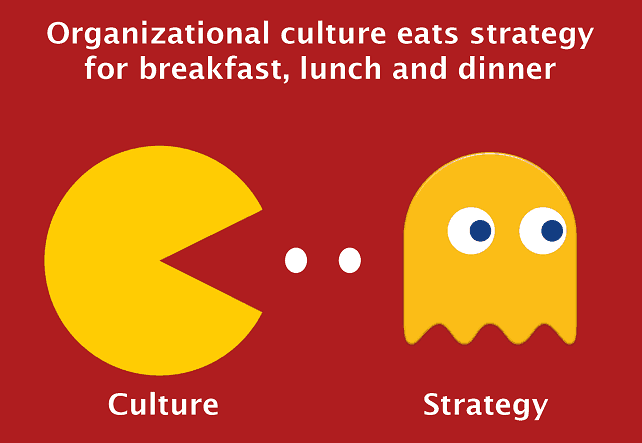
Why is it important to have a Great Corporate Culture?
Having a well-defined corporate culture is important for several reasons:
1. Identity and Belonging:
Corporate culture defines the collective identity and values of an organization. It creates a sense of belonging and provides employees with a shared direction and purpose. A strong culture helps employees identify with the organization, feel connected to its mission, and align their values and behaviors accordingly.
2. Employee Engagement and Retention:
A positive corporate culture promotes employee engagement and retention. When employees feel connected to the culture and believe in the organization’s value, they are more likely to be motivated, committed, and satisfied in their roles. A culture that fosters a supportive and inclusive work environment helps attract and retain top talent.
3. Productivity and Performance:
A healthy corporate culture contributes to increased productivity and performance. When employees feel valued, empowered, and motivated, they are more likely to go above and beyond in their work. A positive culture promotes collaboration, innovation, and a focus on continuous improvement, leading to higher efficiency, quality, and overall organizational success.
4. Organizational Reputation:
Corporate culture plays a significant role in shaping an organization’s reputation and brand image. A strong culture that prioritizes ethics, integrity, and social responsibility enhances the organization’s reputation among customers, partners, and the community. A positive reputation attracts stakeholders, fosters trust, and opens doors to new opportunities.
5. Decision-Making and Consistency:
A well-defined corporate culture provides a framework for decision-making. It guides employees and leaders in making choices that align with the organization’s values and goals. A culture that emphasizes consistency and shared norms helps ensure that decisions are made in a coherent and unified manner, promoting organizational stability and alignment.
6. Innovation and Adaptability:
A positive corporate culture encourages innovation and adaptability. A culture that values creativity, risk-taking, and learning fosters an environment where employees are encouraged to think outside the box, explore new ideas, and embrace change. This enables the organization to stay agile, responsive, and competitive in a rapidly evolving business landscape.
7. Customer Satisfaction:
A strong corporate culture has a positive impact on customer satisfaction. When employees are engaged, motivated, and aligned with the organization’s values, they are more likely to provide exceptional customer service and deliver products or services that meet or exceed customer expectations. A culture that prioritizes customer focus contributes to long-term customer loyalty and advocacy.
8. Attracting and Retaining Talent:
A strong corporate culture acts as a magnet for top talent. Job seekers are attracted to companies that prioritize employee well-being, growth, and a positive work environment. Additionally, a great culture helps retain valuable employees, reducing turnover and the associated costs.
9. Enhanced Performance:
A culture that promotes teamwork, open communication, and collaboration can lead to improved performance. Employees work more effectively together, share knowledge, and solve problems collectively, contributing to better outcomes for the company.
10. Long-Term Success:
Companies with a strong corporate culture tend to experience sustained success over the long term. Such organizations are better equipped to navigate challenges, attract resources, and capitalize on opportunities.
In summary, having a corporate culture is important because it creates a sense of identity and belonging, promotes employee engagement and retention, enhances productivity and performance, shapes organizational reputation, guides decision-making, fosters innovation and adaptability, and contribute to customer satisfaction. A well-defined and positive corporate culture is the foundation for a thriving and successful organization.

Executive Summary
The Challenges of Maintaining a Great Company Culture
Think of culture like the glue that holds a book together. Once you remove the glue from the back spine of a book, it falls apart quickly and it becomes exceedingly difficult to put it back in a proper shape and order.
You need an action plan that ensures you maintain a strong culture at your organization – even (or especially) when your business grows, scales, and adds more people to your company. As you add more people to your company, the need for a solid and great culture increases substantially. Even wrong hire can derail the status quo or the culture of your company. Hire the right people who will fully support your company culture. Also, the more people you add to your company, the more information and culture initiatives have to travel through your communication channels, which can lead to things getting lost in the conveyance of the messages.
Here are six approaches that you can use to maintain a great company culture as your business grows.
1. Make sure you have a set of clearly defined steps or elements that have a clear sense and understanding of what your culture is all about. It never is just one thing or one particular ingredient that makes a great culture – it always is a set between 4 and 12 components (in some cases even more, depending on the size and complexity of the organization). You cannot maintain a culture if you do not have a clearly defined and established set of values, beliefs, and attitudes. Regardless if you have 10 or 100 or 1,000 employees, you need to make sure your company culture remains consistent. Although you may want to update or “fine tune” your cultural statement, it is a clever idea to visit your written set of cultural value statements at least once a year.
2. Integrate your company culture into your recruiting, interviewing and onboarding process. Make sure that every candidate and every newly hired person thoroughly understands and accepts your cultural values and beliefs. That means you should only hire people who are a great (or nearly perfect) match to your company’s cultural values. Give a detailed presentation (and a clearly written set of cultural values) to each candidate you wish you select for intensive interview steps. You may want to include the most important parts of your culture in the various job descriptions that you post. You need to make sure that every candidate is thoroughly probed and quizzed for a proper fit. It is much easier to reject a candidate early instead of firing an employee after the hiring date if there is not a good match. You need to make sure everyone understands what kind of company you are and what you expect from every employee. Make it clear. Put it in writing.
3. Consider having a Culture Manager on your staff. The growing companies and the larger companies have a Culture Manager on their staff, particularly if their HR department are too busy managing so many other tasks. Maintaining a healthy and strong company culture can be a full-time job. If a great culture is important to your organization, you may want to get a professional Culture Manager on bard to lead the charge. Having a professional Culture Manager on board will not only maintain your culture, but they can spot any potential issues or lack of clarity very early and prevent a derailment.
4. Talk to you people often. Your employees are the best reflection for giving you feedback of what is going on with the culture of your company and if it is changing. Listening to your people’s needs is always a great method to maintain a healthy culture in your company. You may want to talk to people individually behind closed doors, or you may want to send anonymous surveys to get their insights of what is working and what is not. You may also want to create a well-defined exit interview that provides you with additional insight. But the objective is the same: Your people want to be heard and you need to actively listen to them.
5. Be very clear in all your communication. Communication is another key component when you maintain your company culture. But be careful: People do not care about boosting profit and accelerating efficiency and productivity. Always talk from an employee perspective. The old saying holds so much value: “People do not care how much you know, until they know how much you care.” Do you show how much you care for your people?
6. Be open minded to modify your culture when necessary. As your company grows and expands, you may not necessarily be inflexible to keep the same culture. Your company culture needs to be revisited from time to time and be modified to the changing environment and business landscape. If you want your team to perform at its best, you need to be open minded to modify your culture, as necessary.
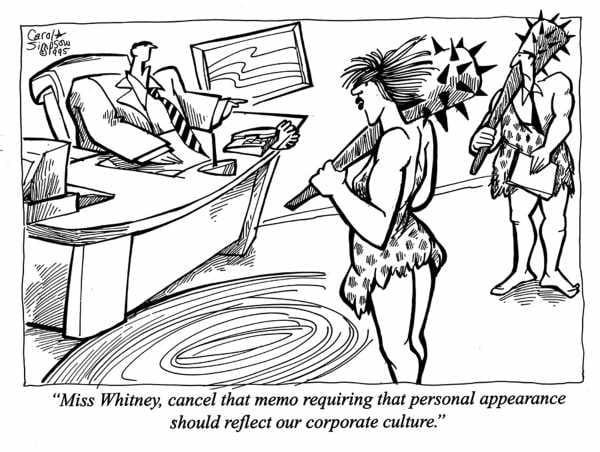
Summary
For some company leaders, a corporate culture may be viewed as a touchy-feely-mushy type of concept. For some leaders, the more tangible metrics and KPI’s (Key Performance Indicators) are more important than the soft side of the business – the people. The fact is, however, a great company culture is an absolute “MUST HAVE” for a business to thrive and to survive. If you cannot fully engage your people and if your people’s heart and soul are not with you, you will not prosper and flourish. Yes, that is how clearly it is: a great culture produces great people and great results.
Creating and cultivating a great company culture requires challenging work. You cannot just offer some goodies or snacks in the coffee room, a casual dress code, a virtual coffee or happy hour, an annual picnic or Christmas Party, and be done with it. The real impact comes from how your leadership team helps create Champions throughout your organization. What impact do you make on your people? That is the core of your organization. Your culture is the “SOUL” of your organization.
A great company culture is like the solid land you must have if you want to construct a building. If your land is soft, soggy, unable to walk on like a swamp, you cannot build a 20-story high-rise on it. You cannot even put a driveway or sidewalk on it – it will get damaged and disappear quickly. The land is the foundation of everything else. Look at Manhattan in New York City and look at the everglades in Florida. Where would you want to erect a 100-story tall building? That is the same thing with your culture. If you do not create and maintain a culture, you will – by default – have a culture that is being slapped and smacked together in a sloppy manner and will not attract any quality employees.
Curriculum
Success Accelerator – Workshop 1 – Culture Success
- Mission Statement
- Vision Statement
- Strong Leadership
- Employee Empowerment
- Open Communication
- Trust And Respect
- Continuous Learning And Development
- Work-Life Balance
- Diversity And Inclusion
- Recognition And Rewards
- Collaboration And Teamwork
- Ethical And Social Responsibility
Distance Learning
Introduction
Welcome to Appleton Greene and thank you for enrolling on the Success Accelerator corporate training program. You will be learning through our unique facilitation via distance-learning method, which will enable you to practically implement everything that you learn academically. The methods and materials used in your program have been designed and developed to ensure that you derive the maximum benefits and enjoyment possible. We hope that you find the program challenging and fun to do. However, if you have never been a distance-learner before, you may be experiencing some trepidation at the task before you. So we will get you started by giving you some basic information and guidance on how you can make the best use of the modules, how you should manage the materials and what you should be doing as you work through them. This guide is designed to point you in the right direction and help you to become an effective distance-learner. Take a few hours or so to study this guide and your guide to tutorial support for students, while making notes, before you start to study in earnest.
Study environment
You will need to locate a quiet and private place to study, preferably a room where you can easily be isolated from external disturbances or distractions. Make sure the room is well-lit and incorporates a relaxed, pleasant feel. If you can spoil yourself within your study environment, you will have much more of a chance to ensure that you are always in the right frame of mind when you do devote time to study. For example, a nice fire, the ability to play soft soothing background music, soft but effective lighting, perhaps a nice view if possible and a good size desk with a comfortable chair. Make sure that your family know when you are studying and understand your study rules. Your study environment is very important. The ideal situation, if at all possible, is to have a separate study, which can be devoted to you. If this is not possible then you will need to pay a lot more attention to developing and managing your study schedule, because it will affect other people as well as yourself. The better your study environment, the more productive you will be.
Study tools & rules
Try and make sure that your study tools are sufficient and in good working order. You will need to have access to a computer, scanner and printer, with access to the internet. You will need a very comfortable chair, which supports your lower back, and you will need a good filing system. It can be very frustrating if you are spending valuable study time trying to fix study tools that are unreliable, or unsuitable for the task. Make sure that your study tools are up to date. You will also need to consider some study rules. Some of these rules will apply to you and will be intended to help you to be more disciplined about when and how you study. This distance-learning guide will help you and after you have read it you can put some thought into what your study rules should be. You will also need to negotiate some study rules for your family, friends or anyone who lives with you. They too will need to be disciplined in order to ensure that they can support you while you study. It is important to ensure that your family and friends are an integral part of your study team. Having their support and encouragement can prove to be a crucial contribution to your successful completion of the program. Involve them in as much as you can.
Successful distance-learning
Distance-learners are freed from the necessity of attending regular classes or workshops, since they can study in their own way, at their own pace and for their own purposes. But unlike traditional internal training courses, it is the student’s responsibility, with a distance-learning program, to ensure that they manage their own study contribution. This requires strong self-discipline and self-motivation skills and there must be a clear will to succeed. Those students who are used to managing themselves, are good at managing others and who enjoy working in isolation, are more likely to be good distance-learners. It is also important to be aware of the main reasons why you are studying and of the main objectives that you are hoping to achieve as a result. You will need to remind yourself of these objectives at times when you need to motivate yourself. Never lose sight of your long-term goals and your short-term objectives. There is nobody available here to pamper you, or to look after you, or to spoon-feed you with information, so you will need to find ways to encourage and appreciate yourself while you are studying. Make sure that you chart your study progress, so that you can be sure of your achievements and re-evaluate your goals and objectives regularly.
Self-assessment
Appleton Greene training programs are in all cases post-graduate programs. Consequently, you should already have obtained a business-related degree and be an experienced learner. You should therefore already be aware of your study strengths and weaknesses. For example, which time of the day are you at your most productive? Are you a lark or an owl? What study methods do you respond to the most? Are you a consistent learner? How do you discipline yourself? How do you ensure that you enjoy yourself while studying? It is important to understand yourself as a learner and so some self-assessment early on will be necessary if you are to apply yourself correctly. Perform a SWOT analysis on yourself as a student. List your internal strengths and weaknesses as a student and your external opportunities and threats. This will help you later on when you are creating a study plan. You can then incorporate features within your study plan that can ensure that you are playing to your strengths, while compensating for your weaknesses. You can also ensure that you make the most of your opportunities, while avoiding the potential threats to your success.
Accepting responsibility as a student
Training programs invariably require a significant investment, both in terms of what they cost and in the time that you need to contribute to study and the responsibility for successful completion of training programs rests entirely with the student. This is never more apparent than when a student is learning via distance-learning. Accepting responsibility as a student is an important step towards ensuring that you can successfully complete your training program. It is easy to instantly blame other people or factors when things go wrong. But the fact of the matter is that if a failure is your failure, then you have the power to do something about it, it is entirely in your own hands. If it is always someone else’s failure, then you are powerless to do anything about it. All students study in entirely different ways, this is because we are all individuals and what is right for one student, is not necessarily right for another. In order to succeed, you will have to accept personal responsibility for finding a way to plan, implement and manage a personal study plan that works for you. If you do not succeed, you only have yourself to blame.
Planning
By far the most critical contribution to stress, is the feeling of not being in control. In the absence of planning we tend to be reactive and can stumble from pillar to post in the hope that things will turn out fine in the end. Invariably they don’t! In order to be in control, we need to have firm ideas about how and when we want to do things. We also need to consider as many possible eventualities as we can, so that we are prepared for them when they happen. Prescriptive Change, is far easier to manage and control, than Emergent Change. The same is true with distance-learning. It is much easier and much more enjoyable, if you feel that you are in control and that things are going to plan. Even when things do go wrong, you are prepared for them and can act accordingly without any unnecessary stress. It is important therefore that you do take time to plan your studies properly.
Management
Once you have developed a clear study plan, it is of equal importance to ensure that you manage the implementation of it. Most of us usually enjoy planning, but it is usually during implementation when things go wrong. Targets are not met and we do not understand why. Sometimes we do not even know if targets are being met. It is not enough for us to conclude that the study plan just failed. If it is failing, you will need to understand what you can do about it. Similarly if your study plan is succeeding, it is still important to understand why, so that you can improve upon your success. You therefore need to have guidelines for self-assessment so that you can be consistent with performance improvement throughout the program. If you manage things correctly, then your performance should constantly improve throughout the program.
Study objectives & tasks
The first place to start is developing your program objectives. These should feature your reasons for undertaking the training program in order of priority. Keep them succinct and to the point in order to avoid confusion. Do not just write the first things that come into your head because they are likely to be too similar to each other. Make a list of possible departmental headings, such as: Customer Service; E-business; Finance; Globalization; Human Resources; Technology; Legal; Management; Marketing and Production. Then brainstorm for ideas by listing as many things that you want to achieve under each heading and later re-arrange these things in order of priority. Finally, select the top item from each department heading and choose these as your program objectives. Try and restrict yourself to five because it will enable you to focus clearly. It is likely that the other things that you listed will be achieved if each of the top objectives are achieved. If this does not prove to be the case, then simply work through the process again.
Study forecast
As a guide, the Appleton Greene Success Accelerator corporate training program should take 12-18 months to complete, depending upon your availability and current commitments. The reason why there is such a variance in time estimates is because every student is an individual, with differing productivity levels and different commitments. These differentiations are then exaggerated by the fact that this is a distance-learning program, which incorporates the practical integration of academic theory as an as a part of the training program. Consequently all of the project studies are real, which means that important decisions and compromises need to be made. You will want to get things right and will need to be patient with your expectations in order to ensure that they are. We would always recommend that you are prudent with your own task and time forecasts, but you still need to develop them and have a clear indication of what are realistic expectations in your case. With reference to your time planning: consider the time that you can realistically dedicate towards study with the program every week; calculate how long it should take you to complete the program, using the guidelines featured here; then break the program down into logical modules and allocate a suitable proportion of time to each of them, these will be your milestones; you can create a time plan by using a spreadsheet on your computer, or a personal organizer such as MS Outlook, you could also use a financial forecasting software; break your time forecasts down into manageable chunks of time, the more specific you can be, the more productive and accurate your time management will be; finally, use formulas where possible to do your time calculations for you, because this will help later on when your forecasts need to change in line with actual performance. With reference to your task planning: refer to your list of tasks that need to be undertaken in order to achieve your program objectives; with reference to your time plan, calculate when each task should be implemented; remember that you are not estimating when your objectives will be achieved, but when you will need to focus upon implementing the corresponding tasks; you also need to ensure that each task is implemented in conjunction with the associated training modules which are relevant; then break each single task down into a list of specific to do’s, say approximately ten to do’s for each task and enter these into your study plan; once again you could use MS Outlook to incorporate both your time and task planning and this could constitute your study plan; you could also use a project management software like MS Project. You should now have a clear and realistic forecast detailing when you can expect to be able to do something about undertaking the tasks to achieve your program objectives.
Performance management
It is one thing to develop your study forecast, it is quite another to monitor your progress. Ultimately it is less important whether you achieve your original study forecast and more important that you update it so that it constantly remains realistic in line with your performance. As you begin to work through the program, you will begin to have more of an idea about your own personal performance and productivity levels as a distance-learner. Once you have completed your first study module, you should re-evaluate your study forecast for both time and tasks, so that they reflect your actual performance level achieved. In order to achieve this you must first time yourself while training by using an alarm clock. Set the alarm for hourly intervals and make a note of how far you have come within that time. You can then make a note of your actual performance on your study plan and then compare your performance against your forecast. Then consider the reasons that have contributed towards your performance level, whether they are positive or negative and make a considered adjustment to your future forecasts as a result. Given time, you should start achieving your forecasts regularly.
With reference to time management: time yourself while you are studying and make a note of the actual time taken in your study plan; consider your successes with time-efficiency and the reasons for the success in each case and take this into consideration when reviewing future time planning; consider your failures with time-efficiency and the reasons for the failures in each case and take this into consideration when reviewing future time planning; re-evaluate your study forecast in relation to time planning for the remainder of your training program to ensure that you continue to be realistic about your time expectations. You need to be consistent with your time management, otherwise you will never complete your studies. This will either be because you are not contributing enough time to your studies, or you will become less efficient with the time that you do allocate to your studies. Remember, if you are not in control of your studies, they can just become yet another cause of stress for you.
With reference to your task management: time yourself while you are studying and make a note of the actual tasks that you have undertaken in your study plan; consider your successes with task-efficiency and the reasons for the success in each case; take this into consideration when reviewing future task planning; consider your failures with task-efficiency and the reasons for the failures in each case and take this into consideration when reviewing future task planning; re-evaluate your study forecast in relation to task planning for the remainder of your training program to ensure that you continue to be realistic about your task expectations. You need to be consistent with your task management, otherwise you will never know whether you are achieving your program objectives or not.
Keeping in touch
You will have access to qualified and experienced professors and tutors who are responsible for providing tutorial support for your particular training program. So don’t be shy about letting them know how you are getting on. We keep electronic records of all tutorial support emails so that professors and tutors can review previous correspondence before considering an individual response. It also means that there is a record of all communications between you and your professors and tutors and this helps to avoid any unnecessary duplication, misunderstanding, or misinterpretation. If you have a problem relating to the program, share it with them via email. It is likely that they have come across the same problem before and are usually able to make helpful suggestions and steer you in the right direction. To learn more about when and how to use tutorial support, please refer to the Tutorial Support section of this student information guide. This will help you to ensure that you are making the most of tutorial support that is available to you and will ultimately contribute towards your success and enjoyment with your training program.
Work colleagues and family
You should certainly discuss your program study progress with your colleagues, friends and your family. Appleton Greene training programs are very practical. They require you to seek information from other people, to plan, develop and implement processes with other people and to achieve feedback from other people in relation to viability and productivity. You will therefore have plenty of opportunities to test your ideas and enlist the views of others. People tend to be sympathetic towards distance-learners, so don’t bottle it all up in yourself. Get out there and share it! It is also likely that your family and colleagues are going to benefit from your labors with the program, so they are likely to be much more interested in being involved than you might think. Be bold about delegating work to those who might benefit themselves. This is a great way to achieve understanding and commitment from people who you may later rely upon for process implementation. Share your experiences with your friends and family.
Making it relevant
The key to successful learning is to make it relevant to your own individual circumstances. At all times you should be trying to make bridges between the content of the program and your own situation. Whether you achieve this through quiet reflection or through interactive discussion with your colleagues, client partners or your family, remember that it is the most important and rewarding aspect of translating your studies into real self-improvement. You should be clear about how you want the program to benefit you. This involves setting clear study objectives in relation to the content of the course in terms of understanding, concepts, completing research or reviewing activities and relating the content of the modules to your own situation. Your objectives may understandably change as you work through the program, in which case you should enter the revised objectives on your study plan so that you have a permanent reminder of what you are trying to achieve, when and why.
Distance-learning check-list
Prepare your study environment, your study tools and rules.
Undertake detailed self-assessment in terms of your ability as a learner.
Create a format for your study plan.
Consider your study objectives and tasks.
Create a study forecast.
Assess your study performance.
Re-evaluate your study forecast.
Be consistent when managing your study plan.
Use your Appleton Greene Certified Learning Provider (CLP) for tutorial support.
Make sure you keep in touch with those around you.

Tutorial Support
Programs
Appleton Greene uses standard and bespoke corporate training programs as vessels to transfer business process improvement knowledge into the heart of our clients’ organizations. Each individual program focuses upon the implementation of a specific business process, which enables clients to easily quantify their return on investment. There are hundreds of established Appleton Greene corporate training products now available to clients within customer services, e-business, finance, globalization, human resources, information technology, legal, management, marketing and production. It does not matter whether a client’s employees are located within one office, or an unlimited number of international offices, we can still bring them together to learn and implement specific business processes collectively. Our approach to global localization enables us to provide clients with a truly international service with that all important personal touch. Appleton Greene corporate training programs can be provided virtually or locally and they are all unique in that they individually focus upon a specific business function. They are implemented over a sustainable period of time and professional support is consistently provided by qualified learning providers and specialist consultants.
Support available
You will have a designated Certified Learning Provider (CLP) and an Accredited Consultant and we encourage you to communicate with them as much as possible. In all cases tutorial support is provided online because we can then keep a record of all communications to ensure that tutorial support remains consistent. You would also be forwarding your work to the tutorial support unit for evaluation and assessment. You will receive individual feedback on all of the work that you undertake on a one-to-one basis, together with specific recommendations for anything that may need to be changed in order to achieve a pass with merit or a pass with distinction and you then have as many opportunities as you may need to re-submit project studies until they meet with the required standard. Consequently the only reason that you should really fail (CLP) is if you do not do the work. It makes no difference to us whether a student takes 12 months or 18 months to complete the program, what matters is that in all cases the same quality standard will have been achieved.
Support Process
Please forward all of your future emails to the designated (CLP) Tutorial Support Unit email address that has been provided and please do not duplicate or copy your emails to other AGC email accounts as this will just cause unnecessary administration. Please note that emails are always answered as quickly as possible but you will need to allow a period of up to 20 business days for responses to general tutorial support emails during busy periods, because emails are answered strictly within the order in which they are received. You will also need to allow a period of up to 30 business days for the evaluation and assessment of project studies. This does not include weekends or public holidays. Please therefore kindly allow for this within your time planning. All communications are managed online via email because it enables tutorial service support managers to review other communications which have been received before responding and it ensures that there is a copy of all communications retained on file for future reference. All communications will be stored within your personal (CLP) study file here at Appleton Greene throughout your designated study period. If you need any assistance or clarification at any time, please do not hesitate to contact us by forwarding an email and remember that we are here to help. If you have any questions, please list and number your questions succinctly and you can then be sure of receiving specific answers to each and every query.
Time Management
It takes approximately 1 Year to complete the Success Accelerator corporate training program, incorporating 12 x 6-hour monthly workshops. Each student will also need to contribute approximately 4 hours per week over 1 Year of their personal time. Students can study from home or work at their own pace and are responsible for managing their own study plan. There are no formal examinations and students are evaluated and assessed based upon their project study submissions, together with the quality of their internal analysis and supporting documents. They can contribute more time towards study when they have the time to do so and can contribute less time when they are busy. All students tend to be in full time employment while studying and the Success Accelerator program is purposely designed to accommodate this, so there is plenty of flexibility in terms of time management. It makes no difference to us at Appleton Greene, whether individuals take 12-18 months to complete this program. What matters is that in all cases the same standard of quality will have been achieved with the standard and bespoke programs that have been developed.
Distance Learning Guide
The distance learning guide should be your first port of call when starting your training program. It will help you when you are planning how and when to study, how to create the right environment and how to establish the right frame of mind. If you can lay the foundations properly during the planning stage, then it will contribute to your enjoyment and productivity while training later. The guide helps to change your lifestyle in order to accommodate time for study and to cultivate good study habits. It helps you to chart your progress so that you can measure your performance and achieve your goals. It explains the tools that you will need for study and how to make them work. It also explains how to translate academic theory into practical reality. Spend some time now working through your distance learning guide and make sure that you have firm foundations in place so that you can make the most of your distance learning program. There is no requirement for you to attend training workshops or classes at Appleton Greene offices. The entire program is undertaken online, program course manuals and project studies are administered via the Appleton Greene web site and via email, so you are able to study at your own pace and in the comfort of your own home or office as long as you have a computer and access to the internet.
How To Study
The how to study guide provides students with a clear understanding of the Appleton Greene facilitation via distance learning training methods and enables students to obtain a clear overview of the training program content. It enables students to understand the step-by-step training methods used by Appleton Greene and how course manuals are integrated with project studies. It explains the research and development that is required and the need to provide evidence and references to support your statements. It also enables students to understand precisely what will be required of them in order to achieve a pass with merit and a pass with distinction for individual project studies and provides useful guidance on how to be innovative and creative when developing your Unique Program Proposition (UPP).
Tutorial Support
Tutorial support for the Appleton Greene Success Accelerator corporate training program is provided online either through the Appleton Greene Client Support Portal (CSP), or via email. All tutorial support requests are facilitated by a designated Program Administration Manager (PAM). They are responsible for deciding which professor or tutor is the most appropriate option relating to the support required and then the tutorial support request is forwarded onto them. Once the professor or tutor has completed the tutorial support request and answered any questions that have been asked, this communication is then returned to the student via email by the designated Program Administration Manager (PAM). This enables all tutorial support, between students, professors and tutors, to be facilitated by the designated Program Administration Manager (PAM) efficiently and securely through the email account. You will therefore need to allow a period of up to 20 business days for responses to general support queries and up to 30 business days for the evaluation and assessment of project studies, because all tutorial support requests are answered strictly within the order in which they are received. This does not include weekends or public holidays. Consequently you need to put some thought into the management of your tutorial support procedure in order to ensure that your study plan is feasible and to obtain the maximum possible benefit from tutorial support during your period of study. Please retain copies of your tutorial support emails for future reference. Please ensure that ALL of your tutorial support emails are set out using the format as suggested within your guide to tutorial support. Your tutorial support emails need to be referenced clearly to the specific part of the course manual or project study which you are working on at any given time. You also need to list and number any questions that you would like to ask, up to a maximum of five questions within each tutorial support email. Remember the more specific you can be with your questions the more specific your answers will be too and this will help you to avoid any unnecessary misunderstanding, misinterpretation, or duplication. The guide to tutorial support is intended to help you to understand how and when to use support in order to ensure that you get the most out of your training program. Appleton Greene training programs are designed to enable you to do things for yourself. They provide you with a structure or a framework and we use tutorial support to facilitate students while they practically implement what they learn. In other words, we are enabling students to do things for themselves. The benefits of distance learning via facilitation are considerable and are much more sustainable in the long-term than traditional short-term knowledge sharing programs. Consequently you should learn how and when to use tutorial support so that you can maximize the benefits from your learning experience with Appleton Greene. This guide describes the purpose of each training function and how to use them and how to use tutorial support in relation to each aspect of the training program. It also provides useful tips and guidance with regard to best practice.
Tutorial Support Tips
Students are often unsure about how and when to use tutorial support with Appleton Greene. This Tip List will help you to understand more about how to achieve the most from using tutorial support. Refer to it regularly to ensure that you are continuing to use the service properly. Tutorial support is critical to the success of your training experience, but it is important to understand when and how to use it in order to maximize the benefit that you receive. It is no coincidence that those students who succeed are those that learn how to be positive, proactive and productive when using tutorial support.
Be positive and friendly with your tutorial support emails
Remember that if you forward an email to the tutorial support unit, you are dealing with real people. “Do unto others as you would expect others to do unto you”. If you are positive, complimentary and generally friendly in your emails, you will generate a similar response in return. This will be more enjoyable, productive and rewarding for you in the long-term.
Think about the impression that you want to create
Every time that you communicate, you create an impression, which can be either positive or negative, so put some thought into the impression that you want to create. Remember that copies of all tutorial support emails are stored electronically and tutors will always refer to prior correspondence before responding to any current emails. Over a period of time, a general opinion will be arrived at in relation to your character, attitude and ability. Try to manage your own frustrations, mood swings and temperament professionally, without involving the tutorial support team. Demonstrating frustration or a lack of patience is a weakness and will be interpreted as such. The good thing about communicating in writing, is that you will have the time to consider your content carefully, you can review it and proof-read it before sending your email to Appleton Greene and this should help you to communicate more professionally, consistently and to avoid any unnecessary knee-jerk reactions to individual situations as and when they may arise. Please also remember that the CLP Tutorial Support Unit will not just be responsible for evaluating and assessing the quality of your work, they will also be responsible for providing recommendations to other learning providers and to client contacts within the Appleton Greene global client network, so do be in control of your own emotions and try to create a good impression.
Remember that quality is preferred to quantity
Please remember that when you send an email to the tutorial support team, you are not using Twitter or Text Messaging. Try not to forward an email every time that you have a thought. This will not prove to be productive either for you or for the tutorial support team. Take time to prepare your communications properly, as if you were writing a professional letter to a business colleague and make a list of queries that you are likely to have and then incorporate them within one email, say once every month, so that the tutorial support team can understand more about context, application and your methodology for study. Get yourself into a consistent routine with your tutorial support requests and use the tutorial support template provided with ALL of your emails. The (CLP) Tutorial Support Unit will not spoon-feed you with information. They need to be able to evaluate and assess your tutorial support requests carefully and professionally.
Be specific about your questions in order to receive specific answers
Try not to write essays by thinking as you are writing tutorial support emails. The tutorial support unit can be unclear about what in fact you are asking, or what you are looking to achieve. Be specific about asking questions that you want answers to. Number your questions. You will then receive specific answers to each and every question. This is the main purpose of tutorial support via email.
Keep a record of your tutorial support emails
It is important that you keep a record of all tutorial support emails that are forwarded to you. You can then refer to them when necessary and it avoids any unnecessary duplication, misunderstanding, or misinterpretation.
Individual training workshops or telephone support
Please be advised that Appleton Greene does not provide separate or individual tutorial support meetings, workshops, or provide telephone support for individual students. Appleton Greene is an equal opportunities learning and service provider and we are therefore understandably bound to treat all students equally. We cannot therefore broker special financial or study arrangements with individual students regardless of the circumstances. All tutorial support is provided online and this enables Appleton Greene to keep a record of all communications between students, professors and tutors on file for future reference, in accordance with our quality management procedure and your terms and conditions of enrolment. All tutorial support is provided online via email because it enables us to have time to consider support content carefully, it ensures that you receive a considered and detailed response to your queries. You can number questions that you would like to ask, which relate to things that you do not understand or where clarification may be required. You can then be sure of receiving specific answers to each individual query. You will also then have a record of these communications and of all tutorial support, which has been provided to you. This makes tutorial support administration more productive by avoiding any unnecessary duplication, misunderstanding, or misinterpretation.
Tutorial Support Email Format
You should use this tutorial support format if you need to request clarification or assistance while studying with your training program. Please note that ALL of your tutorial support request emails should use the same format. You should therefore set up a standard email template, which you can then use as and when you need to. Emails that are forwarded to Appleton Greene, which do not use the following format, may be rejected and returned to you by the (CLP) Program Administration Manager. A detailed response will then be forwarded to you via email usually within 20 business days of receipt for general support queries and 30 business days for the evaluation and assessment of project studies. This does not include weekends or public holidays. Your tutorial support request, together with the corresponding TSU reply, will then be saved and stored within your electronic TSU file at Appleton Greene for future reference.
Subject line of your email
Please insert: Appleton Greene (CLP) Tutorial Support Request: (Your Full Name) (Date), within the subject line of your email.
Main body of your email
Please insert:
1. Appleton Greene Certified Learning Provider (CLP) Tutorial Support Request
2. Your Full Name
3. Date of TS request
4. Preferred email address
5. Backup email address
6. Course manual page name or number (reference)
7. Project study page name or number (reference)
Subject of enquiry
Please insert a maximum of 50 words (please be succinct)
Briefly outline the subject matter of your inquiry, or what your questions relate to.
Question 1
Maximum of 50 words (please be succinct)
Maximum of 50 words (please be succinct)
Question 3
Maximum of 50 words (please be succinct)
Question 4
Maximum of 50 words (please be succinct)
Question 5
Maximum of 50 words (please be succinct)
Please note that a maximum of 5 questions is permitted with each individual tutorial support request email.
Procedure
* List the questions that you want to ask first, then re-arrange them in order of priority. Make sure that you reference them, where necessary, to the course manuals or project studies.
* Make sure that you are specific about your questions and number them. Try to plan the content within your emails to make sure that it is relevant.
* Make sure that your tutorial support emails are set out correctly, using the Tutorial Support Email Format provided here.
* Save a copy of your email and incorporate the date sent after the subject title. Keep your tutorial support emails within the same file and in date order for easy reference.
* Allow up to 20 business days for a response to general tutorial support emails and up to 30 business days for the evaluation and assessment of project studies, because detailed individual responses will be made in all cases and tutorial support emails are answered strictly within the order in which they are received.
* Emails can and do get lost. So if you have not received a reply within the appropriate time, forward another copy or a reminder to the tutorial support unit to be sure that it has been received but do not forward reminders unless the appropriate time has elapsed.
* When you receive a reply, save it immediately featuring the date of receipt after the subject heading for easy reference. In most cases the tutorial support unit replies to your questions individually, so you will have a record of the questions that you asked as well as the answers offered. With project studies however, separate emails are usually forwarded by the tutorial support unit, so do keep a record of your own original emails as well.
* Remember to be positive and friendly in your emails. You are dealing with real people who will respond to the same things that you respond to.
* Try not to repeat questions that have already been asked in previous emails. If this happens the tutorial support unit will probably just refer you to the appropriate answers that have already been provided within previous emails.
* If you lose your tutorial support email records you can write to Appleton Greene to receive a copy of your tutorial support file, but a separate administration charge may be levied for this service.

How To Study
Your Certified Learning Provider (CLP) and Accredited Consultant can help you to plan a task list for getting started so that you can be clear about your direction and your priorities in relation to your training program. It is also a good way to introduce yourself to the tutorial support team.
Planning your study environment
Your study conditions are of great importance and will have a direct effect on how much you enjoy your training program. Consider how much space you will have, whether it is comfortable and private and whether you are likely to be disturbed. The study tools and facilities at your disposal are also important to the success of your distance-learning experience. Your tutorial support unit can help with useful tips and guidance, regardless of your starting position. It is important to get this right before you start working on your training program.
Planning your program objectives
It is important that you have a clear list of study objectives, in order of priority, before you start working on your training program. Your tutorial support unit can offer assistance here to ensure that your study objectives have been afforded due consideration and priority.
Planning how and when to study
Distance-learners are freed from the necessity of attending regular classes, since they can study in their own way, at their own pace and for their own purposes. This approach is designed to let you study efficiently away from the traditional classroom environment. It is important however, that you plan how and when to study, so that you are making the most of your natural attributes, strengths and opportunities. Your tutorial support unit can offer assistance and useful tips to ensure that you are playing to your strengths.
Planning your study tasks
You should have a clear understanding of the study tasks that you should be undertaking and the priority associated with each task. These tasks should also be integrated with your program objectives. The distance learning guide and the guide to tutorial support for students should help you here, but if you need any clarification or assistance, please contact your tutorial support unit.
Planning your time
You will need to allocate specific times during your calendar when you intend to study if you are to have a realistic chance of completing your program on time. You are responsible for planning and managing your own study time, so it is important that you are successful with this. Your tutorial support unit can help you with this if your time plan is not working.
Keeping in touch
Consistency is the key here. If you communicate too frequently in short bursts, or too infrequently with no pattern, then your management ability with your studies will be questioned, both by you and by your tutorial support unit. It is obvious when a student is in control and when one is not and this will depend how able you are at sticking with your study plan. Inconsistency invariably leads to in-completion.
Charting your progress
Your tutorial support team can help you to chart your own study progress. Refer to your distance learning guide for further details.
Making it work
To succeed, all that you will need to do is apply yourself to undertaking your training program and interpreting it correctly. Success or failure lies in your hands and your hands alone, so be sure that you have a strategy for making it work. Your Certified Learning Provider (CLP) and Accredited Consultant can guide you through the process of program planning, development and implementation.
Reading methods
Interpretation is often unique to the individual but it can be improved and even quantified by implementing consistent interpretation methods. Interpretation can be affected by outside interference such as family members, TV, or the Internet, or simply by other thoughts which are demanding priority in our minds. One thing that can improve our productivity is using recognized reading methods. This helps us to focus and to be more structured when reading information for reasons of importance, rather than relaxation.
Speed reading
When reading through course manuals for the first time, subconsciously set your reading speed to be just fast enough that you cannot dwell on individual words or tables. With practice, you should be able to read an A4 sheet of paper in one minute. You will not achieve much in the way of a detailed understanding, but your brain will retain a useful overview. This overview will be important later on and will enable you to keep individual issues in perspective with a more generic picture because speed reading appeals to the memory part of the brain. Do not worry about what you do or do not remember at this stage.
Content reading
Once you have speed read everything, you can then start work in earnest. You now need to read a particular section of your course manual thoroughly, by making detailed notes while you read. This process is called Content Reading and it will help to consolidate your understanding and interpretation of the information that has been provided.
Making structured notes on the course manuals
When you are content reading, you should be making detailed notes, which are both structured and informative. Make these notes in a MS Word document on your computer, because you can then amend and update these as and when you deem it to be necessary. List your notes under three headings: 1. Interpretation – 2. Questions – 3. Tasks. The purpose of the 1st section is to clarify your interpretation by writing it down. The purpose of the 2nd section is to list any questions that the issue raises for you. The purpose of the 3rd section is to list any tasks that you should undertake as a result. Anyone who has graduated with a business-related degree should already be familiar with this process.
Organizing structured notes separately
You should then transfer your notes to a separate study notebook, preferably one that enables easy referencing, such as a MS Word Document, a MS Excel Spreadsheet, a MS Access Database, or a personal organizer on your cell phone. Transferring your notes allows you to have the opportunity of cross-checking and verifying them, which assists considerably with understanding and interpretation. You will also find that the better you are at doing this, the more chance you will have of ensuring that you achieve your study objectives.
Question your understanding
Do challenge your understanding. Explain things to yourself in your own words by writing things down.
Clarifying your understanding
If you are at all unsure, forward an email to your tutorial support unit and they will help to clarify your understanding.
Question your interpretation
Do challenge your interpretation. Qualify your interpretation by writing it down.
Clarifying your interpretation
If you are at all unsure, forward an email to your tutorial support unit and they will help to clarify your interpretation.
Qualification Requirements
The student will need to successfully complete the project study and all of the exercises relating to the Success Accelerator corporate training program, achieving a pass with merit or distinction in each case, in order to qualify as an Accredited Success Accelerator Specialist (APTS). All monthly workshops need to be tried and tested within your company. These project studies can be completed in your own time and at your own pace and in the comfort of your own home or office. There are no formal examinations, assessment is based upon the successful completion of the project studies. They are called project studies because, unlike case studies, these projects are not theoretical, they incorporate real program processes that need to be properly researched and developed. The project studies assist us in measuring your understanding and interpretation of the training program and enable us to assess qualification merits. All of the project studies are based entirely upon the content within the training program and they enable you to integrate what you have learnt into your corporate training practice.
Success Accelerator – Grading Contribution
Project Study – Grading Contribution
Customer Service – 10%
E-business – 05%
Finance – 10%
Globalization – 10%
Human Resources – 10%
Information Technology – 10%
Legal – 05%
Management – 10%
Marketing – 10%
Production – 10%
Education – 05%
Logistics – 05%
TOTAL GRADING – 100%
Qualification grades
A mark of 90% = Pass with Distinction.
A mark of 75% = Pass with Merit.
A mark of less than 75% = Fail.
If you fail to achieve a mark of 75% with a project study, you will receive detailed feedback from the Certified Learning Provider (CLP) and/or Accredited Consultant, together with a list of tasks which you will need to complete, in order to ensure that your project study meets with the minimum quality standard that is required by Appleton Greene. You can then re-submit your project study for further evaluation and assessment. Indeed you can re-submit as many drafts of your project studies as you need to, until such a time as they eventually meet with the required standard by Appleton Greene, so you need not worry about this, it is all part of the learning process.
When marking project studies, Appleton Greene is looking for sufficient evidence of the following:
Pass with merit
A satisfactory level of program understanding
A satisfactory level of program interpretation
A satisfactory level of project study content presentation
A satisfactory level of Unique Program Proposition (UPP) quality
A satisfactory level of the practical integration of academic theory
Pass with distinction
An exceptional level of program understanding
An exceptional level of program interpretation
An exceptional level of project study content presentation
An exceptional level of Unique Program Proposition (UPP) quality
An exceptional level of the practical integration of academic theory
Preliminary Analysis
Forty more samples of Corporate Culture Values to choose from
Providing you with a great variety of samples of corporate culture values and related statements could definitely empower your organization to embrace the idea to move forward with greater speed. This section offers you some benefits of diversity, tailoring your organization’s specific needs, and allowing for flexibility and evolution. By considering multiple samples, your organization can develop a culture values framework that is inclusive, meaningful, and supports the long-term success and growth of your organization.
1. Diversity and Inclusion. Different samples of corporate culture values allow your organization to embrace and promote inclusivity. By encompassing a range of perspectives, backgrounds, and beliefs, these values and statements demonstrate a commitment to creating an inclusive environment where everyone feels welcome and valued.
2. Alignment and Direction. Multiple samples of corporate culture values help align your employees with your organization’s mission, vision, and goals. They provide a clear direction and shared understanding of your company’s core principles, fostering a sense of unity and purpose.
3. Employee Engagement. Corporate culture values and related statements contribute to employee engagement and retention. When your employees resonate with the values and see them reflected in your company’s actions, they feel a stronger connection to your organization and its purpose. This can enhance job satisfaction and loyalty.
4. Decision-Making and Behavior. Well-defined corporate culture values serve as a guide for decision-making and behavior within your organization. They set standards of conduct, ethics, and professionalism, helping your employees make choices that align with your company’s principles and desired culture.

1. Active Listening
What is Active Listening?
Active Listening in a corporate culture refers to the practice of fully engaging with others during communication, focusing on understanding their messages, and responding appropriately. It involves giving undivided attention, maintaining eye contact, providing verbal and non-verbal cues, and seeking clarification when needed.
The benefits of active listening in a corporate culture are significant. It promotes effective communication and strengthens relationships among team members. By actively listening, individuals can better understand their colleagues’ perspectives, needs, and ideas, leading to improved collaboration and teamwork. Active listening also enhances problem-solving and decision-making. By attentively listening to different viewpoints, leaders can gather diverse insights, make informed choices, and foster innovation within the organization. Active listening contributes to a positive work environment by making employees feel valued and heard. This boosts morale, motivation, and job satisfaction, leading to increased productivity and a lower turnover rate.
Sample of an “Active Listening” Statement
“We appreciate our employees’ input during our team meetings. It seems they have some valuable insights and suggestions regarding our marketing strategy. We want our employees to elaborate on their ideas and how they think they could positively impact our campaign. We genuinely want to understand our people’s perspective and explore how we can incorporate their expertise to enhance our overall approach. Their input is valuable to us, and we want to ensure that we create an environment where everyone’s contributions are recognized and taken into account. We want our people to feel free in sharing any additional thoughts or concerns they may have. Their perspective and expertise play a vital role in our team’s success, and we want to make sure we leverage that effectively.”

2. Adaptability
What is Adaptability?
Adaptability in a corporate culture refers to the organization’s capacity to embrace change and respond effectively to shifting circumstances, market trends, and challenges. It involves fostering a flexible and open mindset that encourages employees to proactively adjust strategies, processes, and behaviors when needed.
The benefits of adaptability in a corporate culture are numerous. It enables your businesses to stay resilient and competitive in a dynamic environment, reducing the risk of obsolescence. By quickly adapting to new situations, your organization can seize emerging opportunities and overcome obstacles more effectively and more efficiently. Adaptability fosters innovation and creativity among employees, as they feel empowered to explore new ideas and experiment with different approaches. This leads to improved problem-solving and continuous improvement. An adaptable corporate culture enhances employee satisfaction and retention. When employees witness a willingness to adapt, they feel supported and valued, resulting in higher engagement and loyalty to the organization. Furthermore, adaptability allows companies to be more customer-centric, meeting evolving customer needs and preferences effectively.
Sample of an “Adaptability Statement.”
“At our company, we embrace adaptability as a core value that fuels our success. We understand that in a constantly evolving business landscape, the ability to adapt is essential. We encourage our employees to remain flexible, open-minded, and proactive in embracing change. Our culture fosters a willingness to learn, experiment and continuously improve to stay at the forefront of our industry. When faced with new challenges or opportunities, we approach them with a positive and solution-oriented mindset. We empower our teams to assess situations critically, make informed decisions, and pivot when necessary. We value creativity, innovation, and resourcefulness, recognizing that they are vital components of our adaptability. By nurturing a culture of adaptability, we remain resilient, competitive, and customer focused. Our employes are encouraged to share their ideas, collaborate, and drive positive change across all levels of the organization. Together, we embrace change as an opportunity for growth, ensuring our long-term success and continued progress in an ever-changing world.”

3. Authenticity
What is Authenticity?
Authenticity in a corporate culture refers to an environment where individuals and the organization as a whole prioritize being genuinely transparent, and true to their core values and beliefs. It involves fostering an open and honest atmosphere where employees feel comfortable expressing their thoughts, ideas, and concerns without fear of judgement or reprisal.
The benefits of authenticity in a corporate culture are numerous. First, it builds trust among employees and between employees and leadership, leading to stronger relationships and enhanced collaboration. When people feel valued for who they truly are, they are more engaged and committed to their work, resulting in increased productivity and innovation. Second, authenticity also attracts and retains top talent, as job seekers are drawn to organizations with an open and inclusive culture. Third, an authentic corporate culture can lead to improved decision-making process since diverse perspectives are openly considered. It also boosts the company’s reputation, as authenticity fosters better relationships with customers and stakeholders, creating a positive impact on the overall brand image and market perception.
Sample of an “Authenticity Statement.”
“At our company, we firmly believe in the power of authenticity as the cornerstone of our corporate culture. We value open communication, transparency, and genuine interactions at every level of our organization. Our commitment to authenticity means that we encourage all team members to bring their whole selves to work, embracing their unique backgrounds, experiences, and perspectives. We foster an inclusive environment where diverse voices are not only heard but celebrated. We strive to maintain a culture of trust and respect, where feedback is welcomed and acted upon constructively. We understand that mistakes can happen, and we encourage a culture of learning and growth from them. By upholding authenticity, we strengthen our relationships with our employees, customers, partners, and communities. We are dedicated to staying true to our core values, maintaining honesty in our dealings, and holding ourselves accountable for our actions. At our company, authenticity is not just a statement, it is the guiding force that drives us towards success and positive impact in everything we do.”

4. Clarity
What is Clarity?
Clarity in a corporate culture refers to the clear communication of goals, expectations, and information within the organization. It involves providing employees with a well-defined sense of purpose, direction, and understanding of their roles and responsibilities.
The benefits of clarity in a corporate culture is significant. Clear communication helps align employees’ efforts toward common objectives, increasing productivity, and efficiency. It reduces misunderstandings and conflicts, fostering a harmonious work environment. Clarity empowers employees to make informed decisions, boosting autonomy and confidence. It also enhances transparency, trust, and engagement among team members and with leadership. Overall, a culture of clarity contributes to better decision-making, improved performance, and a positive company reputation.
Sample of a “Clarity Statement.”
“At our company, we prioritize clarity as a fundamental element of our corporate culture. We are committed to providing clear and concise communication to all team members. Our goals, expectations, and responsibilities are transparently communicated, ensuring everyone understand their role in achieving our collective objectives. We believe that clear communication fosters a collaborative and efficient work environment, empowering our employees to make informed decisions and take ownership of their tasks. We value open dialogue and encourage feedback to continually improve our communication process. By upholding clarity in all aspects of our organization, we create a cohesive and motivated team that drives us towards shared success.”

5. Clear Communication
What is Clear Communication?
Clear communication in a corporate culture refers to the effective and unambiguous exchange of information, ideas, and expectations among employees, teams and leadership. It involves using concise language, active listening, and appropriate channels to convey messages accurately.
The benefits of clear communication are manifold. It reduces conflicts and misunderstandings, fostering a more harmonious and productive work environment. Clear communication ensures that everyone is on the same page, aligned with organizational goals, leading to improved collaboration and teamwork. It enhances employee engagement, as individuals feel valued when their voices are heard and understood. Clear communication enables quicker decision-making processes and problem-solving, resulting in increased efficiency and innovation. Overall, a corporate culture that priorities clear communication leads to higher productivity, stronger relationships, and better outcomes for the organization.
Sample of a “Clear Communication Statement.”
“At our company, we emphasize the significance of clear communication as a core pillar of our corporate culture. We strive to foster an environment where open dialogue and transparent information exchange flourish. Our commitment to clear communication means that we actively listen to one another, use concise language, and choose appropriate channels to convey messages effectively. By ensuring that goals, expectations, and feedback are communicated unambiguously, we promote collaboration, reduce misunderstanding, and enhance overall productivity. At our company, clear communication is the key to building strong relationship, achieving organizational objectives, and cultivating a positive and inclusive work environment.”

6. Commitment
What is Commitment?
Commitment in a corporate culture refers to the dedication and loyalty of employees to the organization’s mission, vision, values, and goals. It involves a strong sense of responsibility and ownership in fulfilling one’s role and contributing to the company’s success.
The benefits of commitment in a corporate culture are significant. Committed employees are more engaged, motivated, and willing to go the extra mile, leading to increased productivity and efficiency. A culture of commitment fosters a positive work environment, attracting and retaining top talent. It also enhances teamwork and collaboration, as individuals are dedicated to supporting each other and working towards shared objectives. Committed employees tend to be more adaptable to change and actively contribute to the company’s growth and innovation. Moreover, strong commitment to the organization’s values and goals can positively impact its reputation and brand image in the market.
Sample of a “Commitment Statement.”
“At our Company, we wholeheartedly dedicate ourselves to fostering a culture of excellence, collaboration, and integrity. We pledge to uphold the highest standards in every facet of our operations, delivering exceptional products/services to our customers while embracing innovation and sustainability. Our commitment extends to our employees, ensuring a supportive and inclusive environment where growth and personal development thrive. We stand unwaveringly committed to ethical conduct, valuing diversity, and giving back to the communities we serve. With a shared dedication to these principles, we strive to make a lasting positive impact on our industry, society, and the world.”

7. Complimenting
What is Complimenting?
Complimenting in a corporate culture refers to the practice of acknowledging and appreciating the efforts, achievements, and contributions of employees and teams. It involves expressing praise and recognition for their hard work, skills, and positive behaviors.
The benefits of complimenting in a corporate culture are manifold. It boosts employee morale and motivation, leading to increased job satisfaction and productivity. Complimenting fosters a culture of positivity and reinforces desired behaviors, encouraging employees to continue excelling in their roles. It also strengthens team dynamics by promoting a supportive and encouraging work environment. Recognizing and complimenting employees accomplishments enhances their sense of value and loyalty to the organization, contributing to higher employee retention rates. A culture of appreciation and complimenting positively impacts the company’s reputation, making it an attractive workplace for top talent and improving overall employee engagement and well-being.
Sample of a “Complimenting Statement.”
“At our company, we believe in the power of complimenting and recognizing the outstanding efforts of our employees. We take pride in celebrating the hard work and dedication of our teams in achieving exceptional results. Through regular expressions or praise and appreciation, we foster a culture of positivity and support. We acknowledge individual and collective achievements, enforcing our core values and desired behaviors. Our commitment to complimenting creates a motiving work environment where employees feel valued and inspired to excel. We encourage everyone to take a moment to recognize their colleagues’ contributions and express gratitude for their dedication. At our company we understand that a simple compliment can go a long way in building a cohesive and high-performing team, driving our continued success and growth.”

8. Confidence
What is Confidence?
Confidence in a corporate culture refers to the belief and trust that employees have in their own abilities and the organization’s capabilities. It involves a positive and self-assured mindset, where individuals feel empowered to take on challenges and make informed decisions.
The benefits of confidence in a corporate culture are significant. Confident employees are more likely to be proactive and innovative, taking the initiative to solve problems and drive positive change. A culture of confidence promotes risk-taking and learning from failures, fostering a culture of continuous improvement. Confident individuals communicate effectively, leading to better collaboration and teamwork. Confidence enhances leadership effectiveness, as confident leaders inspire and motivate their teams. It also improves the company’s external image, as confidence in products or services instills trust among customers and stakeholders. A culture of confidence empowers employees, increases resilience, and drives long-term success for the organization.
Sample of a “Confidence Statement.”
“At our company, we cultivate a culture of confidence where employees are encouraged to believe in their abilities and embrace challenges with a positive mindset. We value self-assurance and empower our team members to make well-informed decisions and take calculated risks. By fostering an environment that promotes confidence, we inspire innovation and creativity, driving continuous improvement and growth. Confident employees are effective communicators and collaborators, strengthening teamwork and achieving outstanding results. Furthermore, our confident leaders inspire trust and motivation, enabling our teams to overcome obstacles and seize opportunities. This culture of confidence enhances employee satisfaction and engagement, leading to higher productivity and success. At our company, we understand when individuals are confident in their capabilities, our organization thrives with resilience and achieves its fullest potential.”

9. Consistency
What is Consistency?
Consistency in a corporate culture refers to maintaining uniformity and stability in actions, behaviors, and decision-making within an organization. It involves adhering to established values, principles, and processes across all levels and departments. Consistency builds trust among employees and stakeholders, enhances clarity and direction, and streamlines operations, leading to improved productivity and performance. It reinforce the company’s identity and brand image, making it recognizable and dependable to the outside world. Emphasizing consistency in a corporate culture fosters a cohesive and engaged workforce, contribution to long-term success.
The benefits of consistency in a corporate culture are substantial. It builds trust among employees, customers, and stakeholders, as they can rely on the organization’s predictable and reliable practices. Consistency fosters clarity and a sense of direction, ensuring that everyone understands the expectations and goals. It also streamlines operations and reduces inefficiencies, leading to improved productivity and performance. A consistent culture enforces the company’s identity and brand image making it recognizable and memorable to the outside world. Consistency empowers employees by providing a stable and supportive work environment, contributing to their engagement and long-term commitment.
Sample of a “Consistency Statement.”
“At our company, we believe in the power of consistency as a guiding principle in our corporate culture. We are committed to upholding uniformity and stability in all our actions, behaviors, and decision-making processes. By adhering to our core values and established practices, we create a reliable and predictable work environment for our employees and stakeholders. Consistency is the foundation of our trust-building efforts, and it ensures that everyone understands our shared goals and expectations. We strive to maintain a cohesive and efficient operation through consistent practices, empowering our teams to deliver exceptional results. At our company, our dedication to consistency is key to our sustained success and growth.”

10. Creativity
What is Creativity?
Creativity in a corporate culture refers to fostering an environment that encourages innovative thinking, original ideas, and outside-the-box solutions. It involves promoting a mindset where employees feel empowered to challenge conventional norms and propose novel approaches to business challenges.
The benefits of creativity in a corporate culture are significant. Creativity drives innovation, enabling the organization to stay ahead in a competitive market. Creative employees are more engaged and motivated, leading to increased productivity and job satisfaction. Embracing creativity enhances problem-solving capabilities, allowing the company to tackle complex issues effectively. A creative culture attracts top talent and improves employee retention rates as individuals seek opportunities for personal and professional growth. Creativity can lead to breakthrough products, services, and processes, bolstering the company’s reputation and market position. Fostering creativity in a corporate culture result in long-term success and adaptability in an ever-changing business landscape.
Sample of a “Creativity Statement.”
“At our company, we embrace creativity as a driving force in our corporate culture. We encourage and celebrate innovative thinking and original ideas from every team member. Our environment inspires a mindset of curiosity and fearlessness, where challenging the status quo is encouraged. We believe that fostering creativity leads to breakthrough solutions, enhancing our competitiveness and growth. Our commitment to creativity goes beyond product and service development, it extends to all aspects of our organization. We value diverse perspectives and actively seek out new viewpoints to fuel our creativity. At our company, we understand that creativity is the key to adaptability and long-term success. By nurturing a culture that values and harnesses creativity, we remain at the forefront of innovation in our industry, making a positive impact on the world around us.”

11. Cultural Competence
What is Cultural Competence?
Cultural competence in a corporate culture refers to the ability of individuals and the organization to effectively interact, understand, and adapt to the diverse perspectives, beliefs, and practices of diverse cultures. It involves promoting inclusivity, respect, and empathy for employees and customers from various cultural backgrounds.
The benefits of cultural competence are substantial. Cultural competence fosters a more inclusive and harmonious work environment, where employees feel valued and engaged, leading to improved teamwork and collaboration. Culturally competent organizations are better equipped to navigate global markets, enhancing their competitiveness and opportunities for growth. It strengthens customer relationships, as cultural understanding allows for tailored and empathetic approaches to serve diverse clientele. Additionally, cultural competence sparks creativity and innovation by integrating diverse ideas and viewpoints, driving enhanced problem-solving and adaptability. Ultimately, embracing cultural competence fosters a positive company reputation, promoting social responsibility and ethical business practices.
Sample of a “Cultural Competence Statement.”
“At our company, we are committed to promoting cultural competence as a core value in our corporate culture. We believe in fostering an inclusive and diverse workplace where every individual’s unique background and perspectives are respected and celebrated. Our dedication to cultural competence extends to all aspects of our operations, from hiring and talent development to decision-making processes. We actively seek to understand and learn from diverse cultures, aiming to create an environment where everyone feels valued and heard. By embracing cultural competence, we enrich our team’s collaboration, enhance creativity, and strengthen our relationships with customers and stakeholders. At our company, we believe that a culturally competent workplace is not only the right thing to do but also the key to unlocking the full potential of our organization.”

12. Decisiveness
What is Decisiveness?
Decisiveness in a corporate culture refers to the ability of individuals and the organization as a whole to make prompt and effective decisions, even in challenging or uncertain situations. It involves analyzing information, considering options, and taking timely actions without undue hesitation.
The benefit of decisiveness in a corporate culture are significant. Decisiveness streamlines decision-making processes, avoiding delays and bottlenecks that can hinder progress. Decisive leaders inspire confidence among employees, fostering trust and a sense of direction within the organization. Decisiveness enables quick responses to changing market conditions, giving the company a competitive advantage. It promotes a proactive and adaptable work environment, allowing the organization to seize opportunities and navigate challenges effectively. Decisive cultures also reduce ambiguity and increase clarity, ensuring everyone understands their roles and responsibilities. Overall, embracing decisiveness leads to enhanced efficiency, better risk management, and improved overall performance for the company.
Sample of a “Decisiveness Statement.”
“At our company, we value decisiveness as a fundamental element of our corporate culture. We empower our team members to make well-informed and timely decisions, even in complex and uncertain situations. We believe in fostering a proactive environment where individuals take ownership of their responsibilities and contribute to the organization’s success through prompt actions. Our leaders lead by example, demonstrating confident decision-making that inspires trust and motivates our employees. By embracing decisiveness, we drive agility, seize opportunities and navigate challenges effectively, positioning our company as a decisive and successful player in our industry and market.”

13. Delegation
What is Delegation?
Delegation in a corporate culture refers to the process of assigning tasks, decision-making authority, and responsibilities, to employees within the organization. It involves entrusting individuals with specific roles based on their skills and expertise.
The benefits of delegation are significant. Delegation promotes effective time management and workload distribution, enhancing overall productivity. Delegating tasks empowers employees, fostering a sense of ownership and motivation. It also nurtures leadership skills, as managers learn to trust and guide their team members. Delegation allows for a more flexible and adaptive work environment, as employees can respond to challenges quickly. Delegation encourages knowledge sharing and skill development, leading to a more skilled and capable workforce. Furthermore, delegation helps to build trust and teamwork among employees, fostering a collaborative and positive corporate culture. Overall, effective delegation contributes to improved efficiency, employees growth, and organizational success.
Sample of a “Delegation Statement.”
“At our company, we believe in the power of delegation as a cornerstone of our corporate culture. We recognize the value of empowering our employees by entrusting them with responsibilities that align with their skills and expertise. Our leaders practice effective delegation, providing clear guidance and support to foster a sense of ownership and accountability among team members. We encourage open communication, ensuring that every individual understands their delegated tasks and has the resources needed for success. Through delegation, we cultivate a collaborative work environment where employees can grow, learn, and contribute to the organization’s overall success. At our company, we understand that delegation is not just about distributing tasks but a means of building a resilient and high-performing team.”

14. Emotional Intelligence
What is Emotional Intelligence?
Emotional intelligence in a corporate culture refers to the ability of individuals to recognize, understand, and manage their emotions and those of others effectively. It involves empathy, self-awareness, interpersonal skills, and the ability to navigate social interactions with sensitivity and tact.
The benefits of emotional intelligence are significant. Emotional intelligence enhances communication and collaboration among employees, leading to improved teamwork and productivity. Emotional intelligent leaders can inspire and motivate their teams, fostering a positive work environment. It facilitates conflict resolution and problem solving, promoting a harmonious corporate culture. Emotionally intelligent individuals exhibit resilience and adaptability, allowing them to navigate challenges more effectively. Emotional intelligence contributes to better customer relationships, as employees can respond empathetically to clients’ needs. Overall, fostering emotional intelligence in a corporate culture leads to stronger relationships, improved decision-making, and increased well-being and job satisfaction.
vSample of an “Emotional Intelligence Statement.”
“At our company, we believe in the power of emotional intelligence as a vital part of our corporate culture. We value empathy, self-awareness, and effective communication among our team members. Our leaders lead by example, promoting emotional intelligence in all aspects of our operations. By cultivating emotional intelligence, we foster strong relationships, collaboration and mutual respect. We encourage open dialogue and understand recognizing that emotional intelligence is a key driver of personal and organizational success. At our company, we embrace emotional intelligence as an essential skill that enhances our ability to adapt, connect, and thrive in a dynamic and ever-changing business climate.”

15. Empathy
What is Empathy?
Empathy in corporate culture refers to fostering a work environment where employees and leaders understand, acknowledge, and share the feelings and perspectives of others. It involves actively listening, showing compassion, and being supportive, leading to improved teamwork, communication, and trust.
The benefits of empathy in the corporate setting include enhanced employee morale, reduced conflicts, increased employee engagement, and higher productivity. Moreover, empathetic leaders create a positive work atmosphere, leading to higher job satisfaction, better employee retention, and improve overall company performance.
Sample of an “Empathy Statement.”
“We in our company understand that these challenging times may be causing uncertainty and stress for our employees. Your well-being is out top priority, and we are here to support you. Please know that we are committed to providing resources, flexibility, and an open channel for communication. We acknowledge the unique circumstances you may be facing and are ready to work together to find solutions that accommodate your needs. Your dedication and contributions are value, wand we will get through this together as a supportive and caring team.”

16. Empowerment
What is Empowerment?
Empowerment in a corporate culture involves delegating authority, autonomy, and responsibility to all employees, allowing them to make decisions and take ownership of their work. It fosters a sense of trust, confidence, and accountability among the workforce.
The benefits of empowerment include increased employee motivation and engagement as they feel valued and capable of contributing meaningfully to the organization’s success. It also enhances creativity and innovation by encouraging employees to explore new ideas and solutions. Empowerment leads to faster decision-making and problem solving, as employees can address issues promptly without excessive bureaucracy. Furthermore, it helps in talent retention, as employees are more likely to stay in an organization that recognizes and encourages their capabilities and growth potential.
Sample of an “Empowerment Statement.”
“At our company, we believe in the power of empowerment. We trust our employees to make informed decisions and take ownership of their roles. Our culture fosters open communication, where ideas and feedback are valued at all levels. We encourage initiative and innovation, providing the tools and resources necessary for personal and professional growth. Each team member plays a vital role in driving our success, and we celebrate diversity and unique perspectives. We empower our employees to take on challenges, knowing that their contributions are instrumental in shaping our future. Together, we create an environment where everyone feels valued, supported, and motivated to reach their full potential.”

17. Environmental Consciousness
What is Environmental Consciousness?
Environmental consciousness in a corporate culture refers to a company’s commitment to sustainability and responsible practices that minimize its environmental impact. It involves adopting eco-friendly strategies, reducing waste, conserving resources, and promoting environmental-friendly products or services.
The benefits of environmental consciousness include improved brand reputation, attracting eco-conscious customers and investors, cost savings through efficient resource use, regulatory compliance, and a positive contribution to environmental preservation. It also fosters employee engagement and enhances long-term business resilience by addressing environmental challenges and positioning the company for a sustainable future.
Sample of an “Environmental Consciousness Statement.”
“At our company, we are deeply committed to environmental consciousness. We recognize our responsibility to protect the planet and strive to minimize our environmental impact in every aspect of our operations. Through sustainable practices, resource conservation, and eco-friendly innovation, we aim to reduce our carbon footprint and promote a greener future. We continuously seek opportunities to enhance environmental performance, complying with all relevant regulations and standards. Our dedication to environmental consciousness extends to our product design, supply chain, and community engagement. Together with our employees and stakeholders, we work towards creating a positive environmental legacy and contributing to a more sustainable world.”

18. Ethical Behavior
What is Ethical Behavior?
Ethical behavior in a corporate culture refers to conducting business with integrity, honesty, and adherence to moral principles. It involves treating employees, customers, suppliers, and stakeholders fairly and transparently. Embracing ethical behavior fosters trust, credibility, and a positive reputation for the company.
The benefits include increased employee loyalty and satisfaction, improved customer trust and loyalty, enhanced brand image, reduced legal and reputational risks, and stronger relationships with suppliers and partners. Ethical practice also leads to better decision-making, sustainable business growth, and a positive impact on society, making the company an attractive choice for socially conscious consumers, investors, and top talent.
Sample of an “Ethical Behavior Statement.”
“At our company, ethical behavior lies at the core of everything we do. We are committed to conducting business with utmost integrity, transparency, and respect for all stakeholders. Our employees are expected to uphold ethical standards in their interactions with colleagues, customers, and stakeholders. We strictly adhere to laws, regulations, and ethical guidelines in all our operations. Fairness, honesty, and accountability govern our decision-making processes. We prioritize the well-being and safety of our employees and the communities we serve. As responsible corporate citizens, we are dedicated to environmental sustainability and social responsibility. Together we build a culture of trust and credibility, ensure that ethical behavior guides our actions and drives our success.”

19. Execution
What is Execution?
Execution in a corporate culture refers to the ability to effectively implement strategies, plans, and projects. It involves translating ideas into action, setting clear objectives, allocating resources efficiently, and achieving desired outcomes.
The benefits of strong execution include increased productivity, faster project completion, and higher customer satisfaction. Effective execution enhances organizational agility and adaptability, enabling companies to respond quickly to market changes and stay ahead of the competition. It fosters a culture of accountability and achievement, boosting employee morale and engagement, Moreover, successful execution leads to improved financial performance, better shareholder value, and long-term business growth, making it a critical factor in a company’s overall success.
Sample of an “Execution Statement.”
“At our company, we are driven by a culture of execution excellence. We understand that ideas alone cannot lead to success; it is the effective implementation that sets us apart. We set clear goals, develop actionable plans, and allocate resources strategically to achieve results. Our team is empowered to take ownership and accountability for their projects, ensuring timely and successful completion. We value agility and adaptability, swiftly responding to market changes and customer needs. Through a commitment to execution, we deliver exceptional products and services, exceeding customer expectations. Our dedication to execution excellence fosters a dynamic and results-oriented work environment, driving our continuous growth and success in the market.”

20. Fairness
What is Fairness?
Fairness in a corporate culture refers to treating employees, customers, suppliers, and stakeholders’ equitable and justly. It involves making decisions based on objective criteria, providing equal opportunities for growth and development, and ensuring transparent policies and procedures.
The benefits of fostering fairness include increased employee satisfaction and morale, leading to higher productivity and reduced turnover. Fairness builds trust among employees and enhances teamwork, collaboration, and a positive work environment. It also improves the company’s reputation and attractiveness to top talent, customers, and investors. A fair corporate culture promotes diversity and inclusion, supporting innovation and creativity. Ultimately, a commitment to fairness strengthens long-term relationships, minimizes conflicts, and contributes to sustainable business success.
Sample of a “Fairness Statement.”
“At our company, we firmly believe in upholding fairness at every level of our organization. We are committed to treating all employees, customers, suppliers, and stakeholders with respect and equality. Our decisions are guided by objective criteria, and we provide equal opportunities for growth and advancement to all. Transparent policies and procedures ensure that everyone is treated justly and without bias. We value diversity and inclusion, fostering a work environment where different perspectives are embraced and celebrated. Our dedication to fairness extends beyond our company walls as we strive to be responsible corporate citizens in the communities we serve. We are committed to fostering a culture of fairness that promotes trust, collaboration, and sustainable success for all.”

21. Feedback
What is Feedback?
Feedback in a corporate culture refers to the process of providing constructive input, information, or guidance to employees about their performance, behaviors, or ideas. It involves both giving and receiving feedback to facilitate personal and professional growth.
The benefits of fostering a feedback culture include improved employee development and performance, as employees gain valuable insights to enhance their skills and address areas for improvement. Regular feedback enhances communication and fosters a transparent work environment, building trust and employee engagement. It promotes a culture of continuous learning and innovation, as employees feel empowered to share ideas and receive constructive input. Effective feedback also strengthens teamwork and collaboration, leading to higher productivity and a positive company culture. Overall, a feedback oriented corporate culture enhances employees satisfaction, reduces turnover, and drive long-term organizational success.
Sample of a “Feedback Statement.”
“At our company, we value the power of feedback. We encourage open and honest communication to drive individual and collective growth. Feedback is not only welcomed but also embraces as a crucial tool for improvement. Our leaders provide regular and constructive feedback to empower employees to reach their full potential. Likewise, we encourage employees to offer feedback, share ideas, and contribute to the company’s success. Together, we create a culture where feedback is seen as an opportunity for development and innovation. By actively seeking and sharing feedback, we foster a collaborative and supportive environment that drives continuous improvement and success for both individuals and the organization as a whole.”

22. Flexibility
What is Flexibility?
Flexibility in a corporate culture refers to the willingness and ability of an organization to adapt and adjust to changing circumstances, market conditions, and employee needs. It involves being open to new ideas, accommodating work-life balance, and embracing agile practices.
The benefit of fostering flexibility is increased employee satisfaction and engagement, as it allows employees to have a better work-life balance and promote overall well-being. Flexible policies and practices lead to high employee retention and attract top talent seeking a supportive and adaptable work environment. Moreover, organizational flexibility enables decision-making, better response to market demands, and enhanced innovation, positioning the company for long-term success and resilience in dynamic business landscapes.
Sample of a “Flexibility Statement.”
“At our company, we embrace flexibility as a fundamental pillar or our corporate culture. We understand that work and life intertwine, and we prioritize the well-being of our employees, ensuring that our team can thrive both personally and professionally. Our organization encourages innovative thinking and welcomes new ideas, allowing us to adapt swiftly to changing market conditions and customer needs. We believe in agile practices that foster continuous improvement and empower our employees to take ownership and make meaningful contributions. By cultivating a culture of flexibility, we create a dynamic and inclusive work environment that drives creativity, employee satisfaction, and long-term success for our company and our valued team members.”

23. Gratitude
What is Gratitude?
Gratitude in a corporate culture refers to expressing appreciation and recognizing the contributions of employees, partners, and stakeholders. It involves acknowledging their efforts, achievements, and commitment to the organization.
The benefits of fostering gratitude include increased employee morale and motivation, leading to higher productivity and job satisfaction. Recognizing and thanking employees for their hard work fosters a positive work environment and strengthens employee engagement and loyalty. Gratitude also builds strong relationships with clients, suppliers, and partners, fostering collaboration and long-term partnerships. A culture of gratitude enhances teamwork and communication as people feel valued and appreciated for their unique contributions. Overall, gratitude contributes to a more positive company culture, improves employee well-being and enhances overall organizational success and reputation.
Sample of a “Gratitude Statement.”
“At our company, gratitude is at the heart of our corporate culture. We deeply value the dedication and efforts of our employees, partners, and stakeholders. Their contributions are the driving force behind our success, and we are grateful for their hard work. We believe in fostering a culture of appreciation, where everyone’s achievements are recognized and celebrated. Our leaders and team members actively express gratitude for each other’s support and collaboration, creating a positive and supportive work environment. We extend our gratitude to our clients and partners for their trust and loyalty, which fuels our continued growth. At our company, we believe that expressing gratitude is not just a nice gesture, but a fundamental way of building strong relationships, fostering teamwork, and inspiring excellence in everything we do.”

24. Innovation
What is Innovation?
Innovation in a corporate culture refers to the continuous pursuit of new ideas, processes, and products to improve and stay ahead in the market. It involves fostering a creative and forward-thinking environment that encourages employees to explore, experiment, and challenge the status quo.
The benefits of promoting innovation include staying competitive in a rapidly changing business landscape, driving business growth and expansion, and gaining a competitive advantage. Innovation sparks creativity and problem-solving, leading to more efficient and effective processes. It also enhances employee engagement and satisfaction, as they are encouraged to contribute their unique perspectives. Embracing innovation attracts top talent and fosters a positive company image, appealing to customers seeking cutting-edge solutions. Ultimately, a culture of innovation ensures long-term sustainability and relevance in the market.
Sample of an “Innovation Statement.”
“At our company, we thrive on innovation. We believe that creativity and forward-thinking are the driving forces behind our success. We encourage our employees to explore new ideas, challenge conventional thinking, and continuously seek opportunities for improvement. Our culture fosters an environment where risk-taking is embraced, and mistakes are seen as learning opportunities. We invest in research and development to push the boundaries of what is possible. By promoting innovation, we aim to stay at the forefront of our industry, delivering cutting-edge solutions that meet and exceed our customer’s needs. At our company, innovation is not just another buzzword, it is ingrained in our DNA, propelling us towards a future of growth, relevance, and excellence.”

25. Inspiration
What is Inspiration?
Inspiration in a corporate culture refers to the process of motivating and energizing employees to perform at their best by providing a compelling vision, purpose, and role models. It involves nurturing a positive and empowering work environment that encourages creativity, ambition, and a sense of purpose.
The benefits of inspiration include increased employee engagement and satisfaction, leading to higher productivity and commitment to organizational goals. Inspired employees are more likely to take initiative, innovate, and contribute ideas for business improvement. Inspirational leaders foster a strong sense of loyalty and trust, leading to better teamwork and collaboration. An inspired corporate culture attracts and retains top talent, as employees are drawn to an organization that shares a meaningful vision and values. Ultimately, inspiration drive sustainable success and a positive company culture.
Sample of an “Inspiration Statement.”
“At our company, we believe in the power of inspiration. We strive to create a work environment that ignites passion, creativity, and a sense of purpose among our employees. Our leaders lead by example, inspiring others through their dedication, integrity, and visionary mindset. We encourage our team members to dream big, take risks, and embrace challenges with enthusiasm. By providing a compelling vision and fostering a positive and empowering culture, we inspire our employees to achieve their full potential. Our commitment to inspiration goes beyond financial success, we aim to make a positive impact on our employees’ lives and the communities we serve. Together, we create a workplace where inspiration thrives, and each individual’s contribution plays a crucial role in our collective success and continued growth.”

26. Integrity
What is Integrity?
Integrity in a corporate culture refers to the adherence to moral and ethical principles, honesty, and a strong sense of accountability in all business practices. It involves upholding a high standard of ethics, transparency, and trustworthiness in interactions with employees, customers, partners, and stakeholders.
The benefits of integrity include building a strong reputation and brand trust, which enhances customer loyalty and attracts new business opportunities. A culture of integrity fosters a positive work environment, promoting employee engagement and satisfaction. It also reduces the risk of legal and regulatory issues, safeguarding the company’s long-term success. Integrity encourages open communication, teamwork, and ethical decision-making, ensuring sustainable growth and fostering long-term relationships with stakeholders. Ultimately, integrity is the foundation of a successful and reputable corporate culture.
Sample an “Integrity Statement.”
“At our company, integrity is at the core of everything we do. We are committed to upholding the highest ethical standards in all our business practices. Honesty, transparency, and accountability guide our interactions with employees, customers, and partners. We believe in fostering a culture of trust, where every action aligns with our values and ethical principles. Our leaders lead by example, promoting integrity in decision-making and ensuring fairness and equality for all. We take price in maintaining a strong reputation built on the trust of our stakeholders. At our company, we recognize that integrity is not just a value, it is the cornerstone of our success and the basis of our enduring relationships with our valued clients and partners.”

27. Motivation
What is Motivation?
Motivation in a corporate culture refers to the driving force that inspires employees to take initiative, achieve their goals, and contribute to the company’s success. It involves providing a supporting and empowering environment that encourages employee engagement, commitment, and enthusiasm for their work.
The benefits of fostering motivation include increased productivity, as motivated employees are more focused, efficient, and committed to achieving results. A motivated workforce experiences higher job satisfaction and lower turnover rates, leading to improved employee retention. Motivation also promotes innovation and creativity, as employees are encouraged to think outside the box and contribute new ideas. A culture of motivation enhances teamwork and collaboration, fostering a positive and vibrant work atmosphere. Ultimately, motivated employees contribute to the overall success and growth of the organization.
Sample of a “Motivation Statement.”
“At our company, we believe that motivated employees drive our success. We are committed to creating a work environment that inspires and empowers our team to achieve their full potential. We provide opportunities for growth, recognize and celebrate achievements, and value each individual’s contribution. Out leaders lead by example, promoting a culture of positivity, innovation, and continuous improvements. We encourage open communication and feedback, ensuring that every team member’s voice is heard and valued. By fostering a culture of motivation, we cultivate a passionate and dedicated workforce that consistently delivers exceptional results. Our commitment to employee well-being and professional development creates a sense of ownership and pride, leading to long-term employee retention and the overall success of our company.”

28. Passion
What is Passion?
Passion in a corporate culture refers to the enthusiasm, dedication, and strong emotional connection that employees have towards their work and the company’s mission. It involves aligning individual passion with the organization’s goals, creating a sense of purpose and fulfillment.
The benefits of fostering passion include increased employee engagement and commitment, leading to higher productivity and creativity. Passionate employees go above and beyond, taking initiative, and contributing innovative ideas. A culture of passion enhances teamwork and collaboration, as employees are driven by a shared sense of purpose. Passionate employees are more likely to stay loyal to the organization, reducing turnover and attracting top talent. Moreover, passion is contagious, positively impacting the overall work environment and company culture. Ultimately, a passionate corporate culture leads to sustained growth, success, and a positive impact on stakeholders.
Sample of a “Passion Statement.”
“At our company, passion fuels our journey. We are a team of individuals driven by a shared purpose and a genuine love for what we do. Our employees are encouraged to pursue their passions, aligning them with our company’s mission to create a meaningful impact. We believe that passion drives creativity, innovation, and unwavering commitment to excellence. Our leaders lead with passion, inspiring others to embrace their unique strengths and contributions. We foster a culture where each team member’s passion is valued, celebrated, and leveraged to achieve our collective goals. At our company, we believe that passion is the key to unlocking extraordinary achievement, and it is through this shared passion that we create a vibrant, engaged, and successful work environment for our team and the communities we serve.”

29. People Skills
What are People Skills?
People skills in a corporate culture refers to the ability of employees and leaders to communicate effectively, collaborate, and build positive relationships with others. It involves active listening, empathy, conflict resolution, and the capacity to work well in diverse teams.
The benefits of strong people skills include improved teamwork and collaboration, leading to enhanced productivity and creativity. Effective communication and relationship-building foster a positive work environment and employee satisfaction. People skills are essential for resolving conflicts and minimizing misunderstandings, leading to better decision-making and problem-solving. Additionally, employees with strong people skills are more likely to engage effectively with customers, leading to increased customer satisfaction and loyalty. Ultimately, a corporate culture that values and encourages the development of people skills leads to improved employee relationships, increased morale, and overall organizational success.
Sample of a “People Skills Statement.”
“At our company, people skills are the foundation of our thriving corporate culture. We believe that effective communication, empathy, and collaboration are essential for success. Our employees and leaders are encouraged to develop strong people skills, actively listening, and understanding the needs and perspectives of others. We foster an inclusive and respectful work environment, valuing diverse perspectives and experiences. Our team members are equipped with conflict resolution abilities, ensuring a harmonious and positive workplace. We prioritize customer satisfaction by engaging with empathy and attentiveness. At our company, we recognize that people skills not only drive effective teamwork but also enhance customer relationships and contribute to our overall success. We are committed to continuously nurturing and developing our people skills, fostering a culture of trust, mutual respect, and shared achievement.”

30. Persistency
What is Persistency?
Persistency in a corporate culture refers to the unwavering determination and resilience of employees and leaders to overcome challenges, setbacks, and obstacles. It involves the willingness to keep pushing forward and staying committed to achieving long-term goals, even in the face of adversity.
The benefits of persistency include increased employee motivation and productivity, as individuals are driven to overcome hurdles and achieve success. A culture of persistency fosters a can-do attitude and a growth mindset, promoting continuous improvement and innovation. Persistent employees and leaders inspire others, creating a positive and driven work environment. Moreover, persistency leads to improved problem-solving, and adaptability, as employees are willing to explore new approaches and solutions. Ultimately, a corporate culture that values persistency contributes to sustained growth, performance, and success in the face of challenges and uncertainties.
Sample of a “Persistency Statement.”
“At our company, persistency is the cornerstone of our corporate culture, we believe in the power of resilience and determination to overcome obstacles and achieve extraordinary results. Our team is united by a shared commitment to never give up, even in the face of challenges. We embrace a growth mindset, continuously learning and adapting to drive success. Our leaders lead by example, demonstrating unwavering persistence in pursuing our long-term goals. We encourage our employees to approach challenges as opportunities for growth and innovation. At our company, we celebrate the tenacity of our team, recognizing that it is through persistency that we transform challenges into triumphs. Together, we forge a path of success and create a workplace where persistency drives excellence and fuels our continued growth and achievements.”

31. Positivity
What is Positivity?
Positivity in a corporate culture refers to maintaining an optimistic and uplifting atmosphere where employees feel motivated, supported, and valued. It involves fostering a positive work environment, celebrating successes, and promoting a can-do attitude.
The benefits of cultivating positivity include increased employee morale and motivation, leading to higher productivity and job satisfaction. A positive culture fosters better teamwork and collaboration, as employees are more likely to communicate and share ideas openly. It also reduces stress and improves mental well-being, leading to reduced absenteeism and better overall employee health. A positive corporate culture attracts and retains top talent, as employees are drawn to an organization that prioritizes their well-being and happiness. Moreover, positivity enhances the company’s reputation, strengthening relationships with customers, suppliers, and stakeholders, and contributing to long-term success.
Sample of a “Positivity Statement.”
“At our company, positivity is at the heart of our corporate culture. We believe in fostering an uplifting and encouraging work environment where every individual feels valued and inspired. Our team is driven by a can-do attitude, embracing challenges as opportunities for growth and learning. We celebrate successes, big and small, recognizing and appreciating the dedication and achievements of our employees. Our leaders lead with positivity, setting an example of optimism and support for the entire team. We prioritize employee well-being, promoting work-life balance and mental wellness. At our company, we understand that a positive culture leads to increased creativity, productivity, and collaboration. Together, we create a workplace where positivity thrives, igniting passion and excellence in everything we do, and propelling us towards continuous growth and success.”

32. Problem-Solving
What is Problem-Solving?
Problem-solving in a corporate culture refers to the ability of employees and leaders to identify challenges, analyze situations, and develop effective solutions. It involves critical thinking, creativity, and collaboration to address issues and make informed decisions.
The benefits of fostering problem-solving skills include improved efficiency, as employees can resolve issues promptly and effectively. Problem-solving promotes innovation and adaptability, enabling the organization to navigate changing market conditions. It enhances teamwork and communication, as employees collaborate to tackle complex challenges. A problem-solving culture leads to better decision-making, minimizing risks and maximizing opportunities. It also empowers employees, as they feel confident and capable of handling various situations. Ultimately, a strong problem-solving culture contributes to a positive work environment, increased productivity, and long-term success for the organization.
Sample of a “Problem-Solving Statement.”
“At our company, problem-solving is the cornerstone of our corporate culture. We embrace challenges as opportunities for growth and innovation. Our team members are encouraged to think critically and creatively, collaborating to find effective solutions. We value open communication and diverse perspectives, recognizing that collective problem-solving leads to better outcomes. Our leaders lead by example, fostering a problem-solving mindset throughout the organization. We provide the resources and support necessary for our employees to tackle complex issues confidently. At our company, we are committed to continuous improvement, constantly seeking better ways to serve our customers and drive success. Together, we create a problem-solving culture that empowers our team and enables us to overcome any obstacles on our path to achieving our goals and delivering exceptional results.”

33. Relationship Building
What is Relationship Building?
Relationship building in a corporate culture refers to the process of developing and nurturing positive and meaningful connections with employees, customers, partners, and stakeholders. It involves effective communication, trust building, and understanding the needs and expectations of others. The benefits of relationship building include improved teamwork and collaboration, leading to increased productivity and efficiency. Strong relationships with customers foster loyalty and repeat business, enhancing the company’s reputation and customer satisfaction. Positive relationships with suppliers and partners lead to better cooperation and support. In the workplace, relationship building fosters a positive work environment and employee engagement. It also promotes better problem-solving and conflict resolution, as individuals with strong relationships can communicate openly and find mutually beneficial solutions. Ultimately, a culture of relationship building contributes to long-term business success and positive stakeholder interactions.
Sample of a “Relationship Building Statement.”
“At our company, we prioritize relationship building as a foundation of our corporate culture. We believe that strong connections with our employees, customers, partners, and stakeholders are vital to our success. We foster open and transparent communication, actively listening and understanding the needs of others. Our team members are encouraged to build trust and collaboration, working together towards shared goals. With our customers, we strive to go beyond transactions, focusing on building a lasting relationship based on exceptional service and understanding their unique requirements. Internally, we promote teamwork and mutual support, creating a positive work environment that nurtures personal and professional growth. At our company, we recognize that successful relationships are at the core of our achievements, driving customer loyalty, enhancing teamwork, and securing our position as a trusted partner in the industry.

34. Reliability
What is Reliability?
Reliability in a corporate culture refers to the consistency and dependability of employees, products, and services to deliver high-quality results. It involves meeting commitments, honoring deadlines, and maintaining a strong work ethic. The benefits of fostering reliability include increased customer trust and loyalty, as reliable products and services build a positive reputation. Reliable employees contribute to a productive and efficient work environment, reducing delays and disruptions. A culture of reliability enhances teamwork and collaboration, as team members can rely on each other to deliver on their responsibilities. Reliability also leads to improved customer satisfaction, as customers can count on the company to meet their needs consistently. Ultimately, a reliable corporate culture builds a sense of confidence and credibility, positioning the company for sustained success and long-term growth.
Sample of a “Reliability Statement.”
“At our company, reliability is the bedrock of our corporate culture. We are committed to delivering excellence consistently, meeting and exceeding our commitments to customers, partners, and employees. Our products and service are built on a foundation of reliability, ensuring customer trust and loyalty. Our employees take pride in their work ethic and accountability, ensuring that deadlines are met and expectations are surpassed. We foster a collaborative environment where reliability is valued and recognized as a key drive of our success. Our dedication to reliability is valued and recognizes as a key driver of our success. Our dedication to reliability extends to every aspect of our operations, from customer service to supply chain management. At our company, we understand that reliability is not just a trait, it is a promise to our stakeholders that we will always be their dependable partner, delivering on our commitments and upholding our reputation as a trusted industry leader.”

35. Resilience
What is Resilience?
Resilience in a corporate culture refers to the ability of individuals and the organization as a whole to adapt, recover, and thrive in the face of adversity, challenges, and unexpected circumstances. It involves maintaining a positive attitude, learning from setbacks, and finding innovative solutions to overcome obstacles. The benefits of fostering resilience include increased organizational agility, as the company can navigate and respond effectively to changing market conditions. Resilient employees are more likely to stay motivated and engaged, reducing the negative impact of stress and uncertainty. A culture of resilience enhances problem-solving and decision-making skills, leading to better outcomes in challenging situations. Resilience also fosters a sense of unity and cohesion among team members, as they support each other during difficult times. Ultimately, a resilient corporate culture ensures long-term sustainability and success in a dynamic business environment.
Sample of a “Resilience Statement.”
“At our company, resilience is the core of our corporate culture. We embrace challenges as opportunities for growth and learning. Our team members are equipped with the skills and mindset to adapt and thrive in dynamic business landscapes. We believe in maintaining a positive attitude, learning from setbacks, and finding innovative solutions to overcome obstacles. Our leaders lead by example, demonstrating unwavering determination and perseverance. We foster a supportive environment where our employees can bounce back from setbacks and remain motivated during uncertain times. At our company, we understand that resilience is crucial for our long-term success. We encourage continuous learning, fostering a culture of adaptability and agility. Together, we rise to challenges, united by our resilience, and emerge stronger as a team, fueling our journey towards sustained growth and success.”

36. System Thinking
What is System Thinking?
System thinking in a corporate culture refers to the approach of understanding and analyzing the organization as a complex system, where various interconnected components influence one another. It involves considering the broader implications of decisions and actions, recognizing that changes in one area can impact other parts of the company. System thinking promotes a holistic view, encouraging employees to identify and address the root causes of issues rather than just their symptoms. The benefits of system thinking include improved problem-solving, as employees can identify and resolve underlying issues more effectively. It enhances collaboration and communication across departments, fostering a cohesive and coordinated approach to achieving organizational goals. System thinking also enables better decision-making and strategic planning, leading to more sustainable and long-term solutions. Ultimately, it contributes to a more resilient and adaptable corporate culture, positioning the organization for success in a complex and interconnected business environment.
Sample of a “System Thinking Statement.”
“At our company, we embrace system thinking as a fundamental aspect of our corporate culture. We recognize that our organization is a complex and interconnected system, where each component influences the whole. Our employees are encouraged to adopt a holistic view, considering the broader implications of their decisions and actions. We value collaboration and communication across departments, understanding that effective teamwork leads to better problem-solving and innovation. By identifying and addressing the root causes of issues, we ensure sustainable solutions that drive long-term success. Our leaders lead with a system thinking mindset, guiding the organization towards strategic and informed decision-making. At our company, system thinking enables us to navigate the complexities of the business environment, adapt to changes, and achieve our goals while ensuring a positive impact on our stakeholders and the world around us.”

37. Team Building
What is Team Building?
Team building in a corporate culture refers to the intentional process of enhancing collaboration, trust and camaraderie among employees. It involves organizing activities and initiatives that promote teamwork, communication, and problem-solving skills.
The benefits of team building include improved communication and cooperation among team members, leading to increased productivity and efficiency. Team building fosters a positive work environment, where employees feel valued and supported, leading to higher job satisfaction and morale. It also enhances creativity and innovation, as diverse perspectives are embraced and harnessed to solve complex challenges. Team building activities build trust and rapport among employees, encouraging open and honest communication. Ultimately, a strong team building culture leads to stronger, more cohesive teams that can effectively work together towards common goals, driving the overall success of the organization.
Sample of a “Team Building Statement.”
“At our Company, we believe in the power of team building to foster collaboration and drive success. We invest in initiatives that strengthen the bonds among our employees, promoting effective communication and mutual support. Our team building activities encourage creativity and problem-solving, enhancing our collective ability to overcome challenges. We celebrate diversity and inclusivity, recognizing that diverse perspectives lead to innovative solutions. At our company, we value each team member’s unique contributions, creating an environment where everyone feels valued and empowered. Team building initiatives build trust and camaraderie, enabling us to work cohesively towards shared goals. Our leaders lead by example, embracing teamwork and collaboration, guiding us towards a future of collective achievement. Together, we build a culture of strong teams, where collaboration and synergy thrive, propelling us towards continued growth and success as one united force.”

38. Technical Competence
What is Technical Competence?
Technical competence in a corporate culture refers to the possession of the knowledge, skills, and expertise necessary to perform specific tasks and roles within the organization. It involves staying up to date with industry trends, technology, and best practices to excel in one’s area of specialization.
The benefits of fostering technical competence include increased productivity and efficiency as employees can perform their tasks proficiently and accurately. Technical competence enhances problem-solving abilities, leading to effective and informed decision-making. Employees with strong technical skills contribute to a positive work environment, as they can share knowledge and mentor others. It also builds confidence among customers and stakeholders, as they trust the company’s capability to deliver high quality products and services. Ultimately, a corporate culture that values technical competence ensures that the organization remains competitive, innovative, and relevant in the market.
Sample of a “Technical Competence Statement.”
“At our company, we prioritize technical competence as a cornerstone of our corporate culture. Our employees are equipped with the latest knowledge, skills, and expertise to excel in their roles. We invest in continuous learning and development, ensuring our team stays at the forefront of industry trends and best practices. Technical competence enables us to deliver high-quality products and services, exceeding customer expectations. Our employees’ proficiency enhances problem-solving and decision-making capabilities, driving efficiency and innovation. We foster a collaborative environment, where technical expertise is valued and shared among team members. At our company, we take pride in our employee’s technical competence, as it positions us for sustained growth and success in an ever-evolving business landscape. With technical excellence at our core, we confidently face challenges and seize opportunities, propelling our company towards continued achievement and leadership in the market.”

39. Transparency
What is Transparency?
Transparency in a corporate culture refers to the open and honest communication of information, decisions, and processes within the organization. It involves sharing relevant data, objectives, and challenges with employees, customers, and stakeholders.
The benefits of fostering transparency include building trust and credibility with employees and stakeholders, leading to increased loyalty and commitment. Transparent communication fosters a positive work environment, as employees feel valued and included in the decision-making process. It promotes accountability and responsibility, as individuals are aware that their actions are visible and accountability to others. Transparency also enhances collaboration and teamwork, as information is readily available for all team members. Moreover, a transparent corporate culture contributes to better problem-solving and faster conflict resolution, as everyone has access to relevant information. Transparency promotes a culture of openness, trust, and integrity, leading to improved organizational performance and long-term success.
Sample of a “Transparency Statement.”
“At our company, transparency is a fundamental pillar of our corporate culture. We are committed to open and honest communication, both internally and externally. We believe in sharing relevant information with our employees, customers, and stakeholders, building trust and credibility. Our leaders lead by example, ensuring that decisions and processes are transparent and well-communicated. We encourage a culture of open feedback and dialogue, valuing the input and perspective of our team members. At our company, we believe that transparency fosters a positive work environment, where every individual feels valued and included. By being transparent in our actions and intentions, we cultivate a sense of accountability and responsibility among all team members. Our commitment to transparency drives our success, as we build strong relationships with our stakeholders and create a culture of trust and integrity.”

40. Trustworthiness
What is Trustworthiness?
Trustworthiness in a corporate culture refers to the reliability, credibility, and integrity of the organization and its employees. It involves consistently acting in a trustworthy manner, fulfilling commitments, and being honest and transparent in all interactions.
The benefits of fostering trustworthiness include building strong relationships with customers, employees, and stakeholders, leading to increased loyalty and long-term partnerships. A culture of trustworthiness enhances the company’s reputation and brand image, attracting new customers and top talent. Trustworthy leaders inspire confidence and commitment among employees, fostering a positive work environment and higher employee retention. Trustworthiness also leads to better collaboration and communication, as employees and teams can rely on each other. Ultimately, trustworthiness is the foundation of a successful corporate culture, contributing to sustained success, growth, and a positive impact on all stakeholders.
Sample of a “Trustworthiness Statement.”
“At our company, trustworthiness is our guiding principle. We are committed to being reliable, transparent, and ethical in all our actions. We value the trust placed in us by our customers, employees, and stakeholders, and we strive to uphold it in every interaction. Our leaders lead with integrity, setting an example of honesty and accountability. We keep our promises and deliver on our commitments, building strong and lasting relationships with our customers and partners. Within our team, trust is the foundation of our collaboration and success. We believe that trustworthiness is not just a value but a promise we make to our stakeholders, assuring them of our unwavering dedication to their interests. At our company, we understand that trust is earned through consistent actions, and we are determined to be a trusted partner and a beacon of reliability in the industry.”
Course Manuals 1-12
Course Manual 1: Mission Statement
What is a mission?
A mission is a concise statement that defines an organization’s purpose, goals, and values, guiding its actions and direction. A mission is a succinct statement that describes the purpose and core objectives of an organization. It articulates the reason for the organization’s existence, its primary goals, and the values that guide its actions. A mission statement serves as a guiding compass, providing directions and clarity to the organizations’ stakeholders, including employees, customers, investors, and the broader community. It helps to align efforts, make strategic decisions, and prioritize actions in line with the organization’s overall mission. A well-crafted mission statement encapsulates the essence of what the organization aspires to achieve and the impact it aims to make in its industry or society.
Example of a “Mission Statement.”
“Our mission is to empower our employees worldwide by providing innovative and accessible solutions that enhance their lives and unlock their full potential. Through our unwavering commitment to quality, integrity, and customer-centricity, we strive to be the leading provider of cutting-edge products and services that revolutionize industries and shape the future. By fostering a culture of collaboration, continuous learning, and social responsibility, we aim to make a meaningful difference in the lives of our customers, employees, and communities, driving sustainable growth and leaving a lasting positive impact on the world.”
Why is a Mission Statement so Important?
A mission statement is a concise declaration of an organization’s purpose, defining its reason for existence and what it seeks to achieve. It plays a crucial role in shaping and influencing corporate culture in several ways:
1. Guiding Principles.
A mission statement serves as a guide compass for decision-making and behavior with the organization. It establishes the organization’s core values, beliefs, and principles, which become the foundation of its culture. Employees can align their actions and decisions with the mission statement, fostering consistency and unity in the workplace.
2. Sense of Purpose and Direction.
A well-crafted mission statement provides a clear sense of purpose and direction for employees. It articulates the organization’s goals, aspirations, and the impact it aims to make. When employees understand and connect with the mission, it creates a shared sense of purpose, motivating them to work towards a common goal and contribute to the organization’s success. A sense of purpose and direction could be solving customer problems and/or creating opportunities for customers. A sense of purpose and direction should never be “making a ton of money for the owners.” That will not motivate employees or focus their energy and skills toward that goal.
3. Cultural Alignment.
A mission statement helps align the corporate culture with the organization’s strategic objectives. It communicates the desired culture and behaviors that support the mission. By emphasizing the importance of certain values and principles, the mission statement shapes the cultural norms and expectations within the organization, guiding employees behavior and decisions.
4. Attracting and Retaining Talent.
A compelling mission statement can be a powerful tool for attracting and retaining top talent. It conveys the organization’s values, purpose, and impact, resonating with individuals who share similar beliefs and aspirations. Employees who believe in the mission are more likely to be engaged, motivated, and committed to the organization, contributing to a positive and high-performing culture.
5. Stakeholder Perception.
A mission statement also influences how stakeholders perceive and interact with the organization. It serves as a public declaration of the organization’s values and commitments, shaping its reputation and brand image. A strong mission statement that aligns with stakeholders’ value can enhance trust, loyalty, and positive relationships with customers, partners, and the community.
6. Adaptability and Focus.
A mission statement provides a reference point during times of change or uncertainty. It helps the organization stay focused on its core purpose and values, even when facing challenges or undergoing strategic shifts. By grounding the culture in a clear mission, employees can adapt and navigate change while maintaining a sense of direction and stability.
In summary, a mission statement is important to corporate culture as it establishes a sense of purpose, guides decision-making, shapes cultural norms, attracts and retains talent, influences stakeholder perception, and provides adaptability and focus in a dynamic business environment.



Case Study: Twenty Samples of Mission Statements
Here are 20 examples of well-drafted MISSION statements from various industries:
1. Airbnb: To help create a world where anyone can belong anywhere, providing healthy travel that is local, authentic, diverse, inclusive, and sustainable.
2. Amazon: To continuously strive to offer our customers the lowest possible prices, the best available selection, and the utmost convenience, along with providing world-class customer service and a trustworthy online shopping experience.
3. American Red Cross: To prevent and alleviate human suffering in the face of emergencies by mobilizing the power of volunteers and the generosity of donors.
4. Apple: To bring the best user experience to its customers through its innovative hardware, software, and services.
5. Coca-Cola: To refresh the world in mind, body, and spirit to inspire moments of optimism and happiness through our brands and actions.
6. Ford: To become the world’s most trusted company, designing smart vehicles for a smart world.
7. Google: To organize the world’s information and make it universally accessible and useful.
8. IBM: To be essential to our clients, to the world, and to one another.
9. LinkedIn: To connect the world’s professionals to make them more productive and successful.
10. McDonalds: To be our customer’s favorite place and way to eat and drink.
11. Microsoft: To empower every person and every organization on the planet to achieve more by creating technology that is accessible, innovative, and impactful.
12. Netflix: To entertain the world by delivering a diverse selection of high-quality content anytime, anywhere.
13. Nike: To bring inspiration and innovation to every athlete in the world.
14. Oxfam: To create lasting solutions to poverty, hunger, and social injustice.
15. Patagonia: We are in business to save our home planet. We aim to use the resources we have – our business, our investments, our voice, and our imagination – to do something about the climate crisis.
16. Starbucks: To inspire and nurture the human spirit – one person, one cup, and one neighborhood at a time.
17. TED: Spread ideas worth spreading.
18. Tesla: To accelerate the world’s’ transition to sustainable energy by producing electric vehicles and renewable energy products that surpass conventional alternatives in terms of performance, innovation, and environmental impact.
19. The Walt Disney Company: To entertain, inform, and inspire people around the globe through the power of unparalleled storytelling, reflecting the iconic brands, creative minds, and innovative technologies that make ours the world’s premier entertainment company.
20. UNICEF: To ensure every child has a childhood, is educated, and grows up healthy, safe, and protected.
These examples demonstrate diverse mission statements that succinctly express the purpose and focus of the respective organizations.

Exercise
1. Create two to four task groups of participants, Each task group should have a mix of people with diverse backgrounds and experience. Each group should not be more than 5 people. It is better to have a larger number of groups instead of a large number of participants in each group.
2. Have the task force Groups draft their samples of a Mission Statement, exchange their statements within the groups, and present their final draft to upper management for their input and approval. Draft the Mission Statement. Each group should draft their own mission statement. Based on the insights gained from the steps outlined in this section. Each group can start drafting a mission statement. Alternatively, each group may want to take a closer look at the twenty sample statements as provided above in the previous section and create a most fitting mission statement.
3. Understand the Company’s Purpose. Start by understanding the core purpose of your company. Ask yourself these questions and write down the answers:
a. Why does your company exist?
b. What problems does your company aim to solve?
c. What values does your company bring to its customers or to the community?
d. What opportunities does your company create for its customers?
e. What makes your company unique or different from others in the industry?
4. Define your Target Audience. Consider who your primary stakeholders are, such as customers, employees, investors, or the community. Understanding your target audience will help tailor the mission statement to resonate with them.
5. Identify Core Values. Determine the guiding principles and core values that drive your company’s decisions and actions. These values should represent the ethical and moral compass of your organization.
6. Keep it Concise and Clear. A mission statement should be concise, easily understood, and memorable. Avoid using jargon or complex language. Aim for a statement that can be quickly communicated and understood by anyone.
7. Avoid Specific Goals or Strategies. Your mission statement should focus on the overall purpose and values of your company rather than specific goals or strategies. Goals may change over time, but the mission remains constant.
8. Involve Key Stakeholders. It is essential to involve key stakeholders in the process of developing the mission statement. This includes senior management, employees, and even some customers or community representatives. Different perspectives can lead to a more comprehensive and inclusive statement.
9. Review and Revise. After creating the initial drafts by the groups, the drafts should be exchanged within the groups and reviewed for clarity, coherence, and alignment with the company’s purpose and values. Seek feedback from all members of each group and make revisions as necessary.
10. Have the groups decide which draft is the most appropriate and compelling. The final draft should be submitted to upper management for final approval. The final version, as approved by upper management, should be presented to all participants with a warm and sincere appreciation.
11. Inspire and Motivate. A compelling mission statement should inspire and motivate both internal and external stakeholders. It should create a sense of purpose and evoke a positive emotional response.
12. Communicate and Implement. Once you have a final mission statement, communicate it widely within your company and integrate it into various aspects of your business. Use it as a guide for decision-making, branding, marketing, and employee engagement.
13. Each tasks group will be asked to create a list of where and how the mission statement should be communicated to assure a deep and clear understanding of the mission statement.
14. A mission statement is not set in stone. As the company evolves, you may need to revisit and update it to ensure it remains relevant and reflective of the organization’s identity and purpose. Review your mission statement at your annual planning meeting and check if it may need some refinement.

Course Manual 2: Vision Statement
What is a vision?
A clear and well-defined vision provides a guiding framework for the organization’s future. A vision refers to a future-oriented statement that outlines the desired long-term aspirations, goals, and direction of an organization. It paints a clear and compelling picture of what the organization aims to achieve and the impact it strives to make. A Vision statement serves as a source of inspiration and motivation, guiding strategic decisions and actions. It clearly articulates the organization’s ultimate destination and sets the course for its growth, innovation, and success. A well-crafted vision statement captures the organization’s core values, beliefs, and unique identity, providing a clear direction for its employees, stakeholders, and customers.
Example of a “Vision Statement.”
“Our vision is to create a world where every individual has the opportunity to thrive and achieve their dreams. We envision a future where our innovative solutions and services empower people to overcome challenges, unlock their potential, and lead fulfilling lives. By harnessing the power of technology and embracing constant innovation, we aspire to be at the forefront of industry transformation, driving positive change on a global scale. Through our unwavering commitment to excellence, collaboration, and social responsibility, we aim to be recognized as a trusted and influential leader, shaping the future and making lasting impact on society.”
Why is a Vision Statement so Important?
A corporate vision is a concise statement that outlines the long-term aspirations and purpose of your organization. A vision statement is crucial to a corporate culture for several reasons.
1. Direction and Focus. A vision statement provides a clear sense of direction and purpose for your organization. It helps align employee’s efforts toward common goals, fostering unity and focus within your company.
2. Inspiration and Motivation. A compelling vision statement inspires employees by communicating a powerful and aspirational future. It instills a sense of meaning and motivation, driving individuals to work toward a shared vision.
3. Strategic Alignment. A vision statement helps align your corporate culture with the organization’s strategic goals. It communicates the desired outcomes, targets, and ambitions that your organization strives to accomplish. By emphasizing the importance of specific objectives and milestones, the vision statement guides employees’ efforts and decisions, fostering a culture of alignment and focus.
4. Values and Beliefs. A vision statement embodies your organization’s core values and beliefs. It shapes the culture be establishing the principles and behaviors that are encouraged and expected, guiding decision-making and actions at all levels.
5. Attraction and Retention. A strong vision statement attracts like-minded individuals who resonate with your organizations’ purpose. It helps in recruiting and retaining top talent who are passionate about contributing to the vision resulting in a more engaged and committed workforce.
6. Stakeholder Engagement. A well-defined vision statement engages stakeholders, including customers, partners, and investors. It communicates your organization’s identity and commitment, building trust, and fostering positive relationships with key stakeholders.
7. Adaptability and Resilience. A vision statement provides a framework for navigating change and uncertainty. It serves as a guide during challenging times, enabling your organization to adapt while staying true to its core purpose and values.
In summary, a vision statement is important to corporate culture as it inspires and motivates employees, aligns your organization strategically, encourages innovation and adaptability, reinforces share values, engages stakeholders, and guides decision-making. By providing a compelling and aspirational outlook, the vision statement contributes to creating a vibrant and purpose-driven corporate culture.

Without a Vision your Organization could wither away

Case Study
Twenty Samples of Vision Statements:
Here are 20 examples of well-drafted VISION statements from various industries:
1. Airbnb: Creating a world where anyone can belong anywhere.
2. Amazon: To be Earth’s most customer-centric company, where customers can find and discover anything they might want to buy online.
3. American Red Cross: The American Red Cross, through its strong network of volunteers, donors, and partners, is always there in times of need. We aspire to turn compassion into action so that all people affected by disaster across the country and around the world receive care, shelter, and hope.
4. Apple: To make a contribution to the world by making tools for the mind that advance humankind.
5. Coca-Cola: To refresh the world in mind, body, and spirit; to inspire moments of optimism and happiness through our brands and actions.
6. Ford: To become the world’s most trusted company, designing smart vehicles for a smart world.
7. Google: To provide access to the world’s information in one click and make it universally accessible and useful.
8. IBM: To be the leading company in creating technology that helps build a smarter planet.
9. LinkedIn: To create economic opportunity for every member of the global workforce.
10. McDonald’s: To be the best quick-service restaurant experience. Being the best means providing outstanding quality, service, cleanliness, and value so that we make every customer in every restaurant smile.
11. Mercedes-Benz: To be the first choice in the premium automotive industry, creating sustainable value for all stakeholders with innovative products, services, and experiences that exceed customer expectations.
12. Microsoft: Empower every person and organization on the planet to achieve more.
13. Nike: Bring inspiration and innovation to every athlete in the world (if you have a body, you are an athlete).
14. Oxfam: A just world without poverty.
15. Patagonia: Build the best product, cause no unnecessary harm, use business to inspire and implement solutions to the environmental crisis.
16. Starbucks: To inspire and nurture the human spirit – one person, one cup, and one neighborhood at a time, through exceptional coffee and a commitment to building a diverse and inclusive community.
17. TED: Spread ideas.
18. Tesla: To create the most compelling car company of the 21st century by driving the world’s transition to electric vehicles.
19. The Walt Disney Company: To be one of the world’s leading producers and providers of entertainment and information.
20. UNICEF: A world where every child has a fair chance in life and every right is realized.
These examples display diverse and impactful vision statements that encapsulate the future aspirations and goals of the respective organizations.

Exercise # 2: Vision Statement
1. Understand the importance of a Vision Statement. A vision statement is the roadmap to your company’s desired future state. The statement should be aspirational, inspirational, and ambitious, aiming to stretch the organization beyond its current capabilities. An effective vision statement aligns all stakeholders towards a shared sense of purpose and direction, fostering unity and commitment.
2. Analyze your company’s core purpose and values. Before you and your various teams craft a visions statement, it is absolutely crucial to have a clear understanding of the company’s purpose and values. The vision statement should be an extension of these foundational elements, expressing how the company’s purpose and values will translate into future achievements.
3. Involve Key Stakeholders. Creating a vision statement should be a collaborative process that involves key stakeholders, including executives, owners, partners, employees, customers, and even investors. Engaging a diverse group of perspectives can lead to a more holistic and inclusive vision.
4. Ideally, form three groups of task teams each containing up to 5 people. Each of these three teams will be asked to draft a vision statement. Then, the three drafts will be reviewed by each team and revised for clarity or fine-tuning. Then, all three “polished” drafts will be given to upper management for final approval and / or final revision.
5. Set a Time Frame. Decide on a time frame for your vision. While some companies prefer to set a vision for the next 5 to 10 years, others may envision a longer-term future. The time frame should be realistic enough to allow meaningful progress yet far reaching enough so inspire significant growth.
6. Envision the Future State. Start by asking thought-provoking questions about the future of your company, such as:
a. What impact does your company want to have on its industry, customers, or society as a whole?
b. How will your company’s products, services, or solutions evolve to meet future needs and challenges?
c. What will your company’s market position be in the future?
d. How will your company’s culture and values manifest in the future?
7. Think Beyond Profit. While profitability is essential for a company’s health and sustainability, a vision statement should not state any financial goals. It should encapsulate a broader purpose and societal contribution, demonstrating the company’s commitment to making a positive impact.
8. Keep it Concise and Inspiring. Even though the details behind this task may require 300 words or more, the summary vision statement itself should be concise and impactful and should not have more than 30 words.
9. Avoid overly technical or complex language. Instead, use powerful and inspiring words that resonate with your stakeholders.
10. Use Storytelling Techniques. Crafting a compelling narrative can be an effective way to communicate the vision. Describe your company’s future as if you were telling a captivating story. Use vivid imagery and metaphors to create an emotional connection with the audience.
11. Align with Long-Term Goals. Ensure that the vision statement aligns with your company’s long-term strategic goals. While the vision is aspirational, it should not be disconnected from the reality of your business or its capabilities.
12. Review, Refine, and Iterate. Creating a vision statement is an iterative process. Gather feedback from stakeholders, revisit the statement multiple times and refine it until it accurately captures and describes the desired future state.
13. Communicate and Integrate. Once the vision statement is finalized, communicate it widely within the organization and beyond. Integrate the vision into the company’s culture, strategic planning, marketing materials, internal communication channels, and decision-making processes. Create a 5-person team whose main task is to create an annual communication calendar containing a list of what needs to be communicated to whom, by when, from whom, via what communication channels.
14. As the company evolves, the management / executive team should review your vision statement at your annual planning meeting and check if it may need some refinement.


Course Manual 3: Strong Leadership
What is Strong Leadership?
Effective leadership that inspires and motivates employees, sets a positive example, and promotes transparency, trust, and accountability. A strong leadership sets the tone, inspires employees, and shapes the future from the top down. A strong leadership plays a crucial role in shaping and nurturing corporate culture. Effective leaders consistently reinforce the desired values and behaviors. They establish a supportive and inclusive environment where employees feel valued and empowered. Strong leadership is the ability to inspire, guide, and influence others toward a shared vision while demonstrating integrity, empathy, and effective decision-making skills.
Example of a “Leadership Statement.”
“Strong leadership is the cornerstone of our organization, guiding us towards success and fostering a culture of excellence. Our leaders inspire and empower others through their clear vision, strategic thinking, and unwavering commitment to our core values. They lead by example, cultivating trust, respect and open communication at all levels. With their exceptional ability to motivate and develop talent, they create a supportive environment where individuals are encouraged to innovate, take ownership, and reach their full potential. Through their integrity, empathy, and resilience, our leaders navigate challenges, seize opportunities, and drive our organization towards sustainable growth and impactful outcomes.”
Why is a Leadership Statement so important?
A Leadership Statement is a formal declaration or document that outlines the guiding principles, values, and vision of a leader or leadership team. It serves as a clear and concise expression of their leadership philosophy and expectations.
1. Guiding Principles.
A leadership statement serves as a set of guiding principles that align leaders’ behaviors and actions with the desired values and culture of the organization. It provides clarity on the expectations of leaders and helps shape the overall organizational culture.
2. Role Modeling.
A leadership statement provides a framework for leaders to model desired behavior. When leaders consistently demonstrate the principles outlined in the leadership statement, they set a positive example for others to follow, reinforcing the desired culture throughout the organization.
3. Accountability.
A leadership statement establishes a standard against which leaders can be held accountable. It serves as a reference point for evaluation leaders’ performance and provides a basis for constructive feedback and development opportunities.
4. Cultural Alignment.
A leadership statement helps ensure that leaders across different levels and functions are aligned in their approach and actions. It promotes consistency in leadership behaviors, fostering a cohesive and unified corporate culture.
5. Employee Engagement.
A well-defined leadership statement can inspire and engage employees. It provides a clear vision of the organization’s leadership values, creating a sense of purpose and direction that employees can rally behind. This, in turn, fosters a more positive and motivated work environment.
6. Decision-Making.
A leadership statement can guide leaders in their decision-making process. It helps leaders evaluate options and make choices that are aligned with the organization’s value, culture, and long-term objectives, contributing to the overall success of the company.
7. Talent Development.
A leadership statement informs leadership development programs and initiatives. It guides the selection, training, and development of leaders, ensuring they possess the necessary skills, behaviors, and mindset to contribute to the desired corporate culture.
In summary, a leadership statement is crucial to shaping corporate culture by providing a clear set of principles, role modeling behaviors, promoting accountability, and aligning leaders towards a common vision. It helps create an engaging positive work-environment, supports effective decision-making, and aids in talent development throughout the organization.


Case Study
Twenty Samples of Leadership Statements.
Here are twenty samples of well-drafted Leadership Statements:
1. As a leader, I lead by example, demonstrating integrity, accountability, and a commitment to excellence in everything that I do. I inspire others to follow suit and foster a culture of trust and high standards.
2. As a leader, I empower others by fostering a collaborative and inclusive environment that values diverse perspectives, encourages growth and development, and enables individuals to contribute their best.
3. As a leader, I inspire and motivate my team by clearly communicating our vision, setting high standards, recognizing and celebrating achievements, and creating an environment that fosters creativity, passion, and success.
4. As a leader, I cultivate a culture of continuous learning and innovation, encouraging curiosity, experimentation, and embracing change as drivers of growth, improvement and staying ahead in a rapidly evolving world.
5. As a leader, I prioritize open and transparent communication, actively listening to others, valuing their input, and fostering an environment of trust, respect, and constructive dialogue where ideas can flourish and relationships thrive.
6. As a leader, I make data-driven decisions while also trusting my intuition and experience to navigate complex challenges, seize opportunities, and make timely, informed choices that drive results and propel the organization forward.
7. As a leader, I promote a healthy work-life balance, supporting the well-being and professional growth of my team members, recognizing that their success and happiness contribute to our collective achievements.
8. As a leader, I lead with empathy and compassion, seeking to understand the needs and perspectives of others, promoting a culture of inclusivity, and supporting the personal and professional growth of individuals within the organization.
9. As a leader, I promote a customer-centric mindset, prioritizing the needs and satisfaction of our customers in all aspects of our work, seeking to exceed their expectations and build long-lasting relationships.
10. As a leader, I foster a culture of accountability, providing clear expectations, giving feedback, and promoting personal and professional development, empowering individuals to take ownership of their work and outcomes.
11. As a leader, I embrace diversity and encourage a culture of inclusion, valuing and leveraging the unique strengths and perspectives of individuals, fostering a sense of belonging, and harnessing the power of diverse ideas.
12. As a leader, I encourage and support risk-taking and innovation, creating an environment where failure is seen as a steppingstone to success, fostering a culture that embraces creativity, experimentation, and learning from mistakes.
13. As a leader, I prioritize ethical behavior and promote a culture of integrity, holding myself and others to high ethical standards, fostering trust, and demonstrating commitment to doing what is right for the organization and its stakeholders.
14. As a leader, I foster collaboration and teamwork, creating opportunities for cross-functional cooperation, breaking down silos, and leveraging the collective knowledge and skills of the team to achieve shared goals and drive success.
15. As a leader, I nurture and develop future leaders, providing mentorship, guidance, and opportunities for growth and advancement, recognizing the importance of investing in talent and building a strong leadership pipeline.
16. As a leader, I lead with a global mindset, embracing cultural diversity, and leveraging global opportunities to drive success, fostering an international perspective and capitalizing on the potential of diverse markets and partnerships.
17. As a leader, I promote a culture of sustainability and social responsibility, considering the impact of our actions on the environment and society, seeking to make a positive difference and contribute to a more sustainable future.
18. As a leader, I encourage and embrace feedback, actively seeking input from others, fostering a culture that values continuous improvement and personal growth, and embracing feedback as a catalyst for learning and development.
19. As a leader, I promote a culture of innovation and creativity, encouraging out-of-the-box thinking, challenging the status quo, and providing an environment where ideas can thrive and breakthrough solutions can be realized.
20. As a leader, I lead with resilience and adaptability, navigating through challenges with a positive and proactive mindset, embracing change as an opportunity for growth, and inspiring others to embrace new possibilities and embrace change with agility.
These are samples of various leadership statements. You should create your own personalized leadership statement. You may want to adopt several of these samples, package it as a combined statement, and tailor it to your needs and taste that fits into your organization and aligns with your organizational vision and mission.


Exercise # 3: Strong Leadership Statement
1. Understand the Purpose of a Leadership Statement. A leadership statement articulates the desired qualities and actions of the company’s leaders – from a supervisor all the way to the CEO or Company Owner. It serves as a guiding document to inspire and align leaders across all levels of the organization. The statement should embody the company’s leadership philosophy and reinforce your organization’s culture.
2. Involve Key Stakeholders. Developing a leadership statement should involve input from your key stakeholders, such as the executive team, senior leaders, and even employees. This collaborative approach ensures a diversity of perspectives and buy-in from those who will be expected to embody the statement.
3. Create a group of task force teams. Each team should have 3 to 5 members. Two to three teams would be ideal. Each team composes a comprehensive leadership statement. Each team may want to create a jump-start by utilizing the twenty samples as provided in this writing. A combination of several statements selected form the 20 given samples might be a good starting point. Each team presents its draft for discussion and possible revision. The final draft should be reviewed and modified as needed by the executive team.
4. Identify Core Leadership Principles. Start by identifying the core principles that will drive leadership behaviors within your organization. Consider what qualities and traits are crucial for effective leadership in your company’s context. These principles could include integrity, transparency, adaptability, empathy, accountability, and fostering a growth mindset, among others.
5. Align with Company Values and Goals. Ensure that the leadership statement aligns seamlessly with your company’s mission, vision, and values. The leaderships principles should be an extension of your organization’s overall identity and purpose, reinforcing a cohesive and unified approach.
6. Be Inspirational and Aspirational. A leadership statement should inspire and motivate leaders to aim for excellence. Use uplifting language to convey a sense of purpose and ambition. Avoid generic or clichéd phrases, and instead, craft a statement that evokes enthusiasm and commitment.
7. Address Different Leadership Levels. Acknowledge that leadership exists at various levels within the company, from frontline supervisors to top executives. Tailor the statement to apply to leaders at all levels while recognizing the unique challenges and responsibilities faced by each.
8. Emphasize Employee Development. Highlight the importance of nurturing and developing future leaders within your organization. A strong leadership statement should emphasize the commitment to mentorship, coaching, and providing opportunities for growth.
9. Provide Concrete Examples. To make the leadership statement more tangible, provide concrete examples of behaviors and actions that align with the principles outlined. Use specific instances of desired leadership traits in action to illustrate expectations.
10. Encourage Innovation and Learning. Effective leadership fosters a culture of continuous improvement and innovation. Emphasize the value of open-mindedness, experimentation, and learning from failures as integral parts of leadership growth.
11. Review and Revise. Developing a leadership statement is an iterative process. Seek feedback from stakeholders, leadership teams, and employees. Revise the statement based on input to ensure its relevance and resonance.
12. Communicate and Integrate. Once the leadership statement is finalized, communicate it widely throughout your organization. Make it an integral part of leadership training, onboarding processes, and performance evaluations
13. Encourage leaders to regularly revisit the statements – at least once every year- and reflect on their progress in embodying its principles.
Example of a “Leadership Statement”
“At (Company Name), we believe that leadership is not just a position but a commitment to inspire, guide, and empower those around us. Our leaders set the tone for our culture and act as stewards of our mission, vision, and values. We are dedicated to fostering a leadership culture that is built on integrity, innovation, and collaboration.
Integrity: Our leaders lead by example, always demonstrating honesty, transparency, and ethical decision-making. We hold ourselves accountable for our actions and take responsibility for our mistakes, striving to build trust with our teams and stakeholders.
Innovation: We encourage our leaders to embrace creativity and think outside the box. Our culture values experimentation and learning from failures as essential steps towards progress. We support leaders in creating an environment that fosters innovation, where diverse perspectives are celebrated.
Empowerment: At (Company Name), we believe in empowering our teams to thrive. Our leaders are empathetic listeners who understand and support the needs of our employees. We provide the resources and opportunities for personal and professional growth, nurturing a pipeline of future leaders from within.
Collaboration: We understand that the best outcomes are achieved through teamwork. Our leaders foster a collaborative environment where diverse voices are heard, and collective wisdom drives decision-making. We actively seek partnerships and collaborations that align with our values and vision.
Learning: Our leaders are committed to continuous learning and self-improvement. We recognize that the world is ever changing, and adaptability is a key leadership trait. We embrace challenges as opportunities for growth and encourage ongoing development.
By embodying these principles, our leaders drive (Company Name) forward, empowering our teams to make a positive impact on our customers, our communities, and our world. Together, we embrace the responsibility and privilege of leadership, committed to leaving a lasting legacy of excellence.”
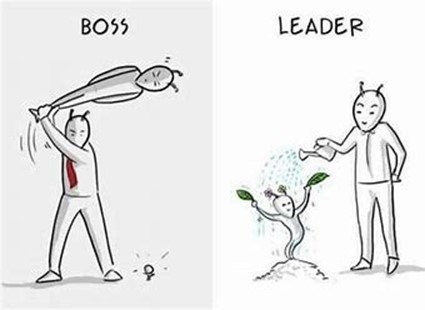

Course Manual 4: Employee Empowerment
What is Employee Empowerment?
Encouraging employees empowerment by giving them autonomy, responsibility, and decision-making authority, fostering a sense of ownership and engagement. Engaged and empowered employees feel connected to the organization’s mission, are motivated, and actively contribute to its success. Employee empowerment also encompasses the process of granting resources to make decisions and take actions related to their work. It involves entrusting employees with responsibility and allowing them to contribute their ideas, skills, and experience. Empowered employees have a sense of ownership, feel valued, and are motivated to take initiative, leading to increased job satisfaction, productivity, and organizational success.
Example of an Employee Empowerment Statement:
“At our organization, employee empowerment lies at the heart of our culture. We believe in fostering an environment where every team member feels valued, trusted, and empowered to make a difference. We provide them with the necessary resources, tools, and autonomy of their work, make decisions, and drive innovation. Through open communication channels, we actively seek and listen to their ideas, insights, and feedback. We encourage collaboration and foster a culture of continuous learning, where employees are supported in their personal and professional development journeys. By empowering our employees, we unleash their full potential, fuel their growth, and collectively contribute to the success and growth of our organization.”
Why is an Employee Empowerment Statement so Important?
1. Clarifies Expectations.
An Employee Empowerment Statement outlines your company’s commitment to empowering employees and provides clarity on what that means. It sets clear expectations for employees, making it easier for them to understand their roles and responsibilities in a culture that values empowerment.
2. Fosters Trust and Engagement.
When employees see a formal statement emphasizing their empowerment, it creates a sense of trust and confidence in your organization. It signals that their ideas, input, and contributions are valued, which can lead to increased engagement, motivation, and loyalty.
3. Encourages Autonomy and Decision-Making.
An empowerment statement promotes a culture where employees are encouraged to take ownership of their work and make decisions within their areas of responsibility. It sends a message that employees have the authority and freedom to innovate, problem-solve, and make choices that contribute to your company’s success.
4. Stimulates Creativity and Innovation.
Empowered employees are more likely to think creatively, offer new ideas, and challenge the status quo. An empowerment statement fosters an environment where individuals feel comfortable taking risks, experimenting, and proposing innovative solutions. This can lead to improved problem-solving, increased productivity, and a competitive advantage for your organization.
5. Supports Personal and Professional Growth.
Empowering employees means providing them with opportunities to learn, grow, and develop their skills. An empowerment statement signals the company’s commitment to supporting employee development, whether through training programs, mentorship, or other resources. This fosters a learning culture that promotes individual growth and can attract and retain top talent.
6. Enhances Collaboration and Teamwork.
An empowerment statement encourages collaboration and teamwork by emphasizing the value of diverse perspectives and inclusive decision-making. When employees feel empowered, they are more likely to collaborate effectively, share knowledge, and contribute to a positive team culture.
7. Improves Organizational Agility.
In a rapidly changing business environment, your organization needs to be agile and responsive. Empowered employees who feel trusted and supported are more likely to adapt quickly, embrace change, and contribute to organizational agility. An empowerment statement reinforces your company’s commitment to adaptability and positions it for success in a dynamic marketplace.
Overall, an Employee Empowerment Statement plays a crucial role in shaping the corporate culture by setting expectations, fostering trust, promoting autonomy and innovation, supporting growth, and enhancing collaboration. It creates an environment where employees feel valued, motivated, and empowered to contribute their best to the organization’s success.
 – HIGHER QUALITY IMAGE NEEDED
– HIGHER QUALITY IMAGE NEEDED

Case Study
Twenty Samples of Employee Empowerment Statements:
1. At our company, we empower our employees by fostering a culture of trust, open communication, and continuous learning. We believe that by empowering our team members, we unlock their potential to drive innovation, exceed expectations, and contribute to our collective success.
2. We are committed to empowering our employees to take ownership of their work, make informed decisions, and embrace challenges. We believe that by fostering an environment of empowerment, we create opportunities for growth, foster creativity, and achieve remarkable results together.
3. Our organization values employee empowerment as a cornerstone of our culture. We encourage our team members to think independently, challenge the status quo, and make decisions that align with our shared goals. We believe that empowered employees are the driving force behind our cusses.
4. Empowering our employees is at the heart of our organization. We provide the resources, support, and autonomy needed for individuals to unleash their full potential, contribute their unique talents, and make a meaningful impact on our customers, our colleagues, and our community.
5. At our company, we believe that every employee has the power to influence positive change. We empower our team members by fostering an inclusive and collaborative environment, encouraging them to voice their ideas, and valuing their contributions. Together, we create a culture of empowerment that propels us forward.
6. We empower our employees by fostering a growth mindset and providing opportunities for learning, development, and career advancement. By investing in our team members’ growth, we create a culture where everyone can thrive, innovate and excel.
7. Empowering our employees is not just a buzzword, it is a fundamental belief in our organization. We trust our team members to make decisions, take risks, and learn from both successes and failures. Through empowerment, we create an environment where individuals can unleash their potential and achieve extraordinary outcomes.
8. Our company’s success is built on the empowerment of our employees. We believe in cultivating a culture where diverse perspectives are valued, ideas are welcomed, and individuals are empowered to make meaningful contributions. Together, we create an environment that fosters innovation, collaboration, and continuous improvement.
9. At our organization, we empower our employees by providing them with the tools, information, and authority they need to excel in their roles. We trust their expertise, encourage independent thinking, and recognize their contributions. By empowering our employees, we unleash their creativity, drive, and passion.
10. Empowerment is the cornerstone of our organizational culture. We believe that every employee has unique talents and insights that, when harnessed, can propel us to new heights. By empowering our team members, we create an environment that encourages initiative, fosters growth, and celebrates success.
11. We are committed to empowering our employees by fostering an inclusive and collaborative culture. We provide them with the freedom to experiment, learn from failures, and celebrate successes. Empowered employees are the catalysts for innovation, and we believe in their abilities to shape our future.
12. Empowering our employees is not just a philosophy, it is a strategic imperative. We believe that by giving individuals the authority, resources, and support they need, they can surpass their own expectations and deliver exceptional results.
13. We empower our employees by promoting a culture of transparency, trust, and shared responsibility. We believe in open communication, active listening, and providing opportunities for growth. Through empowerment, we build a resilient and engaged workforce that propels our organization forward.
14. At our organization, we empower our employees by embracing diversity, fostering inclusion, and valuing their unique perspectives. We provide them with the autonomy to make decisions, take risks, and learn from experiences. Empowerment fuels our innovation, drives customer satisfaction, and enables our growth.
15. Empowering our employees is the foundation of our corporate culture. We believe that by fostering an environment where everyone feels valued, respected, and trusted, we create the conditions for success. Through empowerment, we unlock the full potential or our employees and achieve excellence.
16. Our organization is dedicated to empowering our employees by creating an atmosphere of collaboration, recognition, and continuous improvement. We encourage our team members to take initiative, embrace challenges, and contribute their best work. By empowering our employees, we cultivate a high-performing culture that drives our success.
17. We empower our employees by promoting a culture of ownership and accountability. We trust our team members to make informed decisions and take responsibility for their actions. Through empowerment, we foster an environment where everyone feels empowered to lead, innovate, and achieve exceptional results.
18. Empowering our employees is not just a goal, it is a fundamental principle that guides our organization. We provide our team members with the necessary resources, support, and autonomy to excel in their roles. By empowering our employees, we cultivate a culture of engagement, creativity, and continuous learning.
19. At our company, we believe that empowering our employees is the key to unlocking their full potential. We encourage them to stretch their limits, explore new ideas, and challenge conventional thinking. By empowering our team members, we create an environment that fosters growth, innovation, and success.
20. Empowering our employees is a shared responsibility and commitment. We strive to provide a nurturing environment that values and supports our team members’ personal and professional growth. Through empowerment, we cultivate a culture where everyone feels inspired, engaged, and excited to contribute their best.
In summary, Employee Empowerment Statements are formal declarations that emphasize trust, autonomy and growth opportunities. They foster a culture where employees feel valued, motivated, and encouraged to take ownership, innovate, and collaborate, leading to increased engagement and organizational success.


Exercise #4: Employee Empowerment Statement
1. Acknowledge the Importance of Employee Empowerment. Start the statement by acknowledging the significance of employee empowerment. Emphasize that your company recognizes the inherent potential within its workforce and believes that empowering employees leads to increased productivity, creativity, and job satisfaction.
2. Emphasize a People-Centric Approach. Demonstrate that your company places its employees at the center of its operations. Emphasize that your employees are not just valuable assets but essential partners in achieving the company’s mission and vision.
3. Set the Intention. Clearly state your company’s intention to empower your employees at all levels. This includes frontline staff, middle management, and even C-suite executives. Show a commitment to creating a culture of empowerment that permeates every aspect of your organization.
4. Define Employee Empowerment. Provide a concise definition of what employee empowerment means within the context of your company. This could include granting employees decision-making authority, encouraging innovation, providing opportunities for growth and development, and fostering a supportive work environment.
5. When creating a corporate culture statement centered around “Employee Empowerment,” it is important to involve various stakeholders in the process. Here are some key people who should participate:
a. Leadership Team. The top executives and leaders within the organization should create an Employee Empowerment Statement.
b. Human Resources (HR) Department. HR professionals have a deep understanding of the organization’s employees, policies, and practices, and can provide valuable insights and expertise.
c. Employee Representatives. Including representatives from different departments or teams can ensure a divers perspective and help in capturing the needs and aspirations of the employees. This can be achieved through employee surveys, focus groups, or forming a dedicated committee.
d. Middle Managers. Middle managers are the bridge between leadership and employees. Involving them in the process ensures that the culture statement aligns with the practical realties of day-do-day operations and helps gain their support for implementing employee empowerment initiatives.
6. Once all the above stated departments and employee representatives have drafted their Employee Empowerment Statement, then either an outside consultant or the internal HR department should compile all suggestions and draft a comprehensive version. That version could be accepted as the final document by the top leaders of the organization.
7. Align with Company Values and Goals. Ensure that the Employee Empowerment Statement aligns with your company’s core values, mission, and vision. This alignment will reinforce the organization’s commitment to empowerment as an integral part of its identity.
8. Commit to a Supportive Environment. State your company’s commitment to creating a supportive environment where employees are encouraged to voice their opinion, ideas, and concerns without fear of reprisal. This includes promoting open communication and actively seeking feedback.
9. Promote Autonomy and Trust. Highlight the company’s commitment to delegating decision-making authority to employees when appropriate. Emphasize that your company trusts its employees’ expertise and judgment, enabling them to take ownership of their work.
10. Promote Skill Development. Demonstrate your company’s commitment to employee growth by providing access to training, workshops, and resources that enhance skills and expertise. Empowerment is furthered when employees are equipped with the knowledge and tools to excel in their roles.
11. Support Work-Life Balance. Recognize the importance of work-life balance and show that your company values the well-being of its employees. Offer flexible work arrangements and benefits that cater to the diverse needs of the workforce.
12. Promote Diversity and Inclusion. Emphasize that your company values diversity and inclusion, and fosters an inclusive environment where all employees feel respected, valued, and heard. Encourage the exchange of diverse perspectives to drive innovation and creativity.
13. Provide Concrete Examples. To make the Employee Empowerment Statement more tangible, include specific examples of how your company empowers its employees in practice. This could include employee-led initiatives, opportunities for professional development, and recognition programs.
14. Commit to Continual Improvement. Express your company’s commitment to continuously improving its empowerment initiatives. Emphasize that feedback from employees is valued and will be used to refine and enhance empowerment practices.
Example of an “Employee Empowerment Statement”
“At (Company Name), we believe that our most valuable asset is our people. We are committed to empowering our employees at every level, fostering an environment where each individual’s unique talents and contributions are celebrated and appreciated. Empowerment is not just a buzzword for us; it is a fundamental aspect of our culture and identity.
We define employee empowerment as granting our team members the authority to make decisions and take ownership of their work. We trust in their expertise and judgment, and we encourage a collaborative approach to problem-solving. This collaborative spirit extends beyond departmental boundaries, as we recognize that innovation often emerges at the intersections of diverse perspectives.
We are dedicated to providing a supportive environment where open communication is valued and encouraged. We actively seek feedback from our employees, listening to their ideas and concerns with genuine interest. By promoting a culture of transparency, we ensure that all voices are heard and considered in our decision-making processes.
Our commitment to employee empowerment goes hand in hand with a dedication to skill development. We provide many opportunities for professional development and growth through training, workshops, and mentorship programs. As our employees expand their knowledge and expertise, they are better equipped to take on new challenges and lead with confidence.
Work-life balance is essential to us, and we understand that a thriving workforce requires time for rest and personal pursuits. We offer flexible work arrangements and support programs that prioritize the well-being of our employees.
In line with our core values, we embrace diversity and inclusion as key drivers of success. We celebrate the rich tapestry of backgrounds and perspectives within our workforce, knowing that diverse teams foster innovation and creativity.
We recognize that empowerment is an ongoing journey, and we are committed to continually improving our practices. Employee feedback is a valuable tool in this process, and we actively seek input to refine and enhance our empowerment initiatives.
At (Company Name), we believe that by empowering our employees, we unleash the full potential of our organization. Together, we create a workplace where every individual can thrive, achieve their best, and contribute meaningfully to our shared success. We are proud to be an empowering and inclusive company that values and invests in its greatest asset: our people.”


Course Manual 5: Open Communication
What is Open Communication?
Encouraging open and transparent communication at all levels, promoting active listening, feedback, and collaboration, and providing channels for employees to express their ideas and concerns. Open and transparent communication fosters trust, collaboration, and a sense of belonging among employees. It involves honest and timely sharing of information and promoting an environment where ideas and feedback are welcomed. When communication flows freely, employees feel informed, respected, and connected to the company’s vision and goals. Open communication often refers to a transparent and honest exchange of information, ideas, and feedback among individuals or within an organization. It encourages active listening, respect for diverse perspectives, and the willingness to share thoughts and concerns openly without fear. Open communication fosters trust, collaboration, and effective problem-solving.
Example of an “Open Communication Statement.”
“Open Communication is the cornerstone of our business, promoting transparency, trust, and collaboration among all stakeholders. We believe in creating an environment where everyone feels comfortable expressing their thoughts, ideas, and concerns freely. Through open channels of communication, including regular team meetings, feedback sessions, and digital platforms, we encourage active listening, constructive dialogue, and knowledge sharing. We value diverse perspectives and foster an inclusive culture where every voice is heard and respected. By promoting open communication, we enhance teamwork, resolve conflicts effectively, and cultivate an environment of continuous improvement, innovation, and mutual understanding, leading to better decision-making and overall organizational success.”
Why is an Open Communication Statement so Important?
An Open Communication Statement is important to a corporate culture for several reasons:
1. Transparency and Trust.
An Open Communication Statement sets the expectation that your organization values transparency and fosters an environment of trust. It signals to employees that their voices will be heard, and information will be shared openly, promoting trust and reducing uncertainty.
2. Collaboration and Teamwork.
Open communication encourages collaboration and teamwork by providing a platform for employees to share ideas, knowledge, and perspectives. It facilitates better decision-making, problem-solving, and innovation, as diverse viewpoints are considered and integrated.
3. Employee Engagement.
Open communication creates a sense of inclusion and involvement among employees. When they feel their opinions and contributions are valued and taken into account, they become more engaged and committed to your organizations’ goals and objectives.
4. Conflict Resolution.
An Open Communication Statement promotes the resolution of conflicts in a constructive manner. It encourages individuals to address issues openly and honestly, leading to more effective conflict resolutions and maintaining positive working relationships.
5. Innovation and Creativity.
By fostering open communication, your organization creates an environment where new ideas and creative solutions can thrive. Employees are more likely to share innovative thoughts and perspectives, leading to continuous improvement and a competitive edge.
6. Feedback and Continuous Improvement.
Open communication encourages regular feedback exchanges between employees and managers, fostering a culture of continuous improvement. It provides opportunities for learning, growth, and development by identifying areas for enhancement and recognizing successes.
7. Adaptability and Change Management.
In a rapidly evolving business landscape, open communication is crucial for effective change management. It enables the organization to convey the reasons behind changes, address concerns, and involve employees in the process, ensuring smoother transition and greater acceptance.
8. Employee Well-being and Satisfaction.
Open communication allows employees to express their thoughts, concerns, and needs, promoting their overall well-being and job satisfaction. It helps identify areas for improvement, creates a supportive work environment, and strengthens the employee-employer relationship.
9. Organizational Alignment.
An Open Communication Statement ensures that employees are aligned with your organization’s vision, mission, and values. It clarifies expectations, objectives, and strategic initiatives, promoting a shared sense of purpose and direction.
10. Customer Focus.
Open communication extends beyond internal interactions to external stakeholders, including customers and clients. By fostering open channels of communication with customers, your organization can better understand their needs, address concerns, and deliver exceptional customer experiences.
Overall, an Open Communication Statement plays a vital role in shaping a corporate culture that values transparency, collaboration, innovation, and employee engagement. It establishes a foundation of trust, facilitates effective communication, and drives positive outcomes for individuals, teams, and the organization as a whole.

Case Study
Twenty Samples of Open Communication Statements:
Here are twenty samples of Open Communication Statements that highlight the importance of transparency, collaboration, and effective communication within your organization.
1. “We believe in fostering a culture of open communication where all team members are encouraged to share ideas, concerns, and feedback openly and honestly.”
2. “At our company, open communication is the foundation of our success. We value transparent dialogue, active listening, and respectful conversations that foster understanding and drive positive change.”
3. “We promote open communication by providing multiple channels for employees to express their thoughts, ensuring that everyone’s voice is heard, valued, and respected.”
4. “We embrace open and transparent communication, recognizing that it is vital for building trust, fostering teamwork, and driving innovation across all levels of our organization.”
5. “Open communication is not just encouraged but expected. We believe that by sharing information openly and proactively, we empower our employees to make informed decisions and contribute to our collective goals.”
6. “We value open and direct communication that enables us to address challenges, celebrate successes, and collaborative effectively as a team.”
7. “Open communication is a cornerstone of our organization. We foster an environment where ideas flow freely, questions are welcomed, and constructive feedback is encouraged.”
8. “We encourage open and transparent communication by creating a safe and inclusive space for dialogue, where all perspectives are valued and encouraged.”
9. “At our company, we believe that open communication builds strong relationships, resolves conflicts, and promotes a culture of trust and accountability.”
10. “Open communication is the key to our continuous improvement. We actively seek feedback, share information transparently, and engage in open dialogues to drive positive change.”
11. “We foster open and honest communication by promoting a culture where feedback is constructive, ideas are welcomed, and diverse perspectives are valued.”
12. “Open communication is at the heart of our collaborative culture. We believe that by sharing knowledge, insights, and experiences openly, we collectively grow and succeed.”
13. “We prioritize open communication by ensuring that information flows freely, barriers are removed, and all team members have equal opportunities to contribute their thoughts and ideas.”
14. “Open communication is a fundamental principle of our organization. We encourage active listening, open mindedness, and empathy to foster meaningful connections and drive collaborative outcomes.”
15. “We believe in transparent and open communication that promotes trust, empowers decision-making, and fosters a culture of shared responsibility and accountability.”
16. “Open communication is ingrained in our organization’s DNA. We actively seek diverse viewpoints, encourage constructive debates, and collaborate to find the best solutions.”
17. “We embrace open and transparent communication as a catalyst for growth and innovation. We create platforms and opportunities for meaningful exchanges to drive continuous improvement.”
18. “Open communication is the bridge that connects our team members, departments, and leadership. We value open dialogue to build strong relationships and ensure everyone is aligned towards common goals.”
19. “We champion open and inclusive communication by providing platforms, tools, and resources that facilitate knowledge sharing, collaboration, and idea generating.”
20.”Open communication is the cornerstone of our culture, enabling us to build trust, foster teamwork, and drive organizational success. We actively encourage open conversations that promote transparency and mutual respect.”


Exercise # 5: Open Communication Statement
1. Set up two or three task force teams each with 3 to 5 members. Have these teams draft an Open Communication Statement to be approved and accepted by the company’s leaders
2. Emphasize the Importance of Open Communication. Start the statement by emphasizing the significance of open communication within your company. Explain how transparent and honest communication enhances collaboration, problem-solving, and overall organizational performance.
3. Align with Company Values and Culture. Ensure that the Open Communication Statement aligns seamlessly with your company’s core values and existing culture. This alignment reinforces the company’s commitment to open communication as a core aspect of its identity.
4. Define Open Communication. Provide a clear and concise definition of what open communication means in the context of your organization. This may include a free exchange of ideas, regular sharing of information, and active listening to diverse perspectives.
5. Address Different Communication Channels. Acknowledge the various communication channels utilized within your company, such as in person meetings, emails, intranet, chat platforms, and social media. Emphasize the importance of maintaining open communication through these channels.
6. Encourage Two-Way Communication. Highlight the importance of two-way communication, where employees are encouraged to express their thoughts and concerns while leaders actively seek and respond to feedback. This creates a culture of responsiveness and mutual respect.
7. Promote Feedback and Listening. Emphasize the value of feedback and listening in creating a collaborative environment. Encourage employees to share their insights, opinions, and suggestions, and assure them that their voices will be heard and taken into account.
8. Support Psychological Safety. Address the concept of psychological safety and its role in open communication. Ensure employees that they can freely voice their ideas and concerns without fear of retribution or judgment.
9. Embrace Constructive Criticism. Express your organization’s openness to constructive criticism as a means of continuous improvement. Highlight how feedback serves as a catalyst for positive change and growth.
10. Empower Employees to Speak Up. Assure employees that their contributions are valued and that they are empowered to speak up at all levels of your organization. This includes encouraging open-door policies and regular communication with management.
11. Promote Transparency in Decision-Making. Demonstrate your organization’s commitment to transparent decision-making processes. Communicate how decisions are made and the rationale behind them, whenever possible.
12. Recognize the Role of Communication in Conflict Resolution. Address the role of open communication in resolving conflict and misunderstandings. Encourage employees to engage in constructive dialogue to find solutions and promote a harmonious work environment.
13. Commit to Continual Improvement. Express your company’s commitment to continuously improving its communication practices. This includes soliciting feedback on communication effectiveness and making necessary adjustments.
14. Lead by Example. State your organization’s commitment to leadership’s active participation in open communication. Leaders should set an example by communication transparently, actively seeking feedback, and demonstrating approachability.

Example of an “Open Communication Statement”
“At (Company Name), we believe that open communications is the bedrock of a thriving and collaborative workplace. We are committed to cultivating a culture where information flows freely, ideas are welcomed, and feedback is actively sought and valued.
Open communication, to us, means that employees are encouraged and empowered to express their thoughts, opinions, and concerns without fear of reprisal. It means leaders are actively listening to diverse perspectives and engaging in constructive dialogue with their teams.
We recognize that open communication is a two-way street. We not only encourage employees to share their insights and suggestions, but we also commit to responding to their feedback and acting upon it whenever possible. We understand that this reciprocity fosters trust, mutual respect, and a sense of ownership among our employees.
Transparency is a cornerstone of our communication practices. We are dedicated to being transparent in our decision-making processes, ensuring that employees understand the rationale behind important choices that impact on our organization.
Psychological safety is paramount in our company culture. We strive to create an environment where employees feel comfortable voicing their ideas and concerns, knowing that their contributions are valued, and their well-being is a top priority.
We embrace constructive criticism as a catalyst for positive change. We recognize that feedback, even if critical, presents an opportunity for growth and improvement. By openly addressing concerns, we enhance our ability to innovate and deliver excellence.
At (Company Name), we are committed to empowering our employees to speak up and actively participate in shaping our collective future. We encourage regular dialogues between employees and their manager, promoting open-door policies that facilitate candid conversations.
We understand that effective communication plays a vital role in conflict resolution. Our commitment to open communication enables us to address misunderstandings promptly, fostering a supportive and harmonious work environment.
As part of our continuous improvement journey, we actively seek feedback on our communication practices from our employees. We are dedicated to refining and enhancing our communication processes to ensure they remain relevant and effective.
Leadership takes the lead in demonstrating open communication. Our leaders actively engage in transparent and inclusive communication with their teams, setting an example for the entire organization.
At (Company Name), we firmly believe that open communication strengthens our company’s foundation and drives us towards shared success. Together, we build a workplace where communication is a driving force, and every voice matters.”


Course Manual 6: Trust and Respect
What is Trust and Respect?
Building a culture of trust and respect among employees and between employees and management, creating an environment where everyone feels valued, supported, and treated fairly. Trust and respect are essential elements in relationships and interactions. Trust involves relying on the integrity, reliability, and credibility of others. It implies confidence in their intentions and actions. Respect, on the other hand, entails recognizing the inherent worth and dignity of individuals. It involves treating others with consideration, fairness, and honoring their autonomy. Trust and respect foster healthy connections, open communication, and mutual cooperation, contributing to harmonious and productive interactions.
Example of a “Trust and Respect Statement.”
“Trust and respect are foundational values that we uphold in our business. We believe in building strong relationships based on mutual trust, honesty, and integrity. We foster an environment where every individual is respected, valued, and treated with dignity. We encourage open and transparent communication, ensuring that information flows freely and decisions are made collectively. By cultivating trust, we empower our employees to take risks, share ideas, and collaborate, knowing that their contributions are valued and respected. We honor commitments, deliver on promises, and hold ourselves accountable to the highest ethical standards. Through trust and respect, we create a supportive and inclusive culture where everyone can thrive, fostering loyalty, teamwork, and long-term success.”
Why is Trust and Respect so Important?
Trust and respect are vital in corporate culture. They foster collaboration, open communication, innovation, employee engagement, and psychological safety. They contribute to conflict resolution, organizational reputation, ethical conduct, and overall well-being, creating a positive work environment for employees and organizational success.
Trust and respect are crucial elements of a positive corporate culture for several reasons:
1. Collaboration and Teamwork.
Trust and respect foster collaboration and teamwork. When employees trust and respect each other, they are more likely to work together effectively, share information, and support one another. This leads to improved communication, increased productivity, and better overall performance.
2. Open Communication.
Trust and respect create an environment where open communication can thrive. Employees feel comfortable expressing their thoughts, ideas, and concerns when they trust their input will be respected and valued. This leads to more honest and transparent communication, enabling better problem solving, conflict resolution, and decision-making.
3. Innovation and Creativity.
Trust and respect are essential for fostering innovation and creativity. When employees feel trusted and respected, they are more likely to take risks, share innovative ideas, and think outside the box. This leads to a culture of innovation, where diverse perspectives are encouraged and new solutions are developed
4. Employee Engagement and Satisfaction.
Trust and respect contribute to higher levels of employee engagement and satisfaction. When employees feel trusted and respected by their superiors and colleagues, they are more likely to be motivated, committed, and loyal to the organization. This leads to increased job satisfaction, lower turnover rates, and a more positive work environment.
5. Psychological Safety.
Trust and respect create a sense of psychological safety in the workplace. When employees feel psychologically safe, they are more willing to take risks, share their opinions, and contribute their best work. This promotes a culture where individuals can be their authentic selves, leading to greater well-being, collaboration, and productivity.
6. Conflict Resolution.
Trust and respect are crucial for effective conflict resolution. When trust is established, conflicts are more likely to be approached with respect and open mindedness. This enables parties to work together to find mutually beneficial solutions, rather than becoming entrenched in their positions.
7. Organizational Reputation.
Trust and respect are essential for building a positive organizational reputation. When an organization is known for treating its employees with trust and respect, it attracts top talent, fosters strong relationships with customers and partners, and enhances its brand image.
8. Ethical Conduct.
Trust and respect contribute to ethical conduct within an organization. When trust is established, employees are more likely to act ethically, knowing that their actions and decisions will be respected and valued. This promotes a culture of integrity, honesty, and ethical behavior throughout the organization.
Overall, trust and respect are foundational elements of a corporate culture that promote collaboration, open communication, innovation, employee engagement, psychological safety, conflict resolution, organizational reputation, and ethical conduct. By prioritizing trust and respect, organizations can create a positive and thriving work environment that benefits both employees and the organization as a whole.

Case Study
Twenty Samples of Trust and Respect Statements:
Here are twenty samples of Trust and Respect Statements that emphasize the importance of trust and respect in a corporate culture.
1. “At our organization, trust and respect are the foundation of our corporate culture. We value and prioritize treating each other with trust, respect, and dignity, fostering an environment where everyone can thrive and contribute their best.”
2. “We believe that trust and respect are the cornerstone of our success. We commit to cultivating a culture where individuals trust and respect one another’s expertise, opinions, and contributions, creating a collaborative and inclusive work environment.”
3. “In our organization, trust and respect are non-negotiable. We promote a culture where all employees are valued, heard, and treated with fairness and respect. This fosters a strong relationship, open communication, and a positive work environment.”
4. “We build trust and respect by valuing diverse perspectives, fostering inclusive practices, and embracing open dialogue. We are committed to creating an environment where everyone feels respected, trusted and empowered to achieve their full potential.”
5. “At our company, trust and respect are the pillars of our corporate values. We encourage a culture where all individuals are treated with trust and respect, recognizing that it leads to stronger relationships, higher productivity, and a positive work environment.”
6. “We prioritize trust and respect in our corporate culture, as they are the driving forces behind our success. We foster an environment where everyone feels valued, heard, and appreciated for their unique contributions. This promotes collaboration and growth.”
7. “Trust and respect are at the core of our organization. We embrace a culture where open communication, empathy, and fairness flourish. This creates an environment where everyone can thrive, innovate, and achieve remarkable results together.”
8. “We believe that trust and respect are earned and sustained through consistent actions and genuine interactions. We foster a culture where every employee feels valued, trusted, and respected, enabling them to bring their best selves to work each day.”
9. “Trust and respect form the bedrock of our organization. We commit to treating all individuals with integrity, fairness, and empathy, fostering a culture of trust where open communication, collaboration, and collective success thrive.”
10. “Our organization is built on trust and respect. We value open and honest communication, active listening, and recognizing the unique talents and contributions of each individual. By fostering trust and respect, we create an environment where everyone can flourish.”
11. “We believe that trust and respect are the currency of effective relationships. We commit to fostering a culture where trust is built through open communication, shared accountability, and respect for diverse perspectives, enabling us to achieve greatness together.”
12. “Trust and respect are the guiding principles of our organization. We strive to create an environment where everyone feels safe to take risks, share ideas, and collaborate, knowing that their contributions will be respected and valued.”
13. “We cultivate trust and respect by creating a culture where everyone is treated with dignity and fairness. We encourage open and transparent communication, constructive feedback, and a spirit of collaboration to foster a strong and cohesive team.”
14. “At our organization, trust and respect are the cornerstones of our teamwork. We create a culture where individuals trust in each other’s abilities, respect diverse perspectives, and work collaboratively towards shared goals, promoting a sense of unity and mutual support.”
15. “We believe that trust and respect are essential for unleashing the full potential of our employees. We commit to fostering an environment where everyone feels valued, respected, and empowered to make a difference, creating a thriving and inclusive workplace.”
16. “Trust and respect are ingrained in our organizational DNA. We actively promote a culture where trust is built through transparent communication, shared goals, and mutual support, fostering an environment where all individuals can thrive and contribute to our collective success.”
17. “We prioritize trust and respect in our organization as they underpin our relationships and drive our collaboration. We are committed to creating a culture where individuals feel safe, valued, and respected, enabling us to achieve our goals together.”
18. “We recognize that trust and respect are earned through consistent actions and behaviors. We foster a culture where leaders lead by example, employees trust in the fairness of our practices, and respect is the foundation of our interactions.”
19. “Trust and respect are the threads that weave our organizational fabric. We create a culture where individuals trust one another’s intentions, respect different perspectives, and collaborate to achieve share objectives, promoting a harmonious and fulfilling work environment.”
20. “At our company, trust and respect are not just buzzwords, they are integral to how we operate. We strive to create an environment where everyone feels respected, valued, and trusted, enabling us to work together harmoniously and achieve remarkable outcomes.”
Trust and respect are fundamental to a positive corporate culture. They create an environment where individuals feel valued, heard, and empowered to contribute their best. Organizations that prioritize trust and respect foster collaboration, open communication, innovation, and employee engagement. They promote inclusivity, strong relationships, and a positive atmosphere, leading to increased productivity and overall success.”
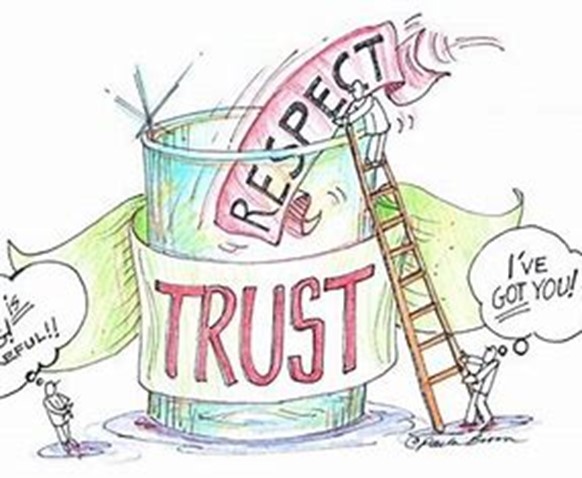

Exercise # 6: Trust and Respect Statement
1. Create a Task Force Team. Establish 2 or 3 groups of people each containing between three and five participants. These task force teams will be charged to craft a Trust and Respect Statement. Each of these task force teams will exchange their drafts with the other team’s and create a single draft that will be accepted by management.
2. Define the Importance of Trust and Respect. Begin the statement by defining the significance of trust and respect within the company’s culture. Explain how these values are foundational to building strong relationships, enhancing collaboration, and achieving collective success.
3. Align with your Company Values and Mission. Ensure that the Trust and Respect Statement aligns with your company’s core values and mission. Emphasize that trust and respect are integral to the organization’s identity and purpose.
4. Set the Intention. Clearly state your company’s intention to cultivate a culture of trust and respect at all levels of the organization. Express the commitment to creating an inclusive and supportive workplace for everyone.
5. Address All Stakeholders. Emphasize that trust and respect extend to all stakeholders, including employees, customers, partners, suppliers, and the community. The statement should encompass your organization’s interactions with external parties as well.
6. Define Trust and Respect. Provide a concise definition of what trust and respect mean in the context of your company. This may include valuing diverse perspectives, active listening, promoting open communication, and acting with integrity.
7. Promote Psychological Safety. Highlight the importance of psychological safety in fostering trust and respect. Assure your employees that they can express their ideas and concerns without fear of judgment or reprisal.
8. Encourage Empathy and Understanding. Express your company’s commitment to empathy and understanding as essential components of a respectful culture. Encourage your employees to consider and embrace diverse viewpoints with empathy and open-mindedness.
9. Prioritize Transparent Communication. Emphasize the value of transparent communication in building trust. Leaders should be open and honest in their interactions with employees and other stakeholders, providing clarity and context for decisions.
10. Recognize and Celebrate Contributions. Acknowledge the contributions of your employees and other stakeholders, and celebrate their successes and achievements. Demonstrating appreciation fosters a culture of respect and gratitude.
11. Commit to Inclusivity and Diversity. Express your organization’s dedication to promoting inclusivity and diversity. Ensure that everyone feels respected and valued, regardless of their background, gender, race, ethnicity, or any other characteristic.
12. Hold Each Other Accountable. State that holding each other accountable for upholding trust and respect is essential for the culture’s success. Encourage your employees to provide constructive feedback when trust is compromised and to act with integrity in all interactions.
13. Provide Training and Resources. Demonstrate your company’s commitment to equipping employees with the knowledge and skills to promote trust and respect. Offer training programs and resources that foster understanding, empathy, and effective communication.
14. Lead by Example. Highlight the importance of leadership’s role in modeling trust and respect. Leaders should embody these values in their actions and decisions, setting the standard for the entire organization.
Example of a “Trust and Respect Statement”
“At (Company Name), we believe that trust and respect are the cornerstones of our culture. We value the diverse perspectives, skills, and contributions of every individual, fostering an environment where everyone feels valued and empowered.
Trust is the foundation of our relationships with our employees, customers, partners, and community. We earn trust by acting with integrity, being transparent in our communication, and following through on our commitments.
Respect is a core value that guides how we treat one another. We promote inclusivity and diversity, recognizing that our differences makes us stronger and more innovative. We listen actively, seeking to understand and empathize with one another’s experiences and viewpoints.
Psychological safety is paramount in our culture. We encourage open communication and assure our employees that voicing their ideas and concerns is not only welcomed but also celebrated. By fostering an atmosphere of trust and respect, we encourage creativity, collaboration, and continuous improvement.
We prioritize transparent communication, ensuring that employees have access to the information they need to excel in their roles and understand the reasons behind important decisions. Leaders lead by example, engaging in honest and open dialogue with their teams.
We recognize and celebrate the contributions of our employees and stakeholders. We understand that each individual’s success is our collective success, and we take pride in acknowledging the hard work and dedication of our team members.
Inclusivity and diversity are integral to our identity. We strive to create a workplace where all employees feel respected, included, and valued for their unique backgrounds and perspectives.
We hold each other accountable for upholding trust and respect. We actively seek feedback and act with integrity in all our interactions. When trust is compromised, we address it proactively and work together to rebuild it.
As part of our commitment to trust and respect, we provide training and resources that promote understanding, empathy, and effective communication. We believe that continuous learning is essential for personal and organizational growth.
At (Company Name), we understand that trust and respect are not just words on paper; they are living values that define our culture. Together, we create a workplace where trust and respect flourish, enabling us to achieve our goals, support one another, and make a positive impact on the world around us.”
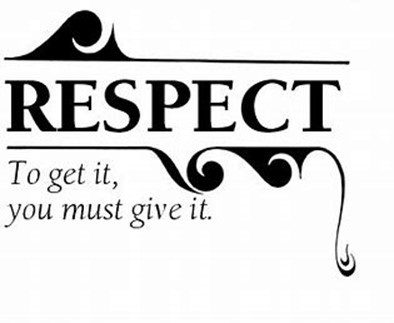

Course Manual 7: Continuous Learning and Development
What is Continuous Learning?
Promoting a learning culture that emphasizes ongoing employees development, providing opportunities for skill enhancement, training, and career growth. Encouraging continuous learning and providing opportunities for professional growth helps employees reach their full potential. An environment of continuous learning keeps employees engaged and helps your organization stay competitive. Continuous learning and development refers to the process of acquiring new knowledge, skills, and competencies throughout one’s personal and professional journey. It involves a proactive approach to learning, seeking growth, opportunities, and adapting to evolving circumstances. Continuous learning enhances personal and professional development, fosters innovation, and supports career advancement.
Example of a “Continuous Learning Statement.”
“Continuous learning and development form an integral part of our business philosophy. We embrace a culture of growth, where employees are encouraged to expand their knowledge, enhance their skills, and reach their full potential. We provide a range of learning opportunities, including training programs, workshops, and mentoring, which empower individuals to excel in their roles and pursue their career aspirations. We foster a climate of curiosity and innovation, where learning is celebrated and mistakes are seen as valuable lessons. By investing in the development of our employees, we not only enhance their individual capabilities but also drive organizational agility, adaptability, and long-term success. We recognize that continuous learning is essential in an ever-evolving business landscape, and we are committed to staying at the forefront of knowledge and expertise to meet the changing needs of our industry and customers.”
Why is Continuous Learning and Development so Important?
Continuous learning is crucial in a corporate culture as it enables organizations to adapt, innovate, and remain competitive. It enhances employees engagement, productivity, and retention while fostering a culture of knowledge sharing, collaboration, and agility.
Continuous learning is important in a corporate culture for several reasons.
1. Adaption to Change.
In a rapidly evolving business landscape, continuous learning enables your organization to adapt and thrive. It equips your employees with the knowledge and skills needed to navigate new technologies, market trends, and industry developments, ensuring your organization remains competitive.
2. Innovation and Creativity.
Continuous learning fosters a culture of innovation and creativity. When your employees are encouraged to learn and explore new ideas, they are more likely to generate innovate solutions, improve processes, and drive organizational growth.
3. Employee Engagement and Retention.
Providing opportunities for continuous learning demonstrates an investment in your employees’ professional development and growth. This enhances employee engagement, satisfaction, and retention as individuals feel valued and supported in their career progression.
4. Enhance Performance and Productivity.
Continuous learning enhances employee competence, leading to improved performance and productivity. As your employees acquire new knowledge and skills, they can apply them effectively in their roles, leading to higher quality work and better outcomes for your organization.
5. Future-Proofing the Workforce.
Learning is essential for future-proofing the workforce. By encouraging continuous learning, your organizations ensures that employees are equipped with the skills needed to meet evolving job requirements, address emerging challenges, and seize new opportunities.
6. Knowledge Sharing and Collaboration.
A culture of continuous learning promotes knowledge sharing and collaboration. Employees are encouraged to share their experience, expertise, and insights, creating a collective intelligence that benefits the entire company.
7. Leadership Development.
Continuous learning is crucial for leadership development. It enables aspiring leaders to acquire new competencies, refine their skills, and stay current with industry trends. It also cultivates a leadership pipeline, ensuring a steady supply of capable leaders for future organizational needs.
8. Organizational Agility.
Continuous learning enhances organizational agility by enabling employees to quickly acquire the knowledge and skills required for new projects, initiatives, or roles. It supports a flexible workforce that can adapt to changing circumstances and seize emerging opportunities.
9. Learning Culture.
By prioritizing continuous learning, your organization fosters a learning culture that values curiosity, exploration, and growth. This creates an environment where your employees are motivated to pursue knowledge, share insights, and engage in ongoing development, contributing to a vibrant and dynamic workplace.
Overall, continuous learning is essential for your organization to remain competitive, foster innovation, engage employees, enhance performance, and adapt to a rapidly changing business landscape. By promoting a culture of continuous learning, your organization invests in your employee’s development, drive organizational success, and cultivate a thriving and agile workforce.

Case Study
Twenty Samples of Continuous Learning Statements:
Here are twenty samples of Continuous Learning Statements that highlight the importance of ongoing learning and development within an organization:
1. “We are committed to fostering a culture of continuous learning, where your employees are encouraged to seek new knowledge, develop new skills, and embrace growth opportunities to thrive in an ever-changing business landscape.”
2. “At our organization, we believe in the power of continuous learning. We provide resources, training, and support to empower our employees to expand their knowledge, enhance their skills, and reach their full potential.”
3. “We prioritize continuous learning as a strategic imperative. We invest in professional development programs, mentorship opportunities, and knowledge-sharing platforms to ensure our employees stay ahead in their fields and contribute to our collective success.”
4. “Continuous leaning is ingrained in our organization’s DNA. We promote a growth mindset, encourage curiosity, and provide a learning ecosystem that empowers our employees to continuously acquire new skills and knowledge.”
5. “We foster a culture of lifelong learning. We embrace new technologies, industry trends, and best practices. We encourage our employees to actively pursue learning opportunities that enhance their expertise and contribute to our innovation-driven culture.”
6. “Continuous learning is essential for personal and professional growth. We support our employees’ development by offering a range of learning resources, workshops, and mentorship programs that enable them to continually expand their skills and capabilities.”
7. “We are dedicated to creating a learning organization. We encourage our employees to engage in ongoing self-improvement, take risks, learn from failures, and share knowledge, fostering an environment where learning is celebrated and valued.”
8. “Innovation thrives in our culture of continuous learning. We provide our employees with the tools, resources, and time needed for exploration, experimentation, and acquiring new knowledge, driving our organization’s ability to adapt and innovate.”
9. “We believe that continuous learning is the foundation of excellence. We encourage our employees to challenge themselves, seek feedback, and engage in ongoing development to deliver the highest quality work and achieve their full potential.”
10.”We are committed to empowering our employees through continuous learning. We invest in their growth by providing opportunities for upskilling, cross-training, and access to industry-leading resources, ensuring they are equipped for future challenges and opportunities.”
11. ”Continuous learning is a shared responsibility. We encourage our employees to take ownership of their development, set learning goals, and actively seek out new knowledge and skills to drive their professional advancement and contribute to our organizational success.”
12. “We foster a learning culture where curiosity is encouraged, mistakes are seen as learning opportunities, and collaboration is valued. We promote a growth mindset that embraces continuous learning as a catalyst for individual and organizational growth.”
13. “We recognize that learning is a journey, not a destination. We provide ongoing learning and development opportunities that are tailored to individual needs and career aspirations, ensuring our employees can adapt and thrive in an ever-evolving world.”
14. “Continuous learning is at the heart of our organization’s strategy. We encourage our employees to stay current with industry trends, develop new skills, and embrace emerging technologies, enabling us to innovate and deliver exceptional value to our customers.”
15. “We believe that learning is a lifelong pursuit. We foster an environment where employees are encouraged to challenge assumptions, explore new ideas, and continuously expand their knowledge base, cultivating a culture of intellectual curiosity and personal growth.”
16. “Continuous learning is not limited to formal training programs; it encompasses informal learning, peer-to-peer knowledge sharing, and experimental learning opportunities. We create an environment where learning happens organically, fostering a culture of continuous improvement.”
17. “We view continuous learning as a competitive advantage. We invest in learning platforms, mentorship programs, and knowledge-sharing initiatives that enable our employees to stay ahead of industry trends, drive innovation, and deliver exception value to our customers.”
18.”We embrace a culture of continuous learning to adapt and thrive in a rapidly changing world. We encourage our employees to explore new perspectives, experiment with new approaches, and continually enhance their skills to meet evolving challenges and opportunities.”
19.”We are committed to a culture of continuous learning that promotes personal growth and professional excellence. We encourage our employees to embrace challenges, seek feedback, and continuously develop their skills to stay at the forefront of their fields.”
20. “Continuous learning is a core value within our organization. We foster an environment where curiosity, collaboration, and knowledge sharing are celebrated. We provide our employees with the resources and support they need to engage in lifelong learning and achieve their career aspirations.”
Continuous learning is essential in your corporate culture as it promotes growth, innovation, and adaptability. It empowers employees, fosters a learning mindset, and drives organizational excellence. By providing learning opportunities and supporting ongoing development, your organization creates a culture that thrives.

Exercise # 7: Continuous Learning and Development Statement
1. Create a Task Force Team. Establish 2 or 3 groups of people each containing between three and five participants. These task force teams will be charged to craft a Continuous Learning and Development Statement. Each of these task force teams will exchange their drafts with the other team’s and create a single draft that will be accepted by management.
2. Emphasize the Value of Learning and Development. Start the statement by emphasizing the importance of continuous learning and development in your company’s culture. Explain how investing in employee’s growth benefits both the individual and your organization.
3. Align with your Company Values and Mission. Ensure that your Continuous Learning and Development Statement aligns with the company’s core values and mission. Emphasize that learning is an integral part of the organization’s identity and growth strategy.
4. Set the Intention. Clearly state the company’s intention to prioritize and promote continuous learning and development for all employees. Express the commitment to creating a culture that supports and celebrates ongoing education.
5. Address All Employees. The statement should encompass all employees, regardless of their role or level within your organization. Emphasize that learning opportunities are available to everyone.
6. Define Continuous Learning and Development. Provide a concise definition of what constitutes learning and development mean in the context of your organization. This may include formal training, workshops, mentorship programs, and opportunities for self-directed learning.
7. Offer Various Learning Opportunities. Highlight the diverse range of learning opportunities available within your company. This includes internal training, external courses, conferences, webinars, and access to educational resources.
8. Encourage Skill Development. Emphasize the importance of skill development and its role in enhancing employees’ capabilities and performance. Show how your company supports your employees in acquiring new skills and competencies.
9. Promote a Growth Mindset. Express your company’s commitment to fostering a growth mindset among employees. Encourage individuals to embrace challenges, learn from failures, and view feedback as an opportunity for improvement.
10. Support Career Advancement. Demonstrate your company’s dedication to supporting employees’ career growth and advancement. Highlight opportunities for internal promotions and the availability of career development programs.
11. Showcase Employee Success Stories. Include examples of employees who have benefited from continuous learning and development opportunities. Share success stories to inspire and motivate others to embrace learning.
12. Commit to Inclusivity and Accessibility. Ensure that learning opportunities are accessible to all employees, regardless of their background or circumstances. This includes providing accommodation and considering different learning styles.
13. Encourage Learning as a Team Effort. Promote a culture of knowledge sharing and collaboration. Encourage employees to learn from one another, share best practices, and contribute to each other’s growth.
14. Provide Support from Leadership. Highlight leadership roles in supporting and encouraging continuous learning and development. Leaders should lead by example by participating in learning initiatives and prioritizing their own growth.
15. Monitor and Measure Progress. Express your company’s commitment to monitoring and measuring the impact of learning and development initiatives. Regular assessment helps tailor programs to your employees’ needs and the organization’s goals.
16. Celebrate Learning Achievements. Celebrate employees learning achievements and recognize those who have made significant progress in their professional development. Publicly acknowledge their efforts and contributions.
Example of a “Continuous Learning and Development Statement”
“At (Company Name), we believe that continuous learning and development are at the heart of a thriving and innovative workplace. We are committed to providing our employees with abundant opportunities for growth, empowering them to excel in their roles and beyond.
Continuous learning is not just a buzzword for us, it is an integral part of our company’s identity and culture. We embrace learning as a lifelong journey, and we recognize that investing in our employees’ growth benefits both individuals and the organizations as a whole.
We offer a diverse range of learning opportunities, from formal training programs to self-directed learning resources. Our employees have access to internal workshops, external courses, conferences, webinars, and more, all tailored to enhance their knowledge and skills.
Skill development is a priority for us. We believe that supporting our employees in acquiring new competencies fosters a more agile and adaptable workforce. As our industry evolves, we want our employees to be equipped to thrive in a rapidly changing environment.
At (Company Name), we promote a growth mindset. We encourage our employees to embrace challenges, view failures as opportunities to learn, and seek feedback as a path to improvement. We believe that this mindset enables individuals and teams to reach their full potential.
We are committed to supporting our employees’ career advancement. Internal promotions and career development programs are essential components of our approach. We want our employees to see their time with us as an opportunity for meaningful growth and progression.
Inclusivity and accessibility are fundamental to our learning and development initiatives. We ensure that all employees have equal access to learning opportunities, and we provide accommodation to meet diverse needs.
We celebrate employee success stories, sharing inspiring examples of how learning and development have contributed to individual achievements and career growth. These stories serve as motivation for others to embrace learning.
At (Company Name), we view learning as a team effort. We foster a culture of knowledge sharing and collaboration, where employees learn from one another and contribute to each other’s growth.
Our leadership plays a pivotal role in promoting continuous earning. Our leaders lead by example, actively participating in learning initiatives and prioritizing their own growth. They understand that our organization’s success is rooted in the growth of our people.
We continuously monitor and measure the impact of our learning and development initiatives. This allows us to adapt and improve our programs to meet our employees’ evolving needs and support our organizational goals.
We celebrate our employees’ learning achievements, recognizing and appreciating their dedication to their professional development. Their growth is a testament to our commitment to fostering a culture of continuous learning and development.
At (Company Name), we are proud to create an environment where continuous learning and development thrive. Together, we embark on a journey of growth, empowering our employees to reach new heights of excellence and drive our collective success.”


Course Manual 8: Work-Life Balance
What is Work-Life Balance?
Recognizing the importance of work-life balance and supporting employees’ well-being by offering flexible work arrangements, wellness programs, and initiatives that promote a healthy work-life integration. Promoting work-life balance supports employees well-being and enhances productivity and satisfaction. A culture that supports work-life balance recognizes the importance of personal time and boundaries. This helps prevent burnout and creates a positive and sustainable work environment. Work-life balance refers to maintaining a healthy equilibrium between one’s professional responsibilities and personal life. It involves effectively managing time and energy to fulfill work-commitments while also prioritizing personal well-being, family, relationships, and leisure activities, thereby reducing stress and promoting overall satisfaction.
Example of a Work-Life Balance Statement:
“Work-life balance is a key priority in our business. We understand the importance of maintaining a healthy integration between work and personal life for the well-being and productivity of our employees. We promote flexible work arrangements that allow individuals to manage their work schedules effectively while meeting their personal commitments. Our policies encourage employees to prioritize self-care, leisure, and family time, recognizing that a balanced lifestyle enhances overall job satisfaction and performance. We provide resources and initiatives that support physical and mental wellness, creating an environment where employees can thrive both personally and professionally. By fostering work-life balance, we aim to create a harmonious and sustainable work environment that promotes employee satisfaction, engagement, and long-term retention.”
Why is a Work-Life Balance Statement so Important?
Work-life balance refers to the equilibrium between an individual’s work commitments and personal life responsibilities. It involves allocating time and energy to work, family, leisure, and self-care, ensuring that one’s personal and professional lives are harmoniously integrated to achieve overall well-being and satisfaction.
A Work-Life Balance Statement is important in your corporate culture for several reasons:
1. Employee Well-Being.
A Work-Life Balance Statement shows that your organization values the well-being of your employees. It acknowledges the importance of maintaining a healthy balance between work and personal life, promoting physical, mental, and emotional well-being.
2. Retention and Engagement.
A Work-Life Balance Statement helps attract and retain top talent. In today’s competitive job market, employees seek organizations that prioritize work-life balance. When employees feel supported in managing their personal and professional lives, they are more likely to be engaged, satisfied, and committed to the organization.
3. Productivity and Performance.
A healthy work-life balance leads to increased productivity and performance. When employees have time to recharge and pursue personal interests outside of work, they return to work energized and focused. This results in high job satisfaction, creativity, and overall effectiveness in their roles.
4. Stress Reduction.
A Work-Life Balance Statement recognizes the detrimental effects of chronic stress and burnout. By promoting work-life balance, your organization helps reduce stress levels among your employees, leading to improved mental health, higher job satisfaction, and reduced absenteeism.
5. Employee Morale.
A Work-Life Balance Statement boosts employee morale by demonstrating that your organization cares about their overall well-being. When employees feel supported in achieving work-life balance, they are more likely to have a positive attitude, feel valued, and develop a stronger sense of loyalty towards your organization.
6. Workforce Diversity and Inclusion.
A Work-Life Balance Statement promotes workforce diversity and inclusion. It acknowledges and accommodates the diverse needs and responsibilities of employees, enabling individuals with different backgrounds to thrive in the workplace.
7. Sustainable Performance.
A Work-Life Balance Statement recognizes that sustainable performance requires a balanced approach. It emphasizes the importance of avoiding overwork and burnout, enabling employees to maintain a consistent level of performance over the long term.
8. Positive Organizational Change.
Demonstrating a commitment to work-life balance through a statement enhances your organization’s reputation. It portrays your organization as one that values its employees, supports their well-being, and prioritizes a healthy work-life integration, attracting potential employees, customers, and partners.
9. Work-Life Integration.
A Work-Life Balance Statement encourages a shift towards work-life integration, where work and personal life are seen as complementary rather than competing. It promotes flexibility, autonomy, and trust, allowing employees to manage their time effectively and achieve a harmonious integration of work and personal responsibilities.
10. Organizational Culture.
A Work-Life Balance Statement helps shape your organizational culture. It sets the tone and expectations around work-life balance, promoting a culture of respect, understanding, and support for employees’ personal lives, which in turn contributes to a positive and inclusive work environment.
Overall, a Work-Life Balance Statement signals your organization’s commitment to the well-being and satisfaction of your employees. It helps create a supportive and healthy work environment, leading to improved employee engagement, productivity, and overall organizational success.
Work-Life Balance is Important

Case Study: Twenty Samples of Work-Life Balance Statements
A Work-Life Balance Statement demonstrates an organization’s commitment to supporting employees’ well-being, satisfaction, and harmony between work and personal life.
Here are twenty samples of Work-Life Balance Statements that highlight the importance of maintaining a healthy balance between work and personal life in a corporate culture.
1. “We value work-life balance and strive to create an environment where our employees can thrive both personally and professionally.”
2. “At our organization, we recognize the importance of work-life balance in promoting the well-being and happiness of our employees.”
3. “We are committed to fostering a culture that supports work-life balance, allowing our employees to lead fulfilling lives inside and outside of work.”
4. “We believe that a healthy work-life balance is essential for the overall well-being and long-term success of our employees and organization.”
5. “We promote work-life balance by encouraging our employees to prioritize selfcare, family, and personal interests alongside their work responsibilities.”
6. “Work-life balance is a core value of our organization. We aim to provide our employees with the flexibility and support they need to achieve a harmonious integration of work and personal life.”
7. “We recognize that our employees have responsibilities and commitments beyond their work. We are committed to supporting their work-life balance and ensuring their overall satisfaction and success.”
8. “We are dedicated to creating a work environment that respects and values work-life balance, enabling our employees to lead fulfilling and meaningful lives.”
9. “We understand that a healthy work-life balance contributes to the overall happiness and productivity of our employees. We strive to foster a culture that supports and promotes this balance.”
10. “We encourage our employees to set boundaries, manage their time effectively, and prioritize self-care to maintain a healthy work-life balance.”
11. “We believe that a positive work-life balance enhances employee well-being and satisfaction, leading to increased productivity and overall organizational success.”
12. “We are committed to providing flexible work arrangements, supportive policies and resources that promote work-life balance for our employees.”
13. “We value the unique needs and aspirations of our employees outside of work. We support their work-life balance by offering programs and initiatives that prioritize their well-being.”
14. “Work-life balance is not just an aspiration; it is a fundamental aspect of our organizational culture. We strive to create an environment where our employees can thrive in all aspects of their lives.”
15. “We recognize that work is an important part of life, but it should not overshadow personal well-being. We are dedicated to fostering work-life balance and enabling our employees to lead fulfilling lives.”
16. “We are committed to providing resources, tools, and support that empower our employees to achieve work-life balance and maintain their physical, mental, and emotional well-being.”
17. “We understand that work and personal life are interconnected. We foster a culture that encourages open communication, flexibility, and understanding to promote a healthy work-life balance for all employees.”
18. “We promote work-life balance by setting realistic expectations, encouraging time off, and providing a supportive work-environment that enables our employees to recharge and enjoy their personal lives.”
19. “We believe that work-life balance is essential for the long-term success and happiness of our employees. We prioritize initiatives that support their well-being and help them achieve a fulfilling balance.”
20. “We are committed to continuously evaluating and improving our practices to ensure our employees have the necessary resources and support for a healthy work-life balance, enabling them to thrive both personally and professionally.”
A Work-Life Balance Statement emphasizes an organization’s commitment to support employees’ well-being and integration of work- and personal life. It promotes flexibility, self-care, and harmony, leading to increased employee satisfaction, productivity, and overall organizational success.


Exercise # 8: Work-Life Balance Statement
1. Create a Task Force Team. Establish 2 or 3 groups of people each containing between three and five participants. These task force teams will be charged to craft a Work-Life Balance Statement. Each of these task force teams will exchange their drafts with the other team’s and create a single draft that will be accepted by management.
2. Emphasize the Value of Work-Life Balance. Start the statement by emphasizing the importance of work-life balance in your company’s culture. Explain how a healthy balance between work and personal life contributes to employees’ overall well-being and happiness.
3. Align with Company Values and Mission. Ensure that the Work-Life Balance Statement aligns with your company’s core values and mission. Emphasize that promoting work-life balance is integral to your organization’s commitment to employee success.
4. Set the Intention. Clearly state your company’s intention to prioritize and promote work-life balance for all employees. Express the commitment to creating a culture that supports and respects personal time and boundaries.
5. Address All Employees. The statement should apply to all employees, from frontline staff to senior executives. Emphasize that work-life balance is a universal right within your organization.
6. Define Work-Life Balance. Provide a concise definition of what work-life balance means in the context of your organization. This may include promoting flexible work arrangements, providing time off, and encouraging employees to disconnect during non-working hours.
7. Encourage Flexibility. Highlight your company’s commitment to providing flexible work arrangements whenever possible. This may include remote work options, flexible working hours, and the ability to adjust schedules to accommodate the personal needs of your employees.
8. Promote Time Management. Express the importance of effective time management in achieving work-life balance. Encourage your employees to prioritize tasks, set realistic goals, and communicate openly with their teams about their workload.
9. Provide Resources for Wellness. Demonstrate your company’s dedication to supporting employees’ well-being. Offer resources such as wellness programs, mental health support, and access to fitness facilities or activities.
10. Encourage Vacation and Time Off. Promote the importance of taking regular vacations and utilizing allocated time off. Encourage your employees to fully disconnect from work during their time away to recharge and rejuvenate.
11. Recognize and Reward Balance. Acknowledge and celebrate your employees who exemplify work-life balance and prioritize their personal well-being. Consider incorporating work-life balance achievements into performance evaluations and recognition programs.
12. Lead by Example. Highlight leadership’s role in promoting work-life balance. Leaders. should lead by example, demonstrating their commitment to maintaining a healthy balance and supporting their teams in doing the same.
13. Communicate Boundaries. Encourage employees to communicate their boundaries and personal needs to their managers and colleagues. Foster a culture where setting boundaries is respected and supported.
14. Offer Training and Workshops. Provide training and workshops on work-life balance, stress management, and time management. These resources you’re your employees develop skills to achieve a harmonious work-life integration.
15. Monitor Employee Well-being Express your company’s commitment to regularly monitoring employee well-being and job satisfaction. Employee feedback and surveys can help identify areas for improvement.
16. Continuously Improve. State your organization’s commitment to continuously improving work-life balance initiatives based on employee feedback and evolving needs. Flexibility and responsiveness to changing circumstances are vital in creating a supportive culture.
Example of a “Work-Life Balance Statement”
“At (Company Name), we recognize that work-life balance is essential to the well-being and success of our employees. We are committed to promoting a culture where our team members can thrive both professionally and personally.
Work-life balance is more than just a catchphrase for us; it is a foundational value that guides how we operate. We believe that when our employees feel supported in managing their work and personal commitments, they can perform at their best.
Our commitment to work-life balance aligns seamlessly with our core values and mission. We value our employees as individuals, and we understand that a healthy balance between work and personal life contributes to their overall happiness and job satisfaction.
We set the intention to create a work environment that fosters flexibility and open communication. We offer various flexible work arrangements to accommodate personal needs and lifestyles. Whether it is remote work options, flexible hours, or compressed workweeks, we strive to find solutions that work for our employees.
Effective time management is encouraged, and we provide resources to support our employees in optimizing their productivity. We understand that setting realistic goals and managing priorities are essential for achieving a healthy work-life balance.
At (Company Name), we value the well-being of our employees. We offer wellness programs, mental health support, and access to fitness facilities or activities to help our team members thrive both physically and mentally.
We actively encourage our employees to take regular vacations and utilize their allocated time off. We recognize that time away from work is crucial for recharging and maintaining a healthy work-life balance.
Our commitment to work-life balance extends to recognizing and rewarding employees who exemplify these values. We celebrate those who prioritize their personal well-being and encourage others to do the same.
Leadership plays a critical role in promoting work-life balance. Our leaders lead by example, demonstrating their commitment to maintaining a healthy balance and supporting their teams in achieving the same.
Communication of boundaries is essential to us. We encourage employees to communicate their personal needs and set boundaries with their managers and colleagues. We foster a culture where setting boundaries is respected and supported.
To equip our employees with the tools to achieve work-life balance, we offer training and workshops on topics such as time management, stress reduction, and work-life integration.
At (Company Name), we regularly monitor employee well-being and job satisfaction to identify areas for improvement. We believe in being responsive to our employees’ evolving needs, continuously striving to create a work environment that supports their well-being and personal growth.
At (Company Name), work-life balance is a shared commitment. We understand that a balanced and fulfilled workforce drives our collective success. Together, we foster a culture where our employees thrive, both personally and professionally.”

Course Manual 9: Diversity and Inclusion
What is Diversity and Inclusion?
Fostering a diverse and inclusive workplace where differences are celebrated and valued, promoting equal opportunities, and creating a sense of belonging for all employees. Embracing diversity and fostering an inclusive environment where all employees feel valued and respected. It values and respects individual differences, promotes a sense of belonging, and ensures equal opportunities for all employees. An inclusive culture encourages diverse perspectives, fosters innovation, and enhances overall organizational performance. Diversity and inclusion encompass creating an environment where people from different backgrounds, perspectives, and identities are valued, respected, and given equal opportunities. It involves embracing and celebrating differences, fostering a culture of belonging, and actively promoting equity and fairness in all aspects of society or organizations.
Example of a “Diversity and Inclusion Statement.”
“Diversity and Inclusion are fundamental principles in our business. We embrace and celebrate the uniqueness of every individual, fostering a culture that values diversity in all its forms – including race, ethnicity, gender, age, sexual orientation, abilities, and perspectives. We believe that diverse teams drive innovation, creativity, and better decision-making. We promote equal opportunities, ensuring that all employees have a voice and are treated with fairness and respect. We actively seek out diverse talents, creating a workforce that reflects the communities we serve. We provide training and development programs that promote cultural understanding and inclusive behaviors. By embracing diversity and inclusion, we cultivate a vibrant and dynamic culture and work environment where everyone feels welcomed, valued, and empowered to contribute their best, leading to increased employee engagement, customer satisfaction, and business success.”
Why is a Diversity and Inclusion Statement so Important?
A diversity and inclusive statement is crucial as it demonstrates an organization’s commitment to fairness, equality, and respect. It signals to employees, customers, and stakeholders that the organization values and welcomes individuals from all backgrounds, leading to increased innovation, better decision-making, and a stronger sense of belonging, ultimately driving overall organizational success.
A Diversity and Inclusive Statement is important in your corporate culture for several reasons:
1. Promoting Equality and Fairness.
A Diversity and Inclusive Statement signals a commitment to creating an equitable and fair workplace, where all individuals are treated with respect, regardless of their background, identity, or characteristics.
2. Fostering a Culture of Belonging.
A Diversity and Inclusive Statement helps foster a culture where every employee feels valued, included, and that they belong. It promotes a sense of psychological safety, where individuals can be their authentic selves without fear of discrimination or bias.
3. Encouraging Innovation and Creativity.
Diversity and inclusion are essential for driving innovation and creativity. By embracing diverse perspectives, experiences, and ideas, organizations can tap into a rich pool of insights, leading to more innovative solutions, better problem-solving, and enhanced competitiveness.
4. Enhancing Employee Engagement.
A Diversity and Inclusive Statement contributes to higher levels of employee engagement. When your employees feel that their unique contributions are recognized and valued, they are more likely to be motivated, committed, and passionate about their work and your organization’s goals.
5. Attracting and Retaining Top Talent.
A strong Diversity and Inclusive Statement helps you to attract and retain diverse talent. Inclusionary practices and a commitment to diversity send a clear message that your organization values diversity and offers opportunities for growth, making it an attractive workplace for individuals from various backgrounds.
6. Improving Decision-Making and Problem-Solving.
Diverse teams and inclusive environments lead to better decision-making and problem-solving. When multiple perspectives are considered, it helps identify blind spots, challenge assumptions, and arrive at more well-rounded and effective outcomes.
7. Reflecting Customer and Community Diversity.
A Diversity and Inclusive Statement recognizes the importance of reflecting the diversity of customers and communities your organization serves. It enables your organization to understand diverse needs and preferences, adapt to changing demographics, and deliver products and services that resonate with a wide range of stakeholders.
8. Strengthening Organizational Reputation.
A strong Diversity and Inclusive Statement enhances your organization’s reputation. It demonstrates a commitment to social responsibility, fairness, and equality, attracting positive attention from customers, partners, investors, and the community.
9. Mitigating Bias and Discrimination.
A Diversity and Inclusive Statement provides a framework for addressing and mitigating biases and discrimination within your organization. It sets expectations for behavior and cultivates a culture where individuals can challenge biases, advocate for inclusion, and report instances of discrimination.
10. Driving Business Performance.
A Diversity and Inclusive Statement positively impacts business performance. Diverse and inclusive organizations are better equipped to understand diverse markets, engage customers effectively, foster innovation, and adapt to change, leading to improved financial performance and long-term sustainability.
By establishing a strong Diversity and Inclusion Statement, your organization can create an environment that celebrates diversity, fosters inclusion, drives innovation, and promotes equal opportunities, ultimately benefiting both employees and your organization as a whole.
Diversity and Inclusion is Key

Twenty Samples of Diversity and Inclusion Statements
Here are twenty samples of diversity and inclusion statements that organizations can use to demonstrate their commitment to foster a diverse and inclusive environment:
1. “We are dedicated to creating a workplace that values and celebrates the unique backgrounds, perspectives, and abilities of every individual.”
2. “At our company, we believe that diversity is our strength, and we are committed to cultivating an inclusive environment where everyone feels welcomed and empowered to succeed.”
3. “We strive to build a diverse workforce that reflects the communities we serve, fostering an inclusive culture where all employees can thrive and reach their full potential.”
4. “Inclusion is at the heart of our organization. We embrace diversity in all its forms and are committed to providing equal opportunities for all employees.”
5. “We are committed to fostering a culture that respects and values diversity, creating an inclusive space where everyone’s contributions are recognized and appreciated.”
6. “Diversity is a fundamental part of who you are. We believe that by embracing different perspectives and background, we can drive innovation and achieve greater success together.”
7. “We recognize that diversity goes beyond visible differences and extends to diverse experiences, thoughts, and ideas. We are dedicated to prompting inclusivity and creating a safe space for everyone.”
8. “At our organization, we strive to create a workplace that reflects the diverse world we live in. We actively seek out and welcome individuals from all backgrounds to join our team.”
9. “Inclusivity is one of our core values. We value diversity and are committed to ensuring equal opportunities for all employees, fostering a sense of belonging and respect.”
10. “We believe that diversity and inclusion are essential for our organization’s success. By embracing different perspectives, we can drive innovation, improve decision-making, and better serve our customers.”
11. “We are committed to building a diverse and inclusive workforce where everyone feels valued and respected. We actively promote an environment that encourages collaboration, empathy, and understanding.”
12. “Our organization is dedicated to creating a workplace that is free from discrimination and bias. We embrace diversity and provide equal opportunities for all employees to succeed.”
13. “We value the unique qualities that each individual brings to our organization. By fostering an inclusive environment, we aim to create a culture of belonging and promote growth for all employees.”
14. “Diversity and inclusion are integral to our organization’s DNA. We actively promote a workplace that celebrates differences, encourages open dialogue, and values every voice.”
15. “We are committed to creating a diverse and inclusive workplace where everyone feels heard, respected, and empowered to contribute their best ideas and talents.”
16. “We recognize that diversity fuels innovation and drives our success. By fostering an inclusive culture, we can unlock the full potential of our employees and create a stronger organization.”
17. “Inclusion is a priority for us. We are dedicated to removing barriers, providing equal opportunities, and nurturing an environment where everyone can thrive, regardless of their background or identity.”
18. “We believe that diversity makes us stronger as a team and as an organization. We strive to build a workforce that is representative of the communities we serve, fostering a culture of inclusion.”
19. “Our commitment to diversity and inclusion extends to every aspect of our organization. We promote fairness, respect, and equal opportunities for all employees, creating a harmonious and supportive workplace.”
20. “We value diversity in all its forms and are dedicated to fostering an inclusive environment where everyone feels valued, respected, and empowered to contribute their unique perspectives.”
These diverse and inclusive workplace statements emphasize organizations’ commitment to fostering an environment where individuals from all backgrounds feel valued and empowered. They prioritize equal opportunities, respect for diverse perspectives, and the recognition of unique contributions. By embracing diversity, organizations aim to drive innovation, create a sense of belonging, and promote the success and well-being of all employees.
Remember, diversity and inclusion statements should be tailored to fit the specific goals and values of your organization. These samples can serve as a starting point, and organizations should customize them to accurately reflect their commitment to diversity and inclusion.

Exercise # 9: Diversity and Inclusion Statement
1. Create a Task Force Team. Establish 2 or 3 groups of people each containing between three and five participants. These task force teams will be charged to craft a comprehensive Diversity and Inclusion Statement. Each of these task force teams will exchange their drafts with the other team’s and create a single draft that will be accepted by management.
2. Emphasize the Value of Diversity and Inclusion. Start the statement by emphasizing the importance of diversity and inclusion in your company’s culture. Explain how a diverse and inclusive workforce contributes to innovation, creativity, and overall organizational success.
3. Align with your Company Values and Mission. Ensure that the Diversity and Inclusion Statement aligns with your company’s core values and mission. Emphasize that diversity and inclusion are integral to your organization’s identity and growth strategy.
4. Set the Intention. Clearly state your company’s intention to prioritize and promote diversity and inclusion for all employees. Express the commitment to creating a workplace that respects and celebrates individual differences.
5. Address All Employees. The statement should apply to all employees, from recruitment to professional development and career advancement. Emphasize that diversity and inclusion are universal principles within your organization.
6. Define Diversity and Inclusion. Provide a concise definition of what diversity and inclusion mean in the context of your organization. This may include embracing different backgrounds, perspectives, experiences, and promoting equal opportunities.
7. Commit to Equal Employment. Express your organization’s commitment to providing equal employment opportunities to all individuals, regardless of their race, ethnicity, gender, age, sexual orientation, disability, or any other characteristics protected by law.
8. Promote Diversity in Recruitment. Highlight your company’s dedication to promoting diversity in recruitment efforts. Show how the organization actively seeks to attract a diverse pool of talent and eliminate bias in the hiring process.
9. Create an Inclusive Work Environment. Demonstrate your company’s commitment to fostering an inclusive work environment where all employees feel valued, respected, and included. This includes promoting open communication and listening to diverse viewpoints.
10. Offer Diversity Training and Education. Emphasize the importance of diversity training and education for employees and leadership. Offer programs that increase awareness of biases and promote inclusive behaviors.
11. Encourage Employee Resource Groups. Encourage the formation of employee resource groups that provide a supportive community for underrepresented groups. These groups can offer insights and feedback to improve diversity and inclusion initiatives.
12. Commit to Pay Equity. State your company’s commitment to pay equity, ensuring that compensation is based on skills, experience, and job responsibilities, irrespective of gender or other factors.
13. Support Career Development. Express your organization’s dedication to supporting the career development of all employees, providing equal opportunities for growth and advancement.
14. Lead by Example. Highlight leadership’s role in championing diversity and inclusion. Leaders should lead by example, demonstrating inclusive behaviors and fostering a culture of respect.
15. Measure and Report Progress. Express your company’s commitment to measuring and reporting progress on diversity and inclusion initiatives. Regular assessment helps identify areas for improvement and track the organization’s success.
16. Continuously Improve. State your organization’s commitment to continuously improving diversity and inclusion efforts. Flexibility and responsiveness to changing circumstances are vital in creating an inclusive culture.

Diversity and Inclusion is Imperative
Example of a “Diversity and Inclusion Statement”
“At (Company Name), we firmly believe that diversity and inclusion are the foundation of a thriving and innovative workplace. We are committed to creating an environment where all individuals feel valued, respected, and empowered to contribute their unique perspectives and experiences.
Diversity and inclusion are not just words on paper for us; they are ingrained in our core values and mission. We understand that a diverse workforce fosters creativity, drives innovation, and enables us to better serve our customers and communities.
Our intention is clear – to prioritize and promote diversity and inclusion for all employees, at every level of our organization. We recognize that diversity extends beyond visible differences, embracing a wide range of backgrounds, experiences, cultures, and perspectives.
Equal employment opportunities is a fundamental principle at (Company Name). We are committed to providing equal opportunities to all individuals, irrespective of their race, ethnicity, gender, age, sexual orientation, disability, or any other characteristic protected by law.
In our recruitment efforts, we actively seek to attract a diverse pool of talent. We recognize that diversity in our workforce is a strategic advantage, enriching our teams and enhancing our ability to innovate.
Creating an inclusive work environment is paramount to us. We foster a culture where open communication is encouraged, and diverse viewpoints are respected and heard. We understand that a sense of belonging is essential for our employees to thrive.
Diversity training and education are offered to our employees and leadership. We believe that increasing awareness of biases and promoting inclusive behaviors is vital in building an equitable workplace.
We encourage the formation of employee resource groups that provide a supportive community for underrepresented groups. These groups offer insights and feedback to improve our diversity and inclusion initiatives.
At (Company Name), we are committed to pay equity. We ensure that compensation is based on skills, experience, and job responsibilities, regardless of gender or other factors.
Supporting the career development of all employees is central to our approach. We are dedicated to providing equal opportunities for growth and advancement.
Our leadership plays a pivotal role in championing diversity and inclusion. Our leaders lead by example, demonstrating inclusive behaviors, and fostering a culture of respect.
We measure and report progress on our diversity and inclusion initiatives regularly. This ongoing assessment helps us identify areas for improvement and track our success.
At (Company Name), we believe that our commitment to diversity and inclusion is an ongoing journey. We continuously seek to improve, embracing flexibility and responsiveness to create an inclusive workplace that reflects the diversity of the world we serve.
Together, we celebrate diversity, embrace inclusion, and harness the power of our collective uniqueness to drive positive change within our company and beyond.”

Diversity and Inclusion are the foundation
of a thriving and innovative workplace.

Course Manual 10: Recognition And Rewards
What is Recognition and Rewards?
Implementing a system to recognize and reward employee achievements and contributions, reinforcing a culture of appreciation and motivation. Acknowledging and rewarding employee contributions fosters a positive and motivating culture. Celebrating successes, acknowledging individual and team efforts, and providing meaningful rewards and incentives can significantly boost employee morale, motivation, and loyalty. Recognition and rewards involves expressing gratitude, providing positive feedback, and offering incentives or tangible benefits as a form of appreciation. Recognition and rewards often motivate and reinforce desired behaviors, leading to increased engagement, morale, and overall performance.
Example of a “Recognition and Reward Statement.”
“Recognition and rewards are integral to our business as we believe in acknowledging and celebrating the achievements and contributions of our employees. We have implemented a robust system that recognizes and rewards excellence, innovation, and exceptional performance. Through regular feedback, performance evaluations, and peer-to-peer recognition programs, we create a culture of appreciation and motivation. Our rewards range from monetary incentives, bonuses, certificates, and opportunities for growth. We understand that recognition and rewards not only reinforce a positive work culture but also inspire individuals to go above and beyond, fostering a sense of pride, loyalty, and job satisfaction. By valuing and celebrating the success of our employees, we create an environment that encourages continuous improvement, high performance, and a strong sense of belonging.”
Why is a Recognition and Reward Statement so Important?
Here is an elaboration of each point, providing more context and details on the importance of a Recognition and Rewards Statement in a corporate culture:
1. Motivation.
Recognition and rewards serve as powerful motivators for your employees. When their efforts and achievements are acknowledged and rewarded, they are inspired to perform at their best, go the extra mile, and consistently strive for excellence.
2. Employee Engagement.
Recognizing and rewarding employees fosters a deep sense of engagement. It demonstrates that their contributions are valued, creating a strong connection to your organization and a commitment to its success. Engaged employees are more likely to go above and beyond their responsibilities, contributing to increased productivity and innovation.
3. Retention.
A robust recognition and rewards program contributes to higher employee satisfaction improved retention rates. Employees who feel appreciated and recognized for their work are more likely to remain loyal to your organization, reducing turnover and the associated costs of hiring and training new staff.
4. Productivity.
Recognized and rewarded employees are motivated to perform at their best, resulting in increased productivity. When individuals feel their efforts are recognized and appreciated, they are more likely to be highly engaged, focused and driven to achieve their goals, positively impacting the overall performance of your organization.
5. Talent Attraction.
An organization with a strong recognition and rewards program becomes an attractive destination for top talent. When potential candidates see your company that values and appreciates its employees, it signals a positive work environment and a culture that supports individual growth and success, making your organization more appealing to high-performing individuals.
6. Positive Work Environment.
Recognition and rewards contribute to cultivating a positive work environment. When your employees are acknowledged for their contributions, it fosters a sense of appreciation, respect, and support. This in turn, creates a happier and more fulfilling workplace where employees feel valued and motivated to collaborate and succeed together.
7. Morale Boost.
Celebrating achievements and recognizing your employees’ efforts has a direct impact on their morale. When your employees receive recognition and rewards, it boost their confidence, instills a sense of pride, and creates a positive atmosphere. A high morale among your employees leads to increased job satisfaction and a willingness to go above and beyond their regular duties.
8. Well-being.
Recognized and rewarded employees experience higher levels of job satisfaction and overall well-being. Feeling valued and appreciated contributes to their overall happiness and sense of fulfillment. This, in turn, positively affects their mental and emotional well-being, leading to increased job satisfaction and reduced stress levels.
9. Team Collaboration.
Recognition and rewards foster teamwork and collaboration. When your employees are acknowledged for their contributions, it promotes a sense of camaraderie and unity within teams. This encourages individuals to work together, share knowledge and ideas, and support one another, resulting in improved collaboration , synergy, and overall team effectiveness.
10. Reinforcing Values.
A strong recognition and rewards program must align with your organization’s value and desired behaviors. It serves as a tangible way to reinforce and celebrate the behaviors, attitudes, and achievements that reflect your organization’s culture. By consistently recognizing and rewarding these values, employees are encouraged to embody them and contribute to a positive work culture.
By considering these ten major reasons, your organization can see the significant impact a well-implemented recognition and rewards program can have on your employee motivation, engagement, retention, productivity, well-being, collaboration, and overall success.


Twenty Samples of Recognition and Rewards Statements
Here are twenty samples of Recognition and Rewards Statements that your organization can use to highlight your commitment to acknowledging and rewarding employee contributions:
1. “We believe in recognizing and rewarding outstanding performance to inspire our employees to reach new heights of excellence.”
2. At our company, we value and appreciate the dedication and hard work of our employees, and we have a robust recognition and rewards program in place to celebrate their achievements.”
3. “Recognizing and rewarding our employees’ exceptional efforts is a cornerstone of our corporate culture. We take pride in acknowledging their contributions and fostering a culture of appreciation.”
4. “We understand that our employees are our greatest asset, and we are committed to recognizing their accomplishments and providing meaningful rewards that recognize their impact on our organization.”
5. “Excellence deserves recognition. Through our recognition and rewards program, we celebrate the outstanding achievements of our employees, reinforcing a culture of high performance.”
6. “We believe in a culture of appreciation. Our recognition and rewards initiatives are designed to honor and reward the exceptional work and contributions of our employees.”
7. Celebrating success is an integral part of our organizational DNA. Through our recognition and rewards program, we recognize and reward our employees’ outstanding performance and dedication.”
8. “We take pride in acknowledging the exceptional talents and achievements of our employees. Our recognition and rewards program serves as a platform to honor their hard work and commitment.”
9. “At our organization, we understand that recognition is a powerful motivator. We have established a robust recognition and rewards framework to celebrate and appreciate our employees’ contributions.”
10. “We believe in fostering a culture of gratitude and recognition. Our comprehensive recognition and rewards program ensures that our employees’ efforts and accomplishments are acknowledged and rewarded.”
11. “Recognizing and rewarding our employees’ achievements is a testament to our commitment to their professional growth and well-being. We have a range of incentives and programs to celebrate their success.”
12. “We appreciate the dedication and passion our employees bring to their work. Through our recognition and rewards program, we ensure that their efforts are recognized, valued, and rewarded.”
13. “We believe that recognizing excellence drives continuous improvement. Our recognition and rewards initiatives aim to acknowledge and celebrate our employees’ exceptional performance and dedication.”
14. “At our organization, we believe in going the extra mile to recognize and reward our employees. Through our comprehensive program, we celebrate their achievements and express our gratitude for their contributions.”
15. “We understand that recognition is a powerful motivator. Our recognition and rewards program serves as a platform to appreciate and honor the outstanding achievements of our employees.”
16. “Celebrating success is an integral part of our culture. Through our recognition and rewards program, we ensure that our employees feel valued, appreciated, and motivated to achieve even greater heights.”
17. “We are committed to recognizing and rewarding the exceptional talents and efforts of our employees. Our comprehensive program is designed to foster a culture of appreciation and excellence.”
18. “Our recognition and rewards program is a reflection of our commitment to our employees’ success. We celebrate their achievements and provide meaningful rewards to recognize their valuable contributions.”
19. “We believe that recognition is key to employee engagement and satisfaction. Our recognition and rewards program ensures that our employees’ hard work and dedication are acknowledged and celebrated.”
20. “Our employees are at the heart of our success. Through our recognition and rewards program, we express our gratitude and appreciation for their exceptional performance, fostering a culture of recognition and achievement.”
Recognition and regards statements are crucial in a corporate culture as they emphasize an organization’s commitment to acknowledging and appreciating employee contributions. These statements highlight the importance of celebrating achievements, fostering a culture of appreciation, and motivating employees to excel. By recognizing and rewarding outstanding performance, organizations create a positive work environment, enhance engagement, and drive overall success.
These samples can serve as a starting point and your organization should tailor your recognition and rewards statements to align with your specific values and objectives.

Exercise #10: Recognition and Rewards Statement
1. Create a Task Force Team. Establish 2 or 3 groups of people each containing between three and five participants. These task force teams will be charged to craft a comprehensive Recognition and Rewards Statement. Each of these task force teams will exchange their drafts with the other team’s and create a single draft that will be accepted by management.
2. Emphasize the Importance of Recognition and Rewards. Start the statement by emphasizing the significance of recognition and rewards in your company’s culture. Explain how acknowledging your employees’ efforts boosts morale, fosters a sense of appreciation, and drives overall performance.
3. Align with Company Values and Mission. Ensure that the Recognition and Rewards Statement aligns with your company’s core values and mission. Emphasize that recognizing and rewarding your employees’ contributions are integral to your organization’s identity and success.
4. Set the Intention. Clearly state your company’s intention to prioritize and promote a culture of recognition and rewards. Express your commitment to creating an environment where employees feel valued and motivated to excel.
5. Address All Employees. The statement should apply to all employees, regardless of their role or level within your organization. Emphasize that recognition and rewards are accessible to everyone.
6. Define Recognition and Rewards. Provide a concise definition of what recognition and rewards mean in the context of your organization. This may include verbal appreciation, tangible rewards, career growth opportunities, and other forms or acknowledgements.
7. Celebrate Achievements. Highlight your company’s dedication to celebrating employees’ achievements, both big and small. Acknowledge milestones, accomplishments, and efforts that contribute to the organization’s success.
8. Encourage Peer Recognition. Promote a culture of peer-to-peer recognition. Encourage your employees to recognize and appreciate one another’s contributions, fostering a supportive and collaborative work environment.
9. Link Recognition to Company Values. Emphasize the connection between recognition and the demonstration of company values. Recognize employees who exemplify the organization’s core principles in their daily work.
10. Personalize Recognition. Express the importance of personalized recognition. Tailor acknowledgments to each individual’s preferences and accomplishments to make them more meaningful and effective.
11. Provide Opportunities for Employee Input. Showcase your company’s commitment to engaging employees in the recognition process. Provide opportunities for employees to provide feedback on recognition and rewards programs.
12. Establish Formal Recognition Programs. Outline formal recognition programs that your company has in place. This may include “Employee of the Month” awards, performance-based bonuses, or other structured recognition initiatives.
13. Promote a Variety of Rewards. Highlight the diversity of rewards offered to your employees. This may include monetary bonuses, gift cards, extra time off, career development opportunities, or public recognition events.
14. Link Rewards to Performance and Contributions. Express your company’s commitment to linking rewards to individual performance and contributions. Transparent and fair reward systems enhance employees’ trust and motivation.
15. Provide Continuous Feedback. Promote a culture of continuous feedback. Regularly communicate recognition and reward decisions to employees, ensuring clarity and transparency.’
16. Celebrate Team Achievements. Recognize the power of teamwork and celebrate collective achievements. Acknowledge the collaboration and effort that contribute to your organization’s accomplishments.
Example of a “Recognition and Rewards Statement”
“At (Company Name), we understand that our employees are the driving force behind our success. We are committed to fostering a culture of recognition and rewards, where every team member feels appreciated, motivated, and empowered to excel.
Recognition and rewards are not just gestures; they are at the core of our values and mission. We recognize that acknowledging our employees’ contributions boosts morale and reinforces a positive work environment.
Our intention is clear – to prioritize recognition and rewards for all employees. We believe that every team member, regardless of their role, plays a critical part in our organization’s achievements.
Recognition is the cornerstone of our culture. We celebrate employees’ achievements, both big and small, to show our appreciation for their dedication and hard work. We understand that celebrating milestones and accomplishments enhances our sense of community and teamwork.
We promote a culture of peer-to-peer recognition, where employees are encouraged to appreciate one another’s efforts. We believe that acknowledging our colleagues’ contributions fosters a supportive and collaborative work environment.
At (Company Name), recognition is not just about accomplishments; it is about living our values. We celebrate employees who embody our core principles in their daily work, demonstrating our commitment to our shared mission.
Personalized recognition is essential to us. We understand that each individual’s preferences and achievements are unique, and we tailor our acknowledgments and recognitions to make them meaningful and authentic.
We value our employees’ feedback and actively engage them in our recognition process. By providing opportunities for input, we ensure that our recognition programs resonate with the entire team.
Formal recognition programs are an integral part of our commitment to celebrating excellence. We have established initiatives such as “Employee of the Month” awards and

Course Manual 11: Collaboration And Teamwork
What is Collaboration and Teamwork?
Encouraging collaboration, cross-functional teamwork, and knowledge-sharing, fostering a sense of camaraderie, shared purpose, and collective achievement. It is a culture that values teamwork and collaboration that promotes innovation, problem-solving, and collective success. A culture that values collaboration emphasizes cooperation, cross-functional communication, and collective problem-solving. Teamwork fosters creativity, productivity, and a collective supportive work environment. Collaboration and teamwork involve individuals working together toward a common goal, leveraging their complementary skills and knowledge. It requires effective communication, trust, and mutual support. Collaboration promotes synergy, innovation, and the sharing of ideas, ultimately leading to better outcomes and success in achieving shared objectives.
Example of a “Collaboration and Teamwork Statement.”
“Collaboration and teamwork are vital elements of our business, as we believe that collective efforts lead to superior outcomes. We foster a culture of collaboration where employees across departments and hierarchies work together synergistically to achieve shared goals. We promote open communication, active listening, and knowledge-sharing to facilitate effective collaboration. Through cross-functional teams, joint projects, and brainstorming sessions, we encourage diverse perspectives, creativity, and innovation. We recognize and appreciate the strengths and expertise of each team member, fostering a sense of trust, respect, and camaraderie. By cultivating a collaborative environment, we harness the collective intelligence and talents of our employees, leading to enhanced problem solving, increased productivity, and successful execution of projects. Ultimately, collaboration and teamwork drive our business forward, enabling us to adapt to challenges, seize opportunities, and achieve sustainable growth.”
Why is a Collaboration and Teamwork Statement so Important?
A Collaboration and Teamwork Statement is important for several reasons:
1. Alignment.
It communicates your organization’s emphasis on collaboration and teamwork as fundamental principles for achieving shared goals. It aligns employees with your organization’s vision and emphasizes the importance of collective efforts.
2. Synergy.
A Collaboration and Teamwork Statement promotes synergy, where the combined efforts of individuals result in outcomes that surpass what could be achieved individually. It encourages employees to work together, leverage diverse perspectives, and pool their strengths to produce innovative and impactful results.
3. Efficiency.Communication.
A Collaboration and Teamwork Statement emphasizes effective communication as a key element. It encourages open dialogue, active listening, and the exchange of ideas, ensuring that your team members are aligned, well informed, and able to contribute to collective decision-making.
5. Creativity and Innovation.
Collaboration and teamwork fosters an environment conducive to creativity and innovation. By bringing together diverse perspectives, experiences, and expertise, your teams can generate more innovative ideas, challenge assumptions, and develop groundbreaking solutions.
6. Learning and Growth.
Collaboration and teamwork provide opportunities for continuous learning and growth. Your employees can learn from one another, share knowledge, and develop new skills through collaboration, leading to personal and professional development.
7. Support and Trust.
A Collaboration and Teamwork Statement promotes a supportive and trusting work environment. It encourages mutual respect, empathy, and the willingness to help one another, fostering strong relationships and psychological safety among team members.
8. Problem Solving.
Collaboration and teamwork enhance problem-solving capabilities. Different team members bring unique insights and approaches to address challenges, allowing for comprehensive analysis, diverse perspectives, and more effective problem-solving.
9. Employee Engagement.
Collaboration and teamwork enhance employee engagement by creating a sense of belonging and shared purpose. When your employees feel valued as part of a collaborative team, they are more motivated, satisfied, and committed to the organization’s success.
10. Results and Success.
Collaboration and teamwork ultimately lead to better results and organizational success. By pooling talents, resources, and effort, teams can achieve higher quality outcomes, meet deadlines, and drive continuous improvement.
A Collaboration and Teamwork Statement is crucial as it communicates your organization’s commitment to working together for shared success. It promotes synergy, efficient processes, and effective communication. It fosters creativity, learning, and a supportive environment. By emphasizing collaboration, the statement aligns employees with organizational goals and cultivates engagement, problem-solving, and overall success.
In summary, a Collaboration and Teamwork Statement is important as it emphasizes the significance of working together, fostering synergy, efficiency, innovation, learning, and a supportive work environment. It aligns employees with organizational values and goals, leading to improved engagement, problem-solving, and overall success.


Twenty Samples of Collaboration and Teamwork Statements.
Here are twenty samples of Collaboration and Teamwork Statements that your organization can use to highlight your commitment to fostering collaboration and teamwork.
1. “We believe that collaboration and teamwork are the driving forces behind our success. Together, we strive to achieve our goals, leveraging our collective knowledge, skills, and perspectives.”
2. “Collaboration is at the heart of our organization. We value the power of teamwork and actively encourage open communication, trust, and cooperation among our employees.”
3. “Teamwork fuels our innovation and accomplishments. We foster a collaborative environment where every voice is valued, enabling us to achieve extraordinary results together.”
4. “We embrace a culture of collaboration where individuals come together to achieve greatness. Through teamwork, we leverage diverse strengths, support one another, and deliver exceptional outcomes.”
5. “Our organization thrives on collaboration and teamwork. We believe that by working together, we can accomplish more, inspire creativity, and exceed expectations.”
6. “Collaboration is our secret sauce. We encourage cross-functional collaboration, sharing of ideas, and collective problem-solving to drive continuous improvement and achieve shared success.”
7. “We are committed to fostering a collaborative culture where individuals work synergistically, respecting and appreciating diverse perspectives to achieve common goals.”
8. “In our organization, collaboration is not just a buzzword; it is a way of life. We believe that by pooling our talents and working together, we can achieve remarkable results that surpass individual capabilities.”
9. “Teamwork is the cornerstone of our achievements. We collaborate, support one another, and leverage our collective strengths to deliver exceptional value to our customers and stakeholders.”
10. “We value collaboration as a catalyst for innovation. Our teams work together to foster creativity, spark new ideas, and drive breakthrough solutions that make a positive impact.”
11. “Collaboration is in our DNA. We foster a culture where teams collaborate seamlessly, breaking down silos, and maximizing collective intelligence to achieve shared objectives.”
12. “We believe that great things happen when individuals collaborate with a shared purpose. Through teamwork, we leverage diverse talents, perspectives, and experiences to create extraordinary outcomes.”
13. “Our organization thrives on teamwork. We believe that by supporting one another, sharing knowledge, and working collaboratively, we create an environment where everyone can excel and contribute their best.”
14. “Collaboration drives our success. We encourage our employees to build strong partnerships, foster open communication, and work collectively to achieve our common mission and surpass expectations.”
15. “We embrace a collaborative mindset that recognizes the power of collective efforts. Through teamwork, we leverage our diverse strengths and expertise to solve complex challenges and achieve mutual success.”
16. “Collaboration is the cornerstone of our high-performance culture. We actively foster a collaborative environment where teams collaborate seamlessly, driving excellence and delivering outstanding results.”
17. “We believe that collaboration multiplies our impact. By working together, we enhance our problem-solving capabilities, drive innovation, and achieve shared goals that benefit our organization and stakeholders.”
18. “Teamwork is at the core of our values. We foster a collaborative work environment that encourages active participation, knowledge sharing, and collaboration across teams and departments.”
19. “Collaboration is not just an option; it is how we thrive. We promote a collaborative work culture that values cooperation, effective communication, and shared accountability to achieve exceptional outcomes.”
20. “We are a team of teams. Collaboration is the foundation of our success, enabling us to combine our strengths, leverage diversity, and achieve exceptional results that positively impact our organization and stakeholders.”
A Collaboration and Teamwork Statement is crucial to highlight your organization’s commitment to working together effectively. It emphasizes the importance of collaboration, communication, and leveraging diverse perspectives to achieve your common goals. These statements promote a culture of collaboration, where employees are encouraged to support one another, share knowledge, and work as cohesive teams. By fostering a collaborative environment, your organization can drive innovation, maximize productivity, and achieve exceptional results. Collaboration and Teamwork Statements demonstrate your organization’s dedication to harnessing the power of collective effort, leading to enhanced employee engagement, improved problem-solving capabilities, and overall success.
Remember, Collaboration and Teamwork Statements should be tailored to reflect the specific values and objectives of each organization. These samples can serve as a starting point, but it is essential to customize them to accurately represent your organization’s commitment to collaboration and teamwork.


Exercise # 11: Collaboration and Teamwork Statement
1. Create a Task Force Team. Establish 2 or 3 groups of people each containing between three and five participants. These task force teams will be charged to craft a comprehensive Collaboration and Teamwork Statement. Each of these task force teams will exchange their drafts with the other team’s and create a single draft that will be accepted by management.
2. Emphasize the Importance of Collaboration and Teamwork. Start the statement by emphasizing the significance of collaboration and teamwork in your company’s culture. Explain how working together enhance creativity, problem-solving, and overall organizational success.
3. Aling with Company Values and Mission. Ensure that the Collaboration and Teamwork Statement algins with your company’s core values and mission. Emphasize that collaboration and teamwork are integral to the organization’s identity and growth strategy.
4. Set the Intention. Clearly state your company’s intention to prioritize and promote collaboration and teamwork for all employees. Express the commitment to creating an environment where employees feel supported and empowered to collaborate effectively.
5. Address All Employees. The statement should apply to all employees, from frontline staff to senior executives. Emphasize that collaboration and teamwork are universal principles within your organization.
6. Define Collaboration and Teamwork. Provide a concise definition of what collaboration and teamwork mean in the context of your organization. This may include effective communication, mutual respect, shared goals, and a willingness to help one another succeed.
7. Encourage Cross-Functional Collaboration. Highlight your company’s dedication to promoting collaboration across different teams and departments. Encourage your employees to work together across boundaries to achieve common objectives and goals
8. Promote Knowledge Sharing. Express the importance of knowledge sharing and information exchange within your organization. Encourage your employees to share their knowledge, expertise, and insights to benefit the entire team.
9. Foster a Culture of Open Communication. Emphasize the value of open communication in facilitating effective collaboration. Encourage your employees to express their ideas, concerns, and feedback openly and constructively.
10. Celebrate Team Achievements. Acknowledge and celebrate team achievements, underscoring the significance of collective efforts in driving success. Recognize and reward teams that exemplify exceptional collaboration.
11. Provide Opportunities for Team Building. Highlight your company’s commitment to providing opportunities for team-building activities. Team-building events and exercises strengthen bonds, enhance communication, and improve collaboration.
12. Support Remote Collaboration. Express your company’s dedication to supporting collaboration among remote or distributed teams. Provide resources and tools that enables seamless communication and coordination.
13. Encourage Diverse Perspectives. Promote the inclusion of diverse perspectives in team discussions and decision-making. Encourage your employees to value different viewpoints and consider various approaches to problem-solving.
14. Provide Training and Support. Demonstrate your company’s commitment to equipping employees with the skills and knowledge needed for effective collaboration. Offer training on communication, conflict resolution, and collaborative tools.
15. Lead by Example. Highlight leadership’s role in fostering a collaborative culture. Leaders should lead by example, actively participating in teamwork and modeling open communication.
16. Measure and Recognize Collaboration Efforts. Express your organization’s commitment to measuring and recognizing collaboration efforts. Highlight examples of successful collaborations and the positive impact they have on your company.
Example of a “Collaboration and Teamwork Statement”
“At (Company Name), we believe that collaboration and teamwork are the pillars of our success. We are committed to fostering a collaborative work environment where employees can work together, leverage each other’s strengths, and achieve common goals.
Collaboration and teamwork are not mere buzzwords for us; they are deeply ingrained in our core values and mission. We understand that working together enhances creativity, problem-solving, and our ability to serve our customers and communities.
Our intention is clear – to prioritize collaboration and teamwork for all employees. We believe that when we unite our efforts, we can accomplish more than we ever could individually.
At (Company Name), collaboration means effective communication, mutual respect, share goals, and a willingness to help one another succeed. We encourage employees to collaborate across different teams and departments, recognizing that our collective strength lies in diversity.
Knowledge sharing is essential to us. We understand that when we freely exchange information and expertise, we all benefit. We promote a culture of open communication, where employees feel encourage to express their opinions, ideas, and concerns.
We celebrate team achievements, acknowledging the significance of collective efforts in driving our success. We recognize and reward teams that exemplify exceptional collaboration, knowing that great achievements are seldom accomplished alone.
Team building is a cornerstone of our collaborative culture. We provide opportunities for team-building activities that strengthen bonds, enhance communication, and improve collaboration.
At (Company Name), we understand that collaboration knows no boundaries. We support collaboration among remote or distributed teams, providing resources and tools that enable seamless communication and coordination.
We value diverse perspectives and understand that they enrich our decision-making process. We encourage employees to value different viewpoints and consider various approaches to problem-solving.
To equip our employees with the skill for effective collaboration, we provide training on communication, conflict resolution, and collaborative tools. We believe that continuous learning is key to strengthening our collaborative capabilities.
Leadership plays a pivotal role in fostering a culture of collaboration and teamwork. Our leaders lead by example, actively participating in teamwork and modeling open communication.
We measure and recognize collaboration efforts, highlighting examples of successful collaborations and the positive impact they have on our company.
At (Company, Name), collaboration and teamwork are not just statements, they are the essence of our culture. We collaborate because we know that together, we can achieve extraordinary things. Through effective collaboration, we continue to drive innovation, deliver exceptional results, and positively impact the lives of our customers and communities.”

Collaboration and Teamwork creates Winners and Champions

Course Manual 12: Ethical And Social Responsibility
What is Ethical and Social Responsibility?
Demonstrating ethical behavior, social responsibility, and corporate citizenship, aligning company values with actions and contributing positively to the community and the environment. Ethical and social responsibility requires individuals and organizations to uphold moral obligations. It involves behaving ethically, taking into account the consequences of actions on others, and actively contributing to society and the environment. This encompasses values like honesty, fairness, and respect. It goes beyond legal compliance and strives for a sustainable and equitable future. Ethical and social responsibility promotes positive impact and the well-being of all stakeholders in society.
Example of an Ethical and Social Responsibility Statement:
“Ethical and social responsibility form the foundation of our business. We are committed to conducting our operations with the highest ethical standards, integrity, and accountability. We prioritize the well-being of our employees, customers, communities, and the environment. We comply with all applicable laws and regulations and uphold ethical business practices in all aspects of our operations. We strive to make a positive impact on society by actively engaging in initiatives that promote social welfare, sustainability, and community development. We value transparency in our business practices and maintain open lines of communication with stakeholders. By embracing ethical and social responsibility, we aim to build trust, inspire confidence, and contribute to a more just, sustainable, and inclusive world.”
Why is an Ethical and Social Responsibility Statement so Important?
An Ethical and Social Responsibility Statement is crucial for several reasons:
1. Transparency.
It communicates your organization’s commitment to ethical conduct and social responsibility, promoting transparency and accountability in its actions and operations.
2. Stakeholder Trust.
An Ethical and Social Responsibility Statement builds trust with stakeholders, including customers, employees, investors, and the community. It demonstrates your organization’s dedication to ethical practices, responsible decision-making, and consideration for broader social impacts.
3. Reputation and Brand Image.
A clear commitment to ethics and social responsibility enhances your organization’s reputation and brand image. It distinguishes your organization as one that values integrity, sustainability, and ethical business practices, attracting like-minded customers and partners.
4. .Employee Engagement.
An Ethical and Social Responsibility Statement engages employees by aligning their values with those of your organization. It fosters a sense of purpose, pride, and commitment among your employees, leading to increased job satisfaction and loyalty.
5. Compliance and Risk Management.
A strong ethical framework outlined in the statement helps guide your employees in making ethical decisions and actions. It also aids in compliance with laws, regulations, and industry standards, mitigating risks associated with unethical behavior.
6. Social Impact.
An Ethical and Social Responsibility Statement emphasizes your organization’s commitment to making a positive impact on society. It encourages the organization to integrate sustainable practices, support social causes, and contribute to community development.
7. Customer Loyalty.
Customers are increasingly conscious of the ethical practices and social responsibility of the organizations they support. A well-defined statement resonates with customers who align with these values, leading to increased loyalty and customer satisfaction.
8. Attracting and Retaining Talent.
An organization’s commitment to ethics and social responsibility is attractive to potential employees who see purpose-driven work environments. It also enhances employee retention by creating a positive workplace culture aligned with their values.
9. Long-Term Sustainability.
An Ethical and Social Responsibility Statement helps your organization prioritize long-term sustainability over short-term gains. By considering the social and environmental impacts of their decisions, organizations can contribute to a more sustainable future.
10. Legal and Regulatory Compliance.
Demonstrating a commitment to ethical conduct and social responsibility helps your organization navigate legal and regulatory requirements. It ensures adherence to laws and regulations related to environmental protection, labor standards, anti-corruption, and more.
An Ethical and Social Responsibility Statement helps your organization prioritize long-term sustainability over short-term gains. By considering the social and environmental impacts of their decisions, organizations can contribute to a more sustainable future.
In summary, an Ethical and Social Responsibility Statement is essential as it promotes transparency, builds trust, enhance reputation, engages employees, drives social impact, fosters customer loyalty, attracts talent, supports long-term sustainability, and ensures legal compliance. It guides your organization towards ethical practices and responsible decision-making, ultimately contributing to the overall success and positive contribution to society.


Twenty Samples of Ethical and Social Responsibility Statements
Here are twenty samples of Ethical and Social Responsibility Statements that your organization can use to demonstrate their commitment to ethical practices and social responsibility.
1. “We are dedicated to conducting our business with the highest ethical standards, ensuring integrity, transparency, and accountability in all our interactions and operations.”
2. “Ethics and social responsibility are the core of our organization. We prioritize the well-being of our stakeholders, the environment, and the communities we serve in all our decisions and actions.”
3. “We commit to upholding ethical practices and social responsibility by promoting diversity, inclusivity, fairness, and respect for all individuals, while actively supporting sustainable practices and community development.”
4. “At our organization, we recognize our responsibility to positively impact society and the environment. We strive to be ethical leaders, conducting business in a manner that promotes sustainability, social equity, and ethical conduct.”
5. “We value ethical behavior as the foundation of our business. We are committed to practicing responsible corporate citizenship, fostering a culture of integrity, and making a positive difference in the communities where we operate.”
6. “Ethical conduct is non-negotiable in our organization. We embrace our responsibility to respect human rights, engage in fair business practices, and contribute to the betterment of society and the environment.”
7. “We hold ourselves accountable for ethical behavior and social responsibility. We integrate sustainability into our operations, engage in ethical sourcing, and actively support initiatives that address social and environmental challenges.”
8. “We are committed to being an ethical and socially responsible organization. We strive to create a positive impact by promoting ethical behavior, engaging in philanthropic efforts, and minimizing our environmental footprint.”
9. “Ethics and social responsibility guide our decision-making. We prioritize the welfare of our employees, customers, suppliers, and communities, while actively promoting ethical conduct, social justice, and environmental sustainability.”
10. “We operate with a strong ethical compass and a sense of social responsibility. We are dedicated to fostering an inclusive and diverse workplace, reducing our environmental impact, and contributing to the betterment of society.”
11. “Our organization is committed to conducting business ethically and responsibly. We are dedicated to promoting fair labor practices, protecting the environment, and positively impacting the communities we operate in.”
12. “We believe that ethical behavior and social responsibility are essential to our success. We operate with honesty, integrity, and a commitment to sustainable practices, ensuring we make a positive difference in the world.”
13. “Ethics and social responsibility are integral to our organizational values. We are dedicated to creating a culture of honesty, fairness, and environmental stewardship, while actively supporting social causes and community initiatives.”
14. “We embrace our responsibility to act ethically and contribute to society. We uphold human rights, support diversity and inclusion, and strive to be a positive force for change in the world.”
15. “We recognize that ethical behavior and social responsibility go hand in hand. We are committed to making ethical decisions, minimizing our environmental impact, and actively engaging in community service and philanthropy.”
16. “Our organization operates with the highest ethical standards, guided by principles of integrity, honesty, and social responsibility. We strive to make a positive impact by fostering sustainable practices and supporting initiatives that benefit society.’
17. “Ethics and social responsibility are at the core of our organizational DNA. We are committed to conducting business ethically, embracing diversity, and actively engaging in efforts that promote social and environmental well-being.”
18. “We prioritize ethical conduct and social responsibility as fundamental to our organizational culture. We act with integrity, treat all stakeholders with respect, and take proactive measures to minimize our environmental impact.”
19. “We are dedicated to being an ethical leader in our industry. We take responsibility for the social and environmental impact of our business, supporting sustainable practices, and engaging in initiatives that promote positive change.”
20. “Ethics and social responsibility are central to our organization’s purpose. We strive to be a force for good, conducting business ethically, supporting social causes, and actively working towards a sustainable future for all.”
An Ethical and Social Responsibility Statement is essential for your organization to demonstrate your commitment to ethical practices and social impact. These statements emphasize your organization’s dedication to conducting business with integrity, promoting fairness, respecting human rights, and contributing to the well-being of communities and the environment. By prioritizing ethical behavior and social responsibility, your organization strives to make a positive difference in society, support sustainable practices, engage in philanthropy, and foster inclusive workplaces. Ethical and Social Responsibility Statements reflect your organization’s values, guiding its decisions, actions, and efforts to create a better world for stakeholders and future generations.,/h4>

Exercise # 12: Ethical and Social Responsibility Statement
1. Create a Task Force Team. Establish 2 or 3 groups of people each containing between three and five participants. These task force teams will be charged to craft a comprehensive Ethical and Social Responsibility Statement. Each of these task force teams will exchange their drafts with the other team’s and create a single draft that will be accepted by management.
2. Emphasize the Importance of Ethical and Social Responsibility. Start the statement by emphasizing the significance of ethical values and social responsibility in your company’s culture. Explain how conducting business ethically and responsibly is fundamental to your organization’s long-term success and positive societal impact.
3. Align with Company Values and Mission. Ensure that the Ethical and Social Responsibility Statement aligns with your company‘s core values and mission. Emphasize that ethics and social responsibility are integral to your organization’s identity and purpose.
4. Set the Intention. Clearly state your company’s intention to prioritize and promote ethical practices and social responsibility in all aspects of business operations. Express the commitment to making a positive difference in the world.
5. Address All Stakeholders. The statement should apply to all stakeholders, including employees, customers, suppliers, partners, and the communities in which your company operates. Emphasize that ethical values and social responsibility extend to all interactions.
6. Define Ethical Values and Social Responsibility. Provide a concise definition of what ethical values and social responsibility mean in the context of your organization. This may include integrity, honesty, transparency, environmental stewardship, and contributing to social causes.
7. Uphold Legal and Regulatory Compliance. Express your organization’s commitment to upholding the highest legal and regulatory standards in all business practices. Compliance with laws and regulations is the foundation of ethical conduct.
8. Promote a Culture of Integrity. Emphasize the importance of fostering a culture of integrity, where your employees are encouraged to act ethically and make principles decisions. Integrity should be embedded in every level of your organization.
9. Prioritize Ethical Decision-Making. Demonstrate your company’s dedication to promoting ethical decision-making. Provide guidance and resources to help your employees navigate ethical dilemmas with sound judgment.
10. Consider Environmental Impact. Express your organization’s commitment to minimizing its environmental impact. Promote sustainable practices and responsible resource management throughout the supply chain.
11. Support Social Causes and Community Engagement. Highlight your company’s dedication to supporting social causes and engaging with the communities it serves. This may include philanthropic initiatives, volunteer programs, and partnership with nonprofit organizations.
12. Ensure Fair and Inclusive Practices. Emphasize the importance of fair and inclusive practices in all aspects of your organization, including hiring, promotion, and supplier relationships. Strive for diversity and equal opportunities.
13. Transparency in Reporting and Communication. Demonstrate your company’s commitment to transparently reporting its social and environmental impacts. Engage stakeholders through regular communication about your organization’s ethical and responsible practices.
14. Encourage Ethical Supply Chain Management. Express your company’s commitment to promoting ethical practices throughout its supply chain. Encourage suppliers to uphold similar ethical and social responsibility standards.
15. Provide Training and Education. Demonstrate your company’s dedication to educating employees about ethical values and social responsibility. Offer training on ethical behavior, social issues, and sustainable practices.
16. Continuously Improve and Innovate. State your organization’s commitment to continuous improvement and innovation in ethical and responsible practices. Encourage feedback from stakeholders to identify areas for improvement and opportunities for positive impact.
Example of an “Ethical and Social Responsibility Statement”
“At (Company Name), we believe that ethical values and social responsibility are at the core of who we are and what we do. We are committed to conducting business with integrity, making a positive impact on society and the environment, and upholding the highest ethical standards.
Our Ethical and Social Responsibility Statement aligns seamlessly with our company’s core values and mission. We recognize that our success goes beyond financial performance; it is about making a meaningful difference in the world.
Our intention is clear – to prioritize ethical values and social responsibility in all aspects of our business. We treat our employees, customers, suppliers, and partners with honesty, respect, and fairness.
Ethical values, for us, mean upholding the highest legal and regulatory standards. Compliance with laws and regulations is the foundation of our ethical conduct, and we expect the same from all stakeholders.
We promote a culture of integrity, where employees are encouraged to act ethically and make principled decisions. We provide guidance and resources to help employees navigate ethical dilemmas with confidence.
Social responsibility is a key aspect of our commitment. We understand our role as corporate citizens, and we strive to make a positive impact on the communities in which we operate.
We prioritize environmental sustainability and responsible resource management. We continuously seek ways to minimize our environmental impact and promote sustainable practices throughout our supply chain.
Supporting social causes and engaging with communities is central to our mission. We invest in philanthropic initiatives and encourage employee volunteerism to give back and address pressing social challenges.
We are committed to fair and inclusive practices. We value diversity and strive to create an inclusive workplace that reflects the communities we serve.
Transparency is essential to us. We believe in openly reporting our social and environmental impacts, engaging stakeholders through regular communication about our ethical and responsible practices.
We promote ethical supply chain management, encouraging our suppliers to uphold similar ethical and social responsibility standards. Together, we aim to create a responsible and sustainable value chain.
Education is a key pillar or our commitment. We provide training on ethical behavior, social issues, and sustainable practices to empower our employees with the knowledge to make informed decisions.
At (Company Name), we continuously strive to improve and innovate in our ethical and responsible practices. We welcome feedback from our stakeholders to identify areas for improvement and seize opportunities for positive impact.
At (Company Name), ethical values and social responsibilities are not more words; they are the heart of our culture. Through our actions and decisions, we uphold our commitment to making a positive difference in the world and contributing to a sustainable future.”
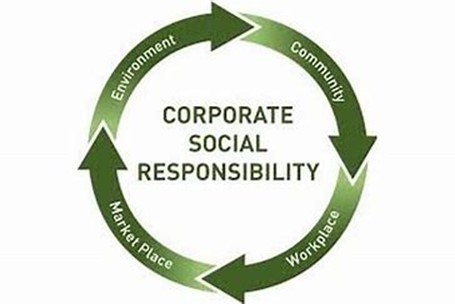
Corporate Ethical and Social Responsibility
is indispensable
Project Studies
How to develop your Organization’s Core Values
Developing an organization’s core value involves a thoughtful and inclusive process. Here are the best steps to guide you in developing your organization’s core values.
1. Assess the Current Culture.
Evaluate the existing culture and values within your organization. Identify the strengths and areas for improvement. Consider conducting surveys, interviews, or focus groups to gather insights from employees at all levels.
2. Involve Stakeholders.
Engage key stakeholders, including employees, leaders, customers, and partners in the process of developing core values. Seek their input and perspectives to ensure a diverse range of viewpoints. This creates a feeling of ownership and increases the probability of success substantially.
3. Define Your Purpose.
Clarify your organizations’ mission and purpose. Reflect on why your organization exists, what it aims to achieve, and the impact it wants to make. This will serve as a guiding force in shaping the core values.
4. Identify Desired Behaviors.
Determine the behaviors and attitudes that align with your organization’s mission and purpose. Identify the qualities and actions that contribute to a positive work culture, drive success, and differentiate your organization.
5. Collaborative Brainstorming.
Conduct collaborative brainstorming sessions or workshops with stakeholders (especially with your employees) to generate ideas for core values. Encourage open and honest discussions, allowing participants to share their perspectives on the values that resonate with them.
6. Prioritize and Refine.
Consolidate the generated ideas and prioritize them based on their relevance, alignment with the organization’s mission, and ability to guide behavior. Refine the list to a manageable number of core values that truly reflect your organization’s identity.
7. Clearly Define Each Core Value.
Develop concise and clear statements for each core value. Ensure they are actionable, meaningful, and easily understood by all stakeholders. Avoid generic or ambiguous language and make them specific to your organization’s context.
8. Test and Validate.
Share the proposed core values with a broader audience, such as employees, to gather feedback and ensure they resonate with the organization’s culture. Revise and refine as necessary based on the feedback received.
9. Communicate and Embed.
Once the core values are finalized, communicate them widely across the organization. Ensure that they are integrated into various aspects of the organization, such as performance evaluations, hiring processes, and internal communications, to embed them into the organizational culture.
10. Continual Evaluation.
Regularly assess and revisit the core values to ensure they remain relevant and aligned with the organization’s evolving needs and aspirations. Seek feedback from employees and stakeholders to gauge the effectiveness and impact of the core values.
11. Reflect on Your History.
Consider the values that have been important throughout your organization’s history. Reflect on the key principles and beliefs that have shaped its culture and success.
12. Conduct External Research.
Look into industry best practices, research successful organizations with strong values, and examine societal trends to gain inspiration and insights for developing your own core values.
13. Engage in Cross-Functional Collaboration.
Encourage collaboration across different departments and teams to ensure a diverse range of perspectives are considered. This helps to create core values that reflect the collective aspirations and needs of the entire organization.
14. Seek input from Customers and Partners.
Engage with customers, clients, and business partners to understand their expectations and values. Incorporating their perspectives can help create values that align with their needs and build stronger relationships.
15. Embrace Diversity and Inclusion.
Emphasize the importance of diversity and inclusion in the development of your core values. Ensure that values reflect a commitment to creating an inclusive and equitable work environment that values and respects all individuals.
16. Assess Competitor Values.
Research the core values of your competitors to identify potential areas of differentiation and unique values that set your organization apart.
17. Conduct Values Workshops.
Facilitate workshops or group sessions to allow your employees to express their thoughts and ideas on your core values. Encourage open dialogue, active listening, and collaboration to ensure a collective understanding and ownership of the values.
18. Test for Alignment.
Evaluate the potential core values against your organization’s mission, vision, and strategic objectives. Ensure that they align and support the overall direction and goals of your organization.
19. Review and Finalize.
Review the proposed core values, refining and fine-tuning them as needed. Ensure that they are concise, memorable, and actionable, capturing the essence of what your organization stands for.
20. Communicate and Reinforce.
Communicate the finalized core values widely across the organization through various channels, such as internal communications, training sessions, and visual displays. Regularly reinforce the values through recognition programs, performance evaluation, and ongoing conversations to embed them into the organizational culture.
Remember, the development of core values is an ongoing process. It requires commitment, active participation, and reinforcement from leadership to establish a strong and enduring set of values that guide the organization’s actions, decisions, and behaviors. Continually evaluate and refine your values to ensure they remain relevant, meaningful, and aligned with your organization’s evolving needs and aspirations.
Project Study (Part 1) – Customer Service
The Head of this Department is to provide a detailed report relating to the Culture Success process that has been implemented within their department, together with all key stakeholders, as a result of conducting this workshop, incorporating process: planning; development; implementation; management; and review. Your process should feature the following 12 parts:
01. Mission Statement
02. Vision Statement
03. Strong Leadership
04. Employee Empowerment
05. Open Communication
06. Trust And Respect
07. Continuous Learning And Development
08. Work-Life Balance
09. Diversity And Inclusion
10. Recognition And Rewards
11. Collaboration And Teamwork
12. Ethical And Social Responsibility
Please include the results of the initial evaluation and assessment.
Project Study (Part 2) – E-Business
The Head of this Department is to provide a detailed report relating to the Culture Success process that has been implemented within their department, together with all key stakeholders, as a result of conducting this workshop, incorporating process: planning; development; implementation; management; and review. Your process should feature the following 12 parts:
01. Mission Statement
02. Vision Statement
03. Strong Leadership
04. Employee Empowerment
05. Open Communication
06. Trust And Respect
07. Continuous Learning And Development
08. Work-Life Balance
09. Diversity And Inclusion
10. Recognition And Rewards
11. Collaboration And Teamwork
12. Ethical And Social Responsibility
Please include the results of the initial evaluation and assessment.
Project Study (Part 3) – Finance
The Head of this Department is to provide a detailed report relating to the Culture Success process that has been implemented within their department, together with all key stakeholders, as a result of conducting this workshop, incorporating process: planning; development; implementation; management; and review. Your process should feature the following 12 parts:
01. Mission Statement
02. Vision Statement
03. Strong Leadership
04. Employee Empowerment
05. Open Communication
06. Trust And Respect
07. Continuous Learning And Development
08. Work-Life Balance
09. Diversity And Inclusion
10. Recognition And Rewards
11. Collaboration And Teamwork
12. Ethical And Social Responsibility
Please include the results of the initial evaluation and assessment.
Project Study (Part 4) – Globalization
The Head of this Department is to provide a detailed report relating to the Culture Success process that has been implemented within their department, together with all key stakeholders, as a result of conducting this workshop, incorporating process: planning; development; implementation; management; and review. Your process should feature the following 12 parts:
01. Mission Statement
02. Vision Statement
03. Strong Leadership
04. Employee Empowerment
05. Open Communication
06. Trust And Respect
07. Continuous Learning And Development
08. Work-Life Balance
09. Diversity And Inclusion
10. Recognition And Rewards
11. Collaboration And Teamwork
12. Ethical And Social Responsibility
Please include the results of the initial evaluation and assessment.
Project Study (Part 5) – Human Resources
The Head of this Department is to provide a detailed report relating to the Culture Success process that has been implemented within their department, together with all key stakeholders, as a result of conducting this workshop, incorporating process: planning; development; implementation; management; and review. Your process should feature the following 12 parts:
01. Mission Statement
02. Vision Statement
03. Strong Leadership
04. Employee Empowerment
05. Open Communication
06. Trust And Respect
07. Continuous Learning And Development
08. Work-Life Balance
09. Diversity And Inclusion
10. Recognition And Rewards
11. Collaboration And Teamwork
12. Ethical And Social Responsibility
Please include the results of the initial evaluation and assessment.
Project Study (Part 6) – Information Technology
The Head of this Department is to provide a detailed report relating to the Culture Success process that has been implemented within their department, together with all key stakeholders, as a result of conducting this workshop, incorporating process: planning; development; implementation; management; and review. Your process should feature the following 12 parts:
01. Mission Statement
02. Vision Statement
03. Strong Leadership
04. Employee Empowerment
05. Open Communication
06. Trust And Respect
07. Continuous Learning And Development
08. Work-Life Balance
09. Diversity And Inclusion
10. Recognition And Rewards
11. Collaboration And Teamwork
12. Ethical And Social Responsibility
Please include the results of the initial evaluation and assessment.
Project Study (Part 7) – Legal
The Head of this Department is to provide a detailed report relating to the Culture Success process that has been implemented within their department, together with all key stakeholders, as a result of conducting this workshop, incorporating process: planning; development; implementation; management; and review. Your process should feature the following 12 parts:
01. Mission Statement
02. Vision Statement
03. Strong Leadership
04. Employee Empowerment
05. Open Communication
06. Trust And Respect
07. Continuous Learning And Development
08. Work-Life Balance
09. Diversity And Inclusion
10. Recognition And Rewards
11. Collaboration And Teamwork
12. Ethical And Social Responsibility
Please include the results of the initial evaluation and assessment.
Project Study (Part 8) – Management
The Head of this Department is to provide a detailed report relating to the Culture Success process that has been implemented within their department, together with all key stakeholders, as a result of conducting this workshop, incorporating process: planning; development; implementation; management; and review. Your process should feature the following 12 parts:
01. Mission Statement
02. Vision Statement
03. Strong Leadership
04. Employee Empowerment
05. Open Communication
06. Trust And Respect
07. Continuous Learning And Development
08. Work-Life Balance
09. Diversity And Inclusion
10. Recognition And Rewards
11. Collaboration And Teamwork
12. Ethical And Social Responsibility
Please include the results of the initial evaluation and assessment.

Project Study (Part 9) – Marketing
The Head of this Department is to provide a detailed report relating to the Culture Success process that has been implemented within their department, together with all key stakeholders, as a result of conducting this workshop, incorporating process: planning; development; implementation; management; and review. Your process should feature the following 12 parts:
01. Mission Statement
02. Vision Statement
03. Strong Leadership
04. Employee Empowerment
05. Open Communication
06. Trust And Respect
07. Continuous Learning And Development
08. Work-Life Balance
09. Diversity And Inclusion
10. Recognition And Rewards
11. Collaboration And Teamwork
12. Ethical And Social Responsibility
Please include the results of the initial evaluation and assessment.

Project Study (Part 10) – Production
The Head of this Department is to provide a detailed report relating to the Culture Success process that has been implemented within their department, together with all key stakeholders, as a result of conducting this workshop, incorporating process: planning; development; implementation; management; and review. Your process should feature the following 12 parts:
01. Mission Statement
02. Vision Statement
03. Strong Leadership
04. Employee Empowerment
05. Open Communication
06. Trust And Respect
07. Continuous Learning And Development
08. Work-Life Balance
09. Diversity And Inclusion
10. Recognition And Rewards
11. Collaboration And Teamwork
12. Ethical And Social Responsibility
Please include the results of the initial evaluation and assessment.

Project Study (Part 11) – Logistics
The Head of this Department is to provide a detailed report relating to the Culture Success process that has been implemented within their department, together with all key stakeholders, as a result of conducting this workshop, incorporating process: planning; development; implementation; management; and review. Your process should feature the following 12 parts:
01. Mission Statement
02. Vision Statement
03. Strong Leadership
04. Employee Empowerment
05. Open Communication
06. Trust And Respect
07. Continuous Learning And Development
08. Work-Life Balance
09. Diversity And Inclusion
10. Recognition And Rewards
11. Collaboration And Teamwork
12. Ethical And Social Responsibility
Please include the results of the initial evaluation and assessment.

Project Study (Part 12) – Education
The Head of this Department is to provide a detailed report relating to the Culture Success process that has been implemented within their department, together with all key stakeholders, as a result of conducting this workshop, incorporating process: planning; development; implementation; management; and review. Your process should feature the following 12 parts:
01. Mission Statement
02. Vision Statement
03. Strong Leadership
04. Employee Empowerment
05. Open Communication
06. Trust And Respect
07. Continuous Learning And Development
08. Work-Life Balance
09. Diversity And Inclusion
10. Recognition And Rewards
11. Collaboration And Teamwork
12. Ethical And Social Responsibility
Please include the results of the initial evaluation and assessment.
Program Benefits
Operations
- Customer focus
- Enriched creativity
- Increased productivity
- Organizational alignment
- Improved teamwork
- Performance excellence
- Competitive advantage
- Resource optimization
- Employee engagement
- Greater accountability
Human Resources
- Attracting talents
- Leadership development
- Positive culture
- Reduced turnover
- Goals clarity
- Effective communication
- Relationship building
- Conflict resolution
- Leadership effectiveness
- Satisfied employees
Finance
- Reliable information
- Improved liquidity
- Financial stability
- Enhanced profitability
- Stress reduction
- Smarter decisions
- Stronger support
- Greater collaboration
- Achieving goals
- Stakeholder confidence
Client Telephone Conference (CTC)
If you have any questions or if you would like to arrange a Client Telephone Conference (CTC) to discuss this particular Unique Consulting Service Proposition (UCSP) in more detail, please CLICK HERE.




























